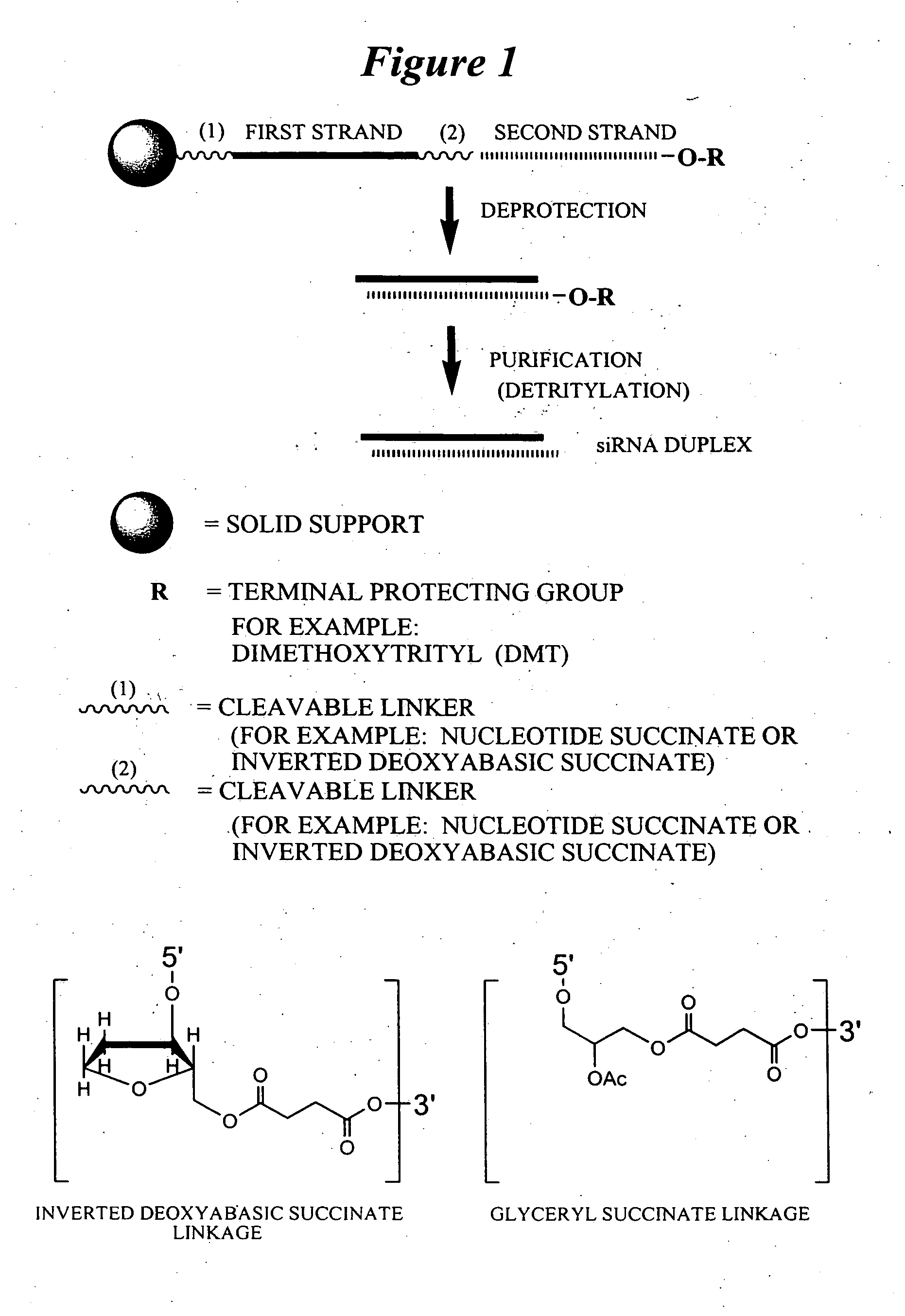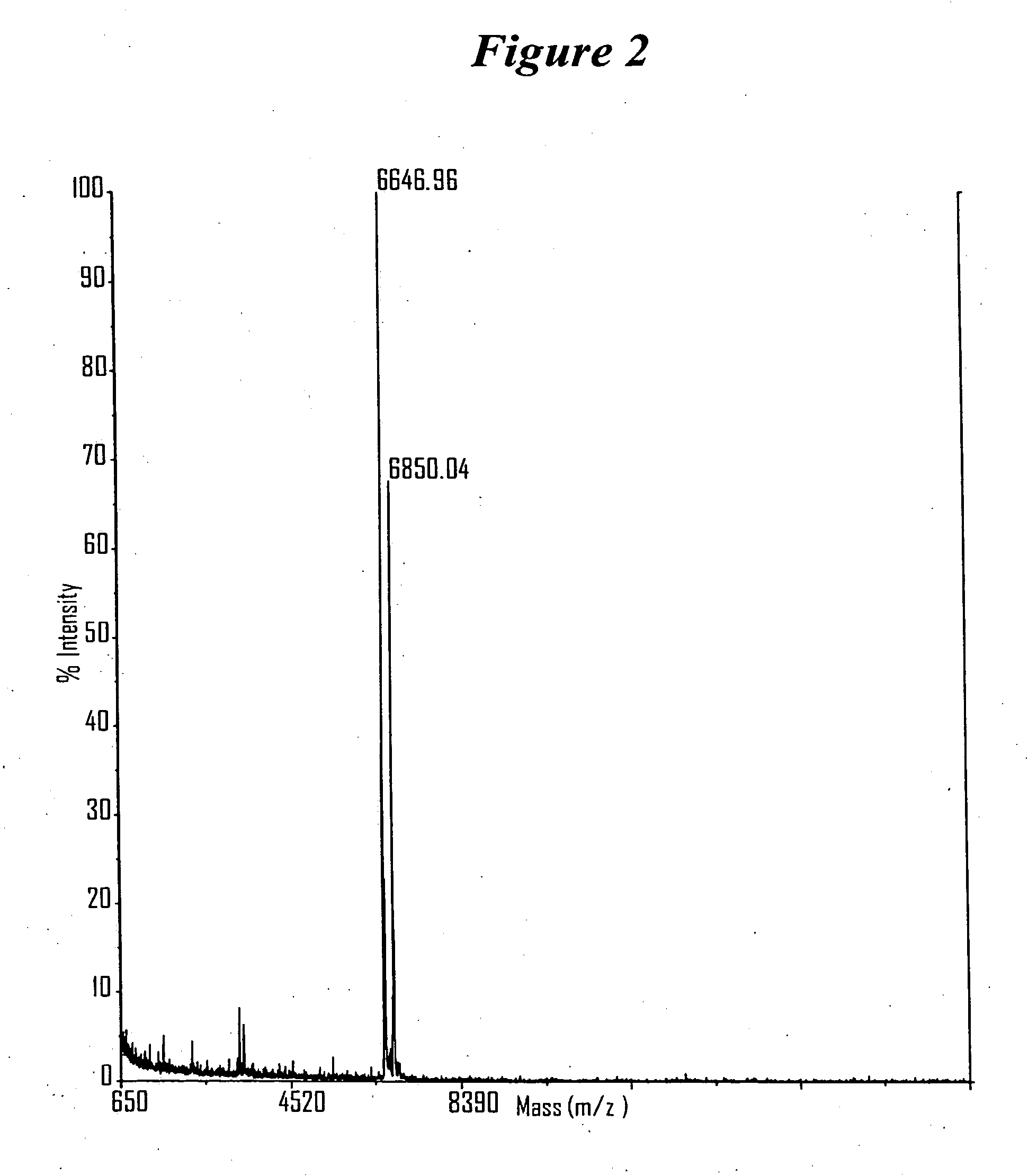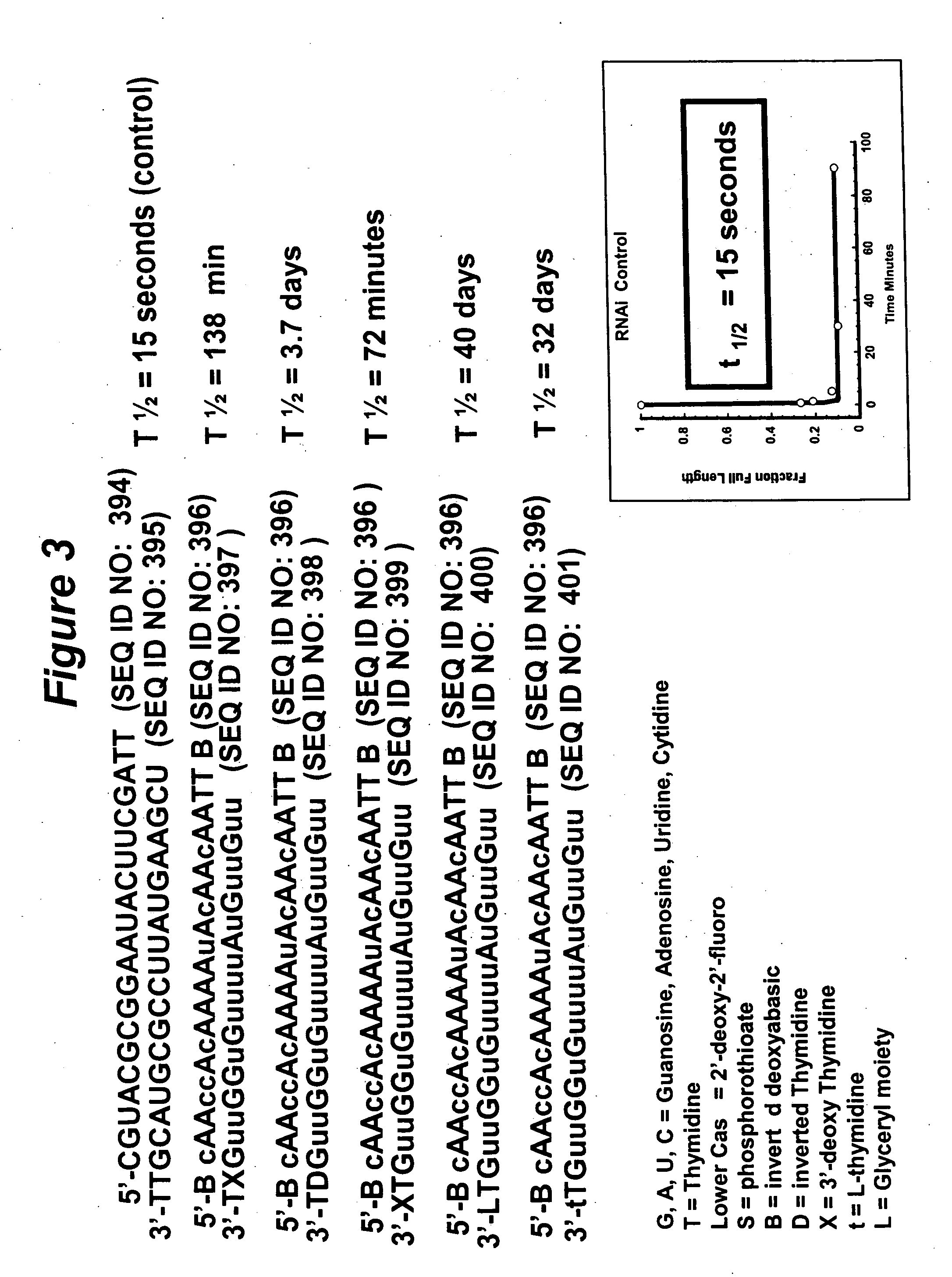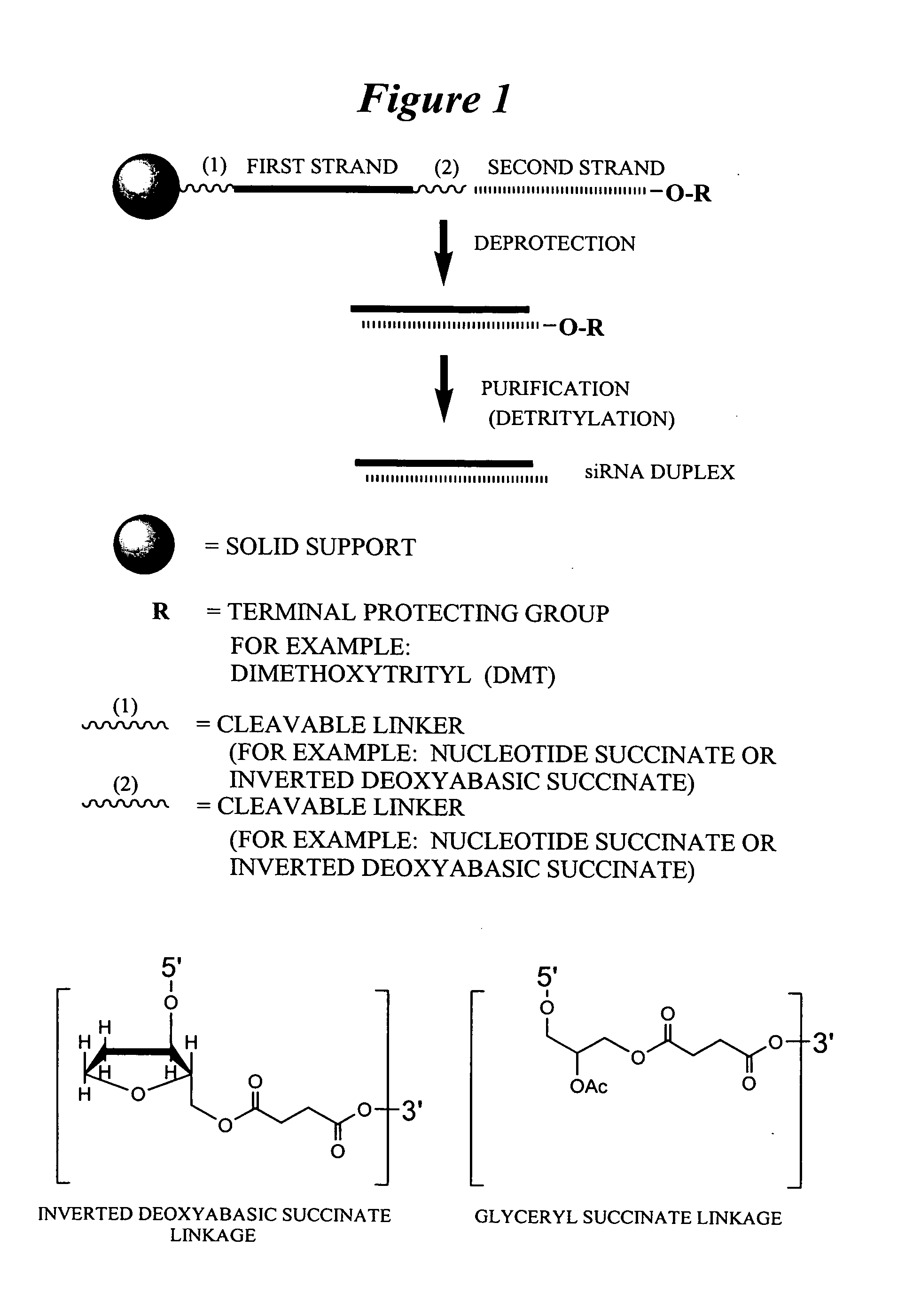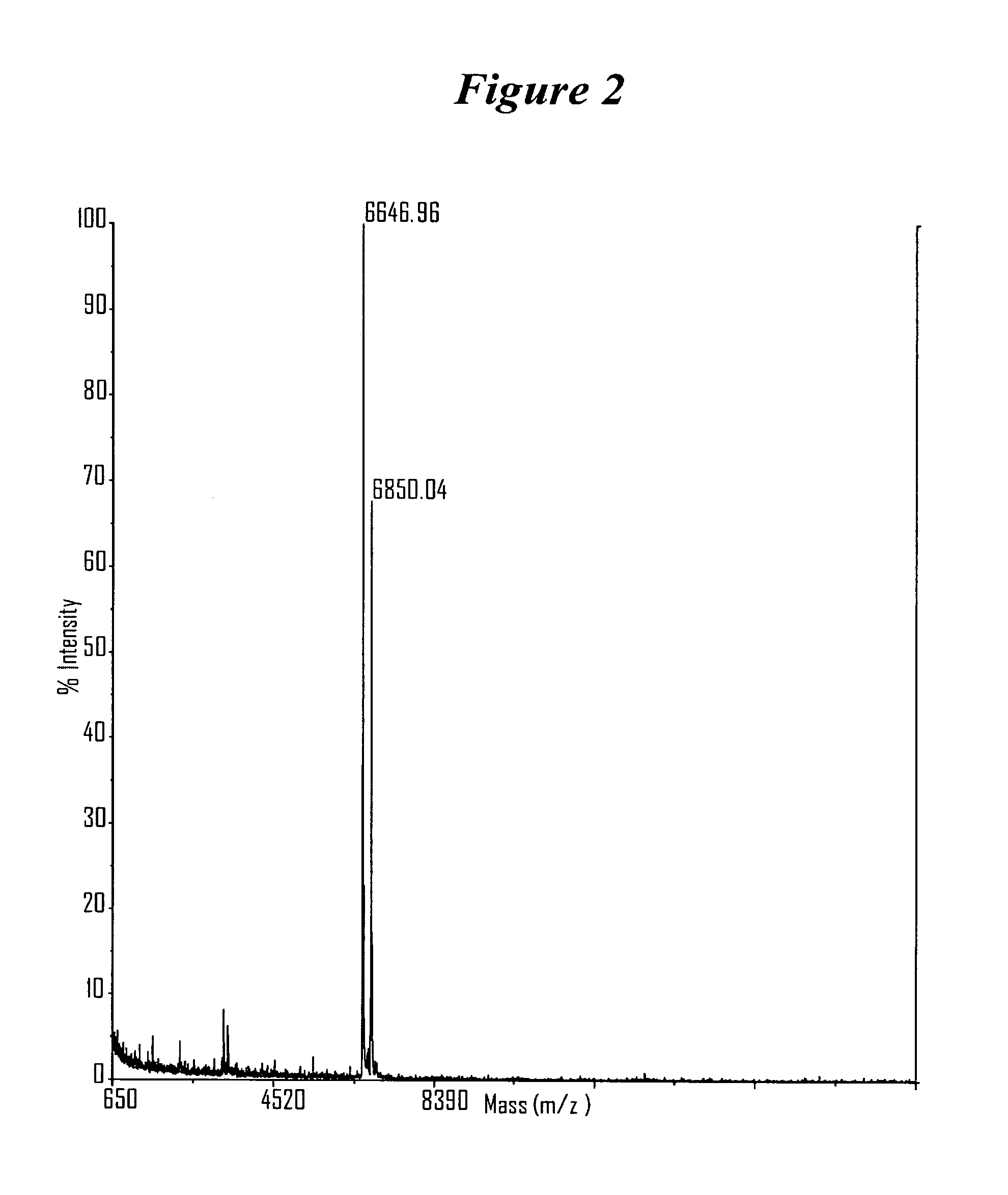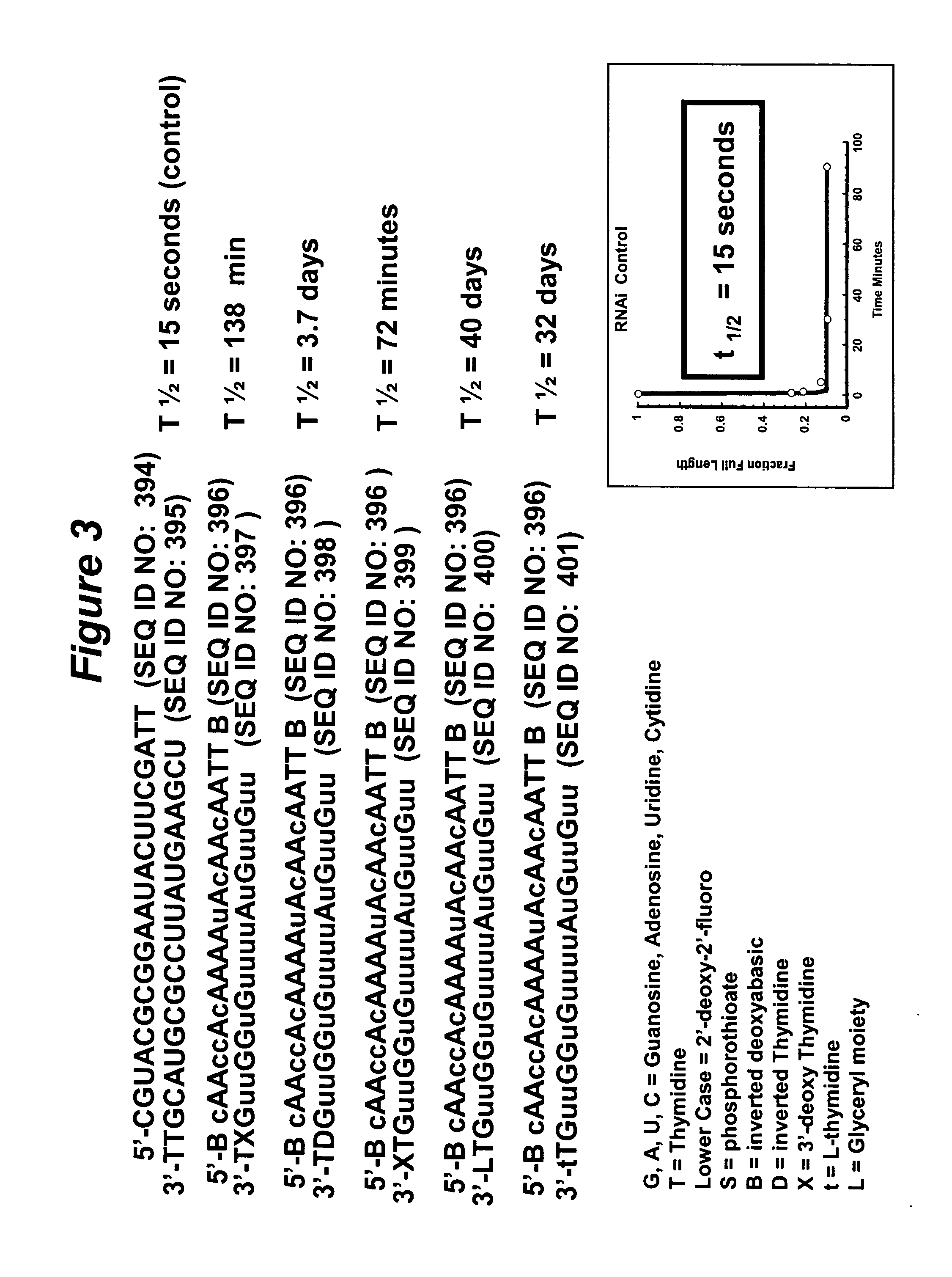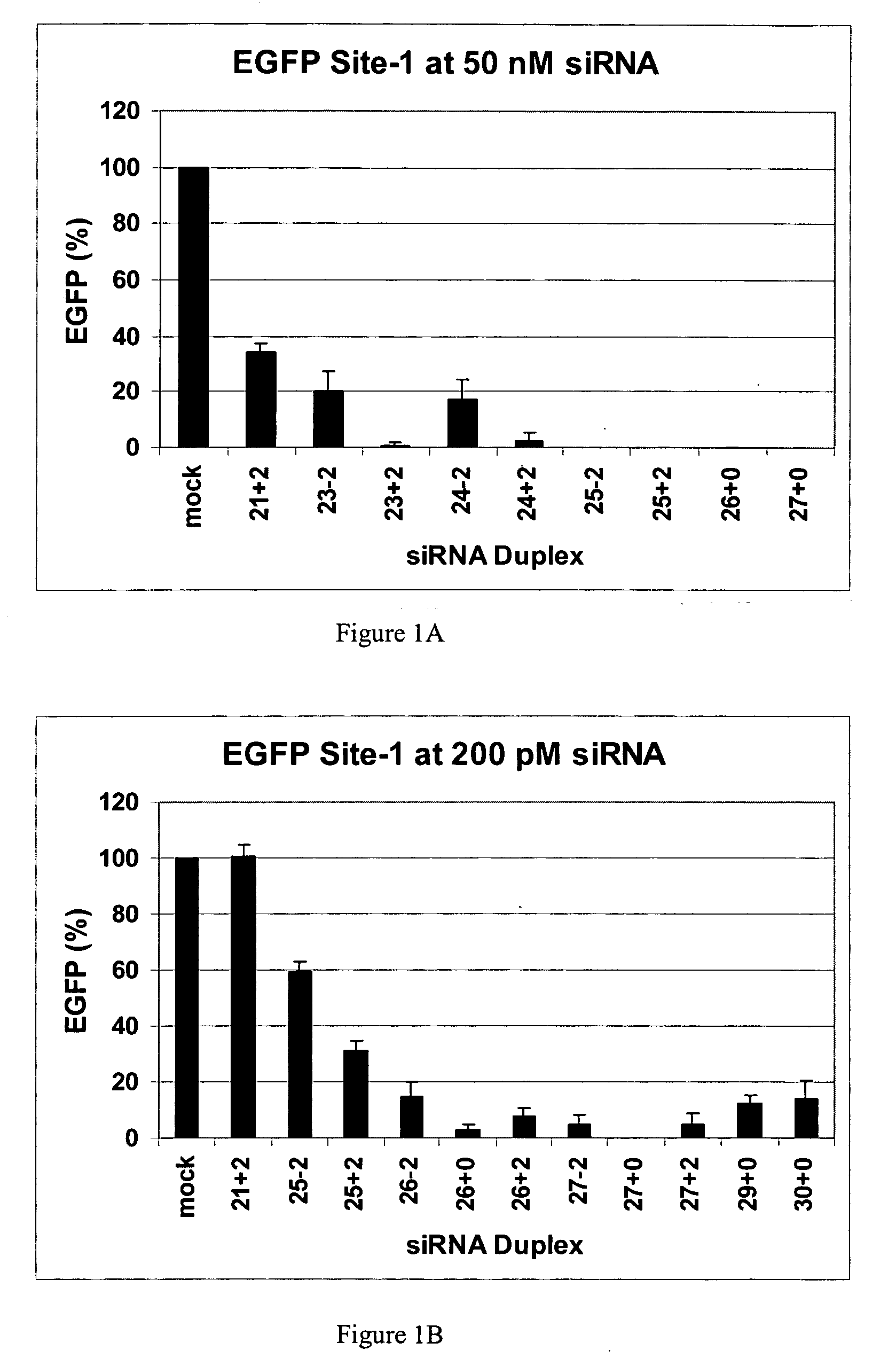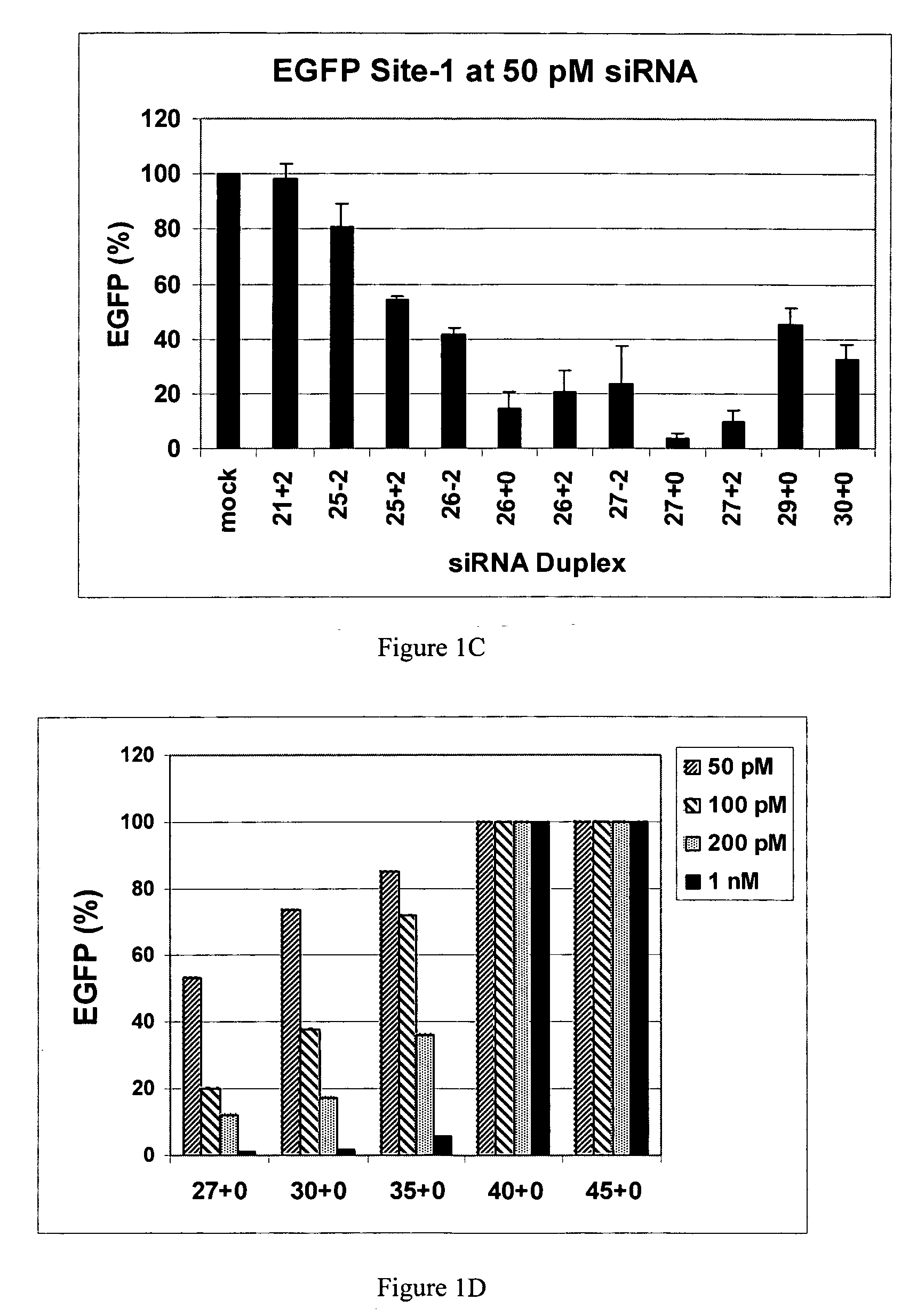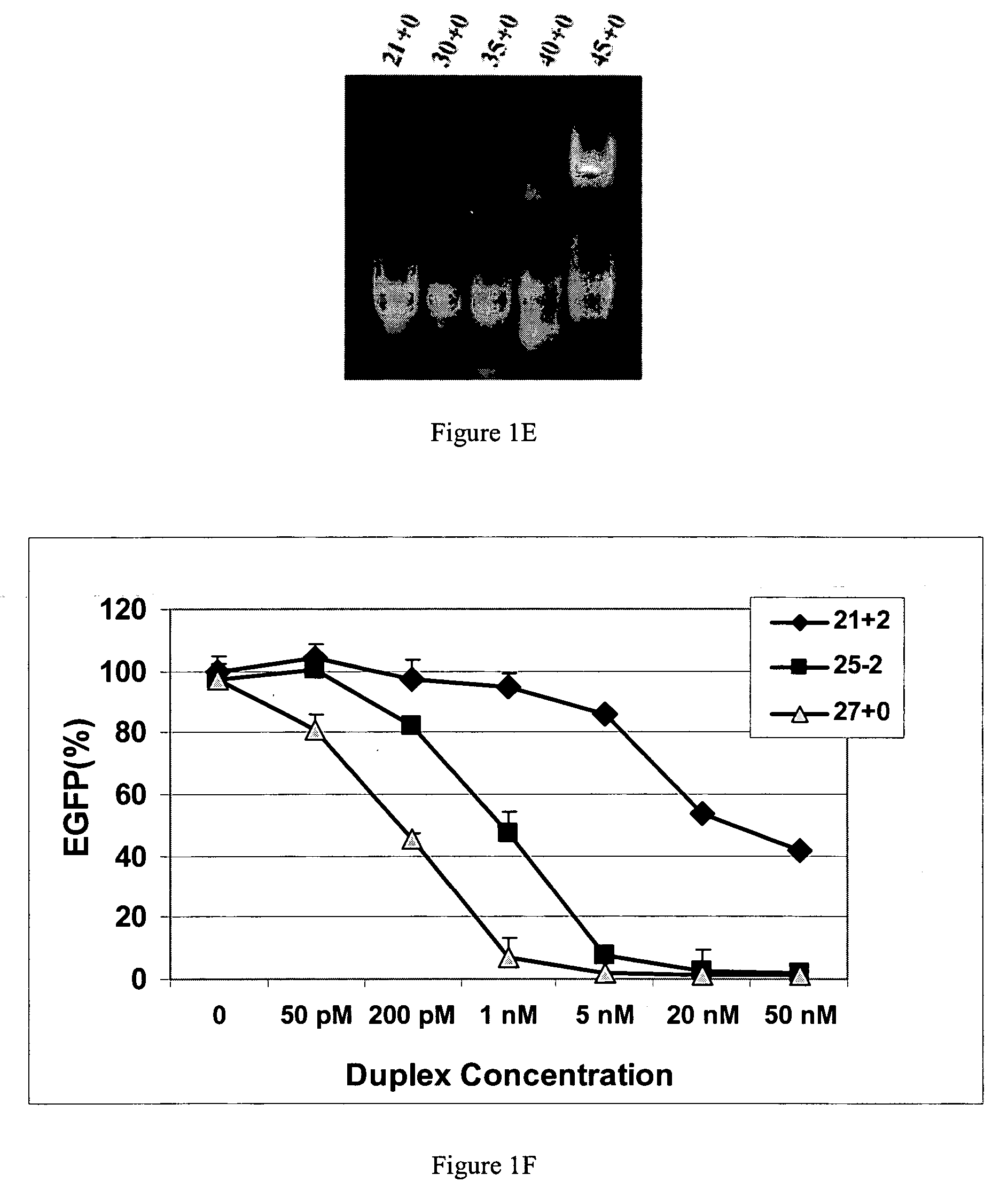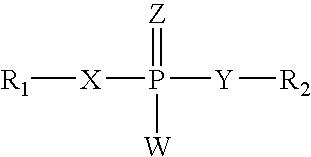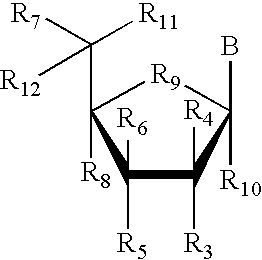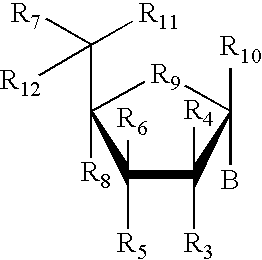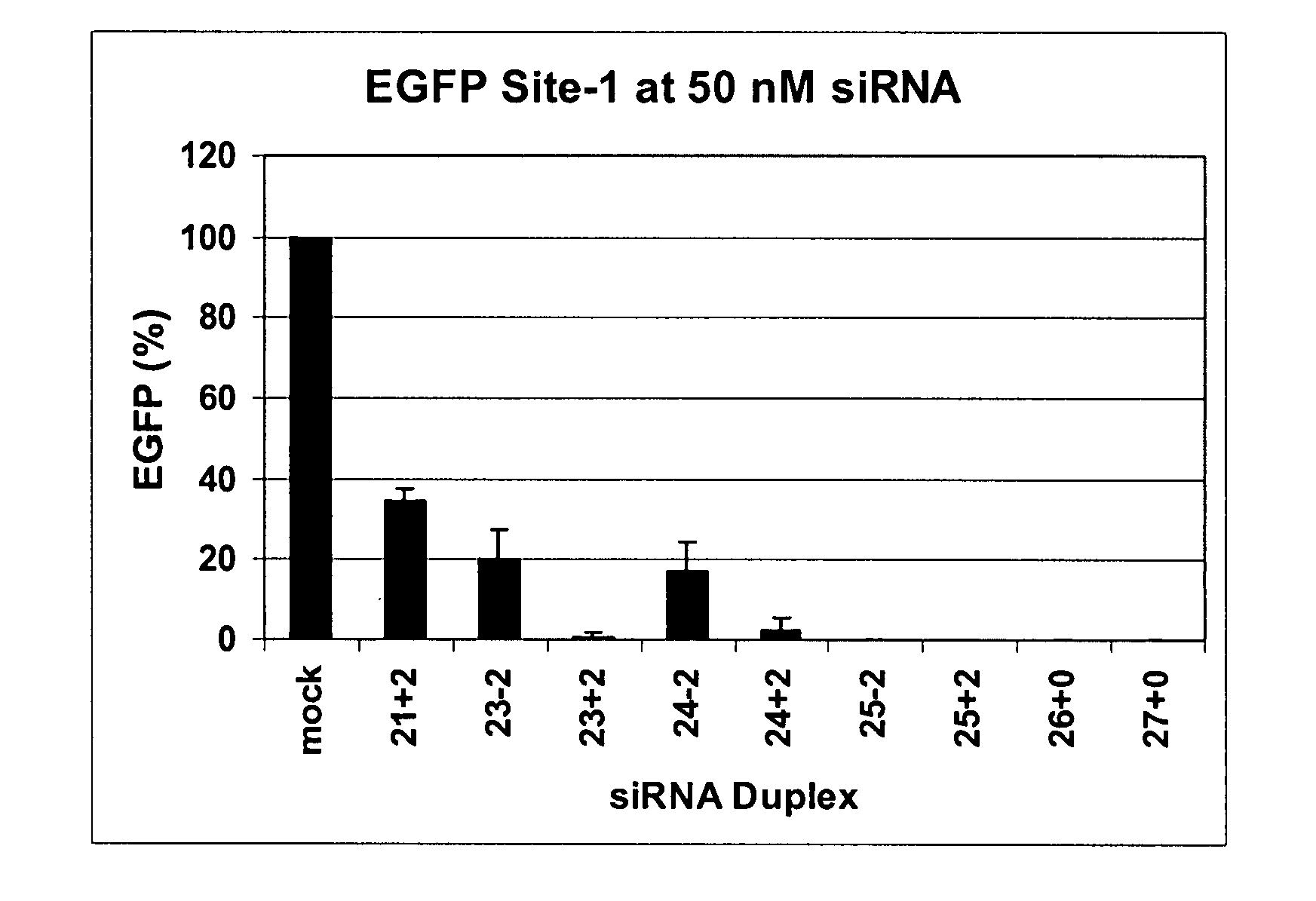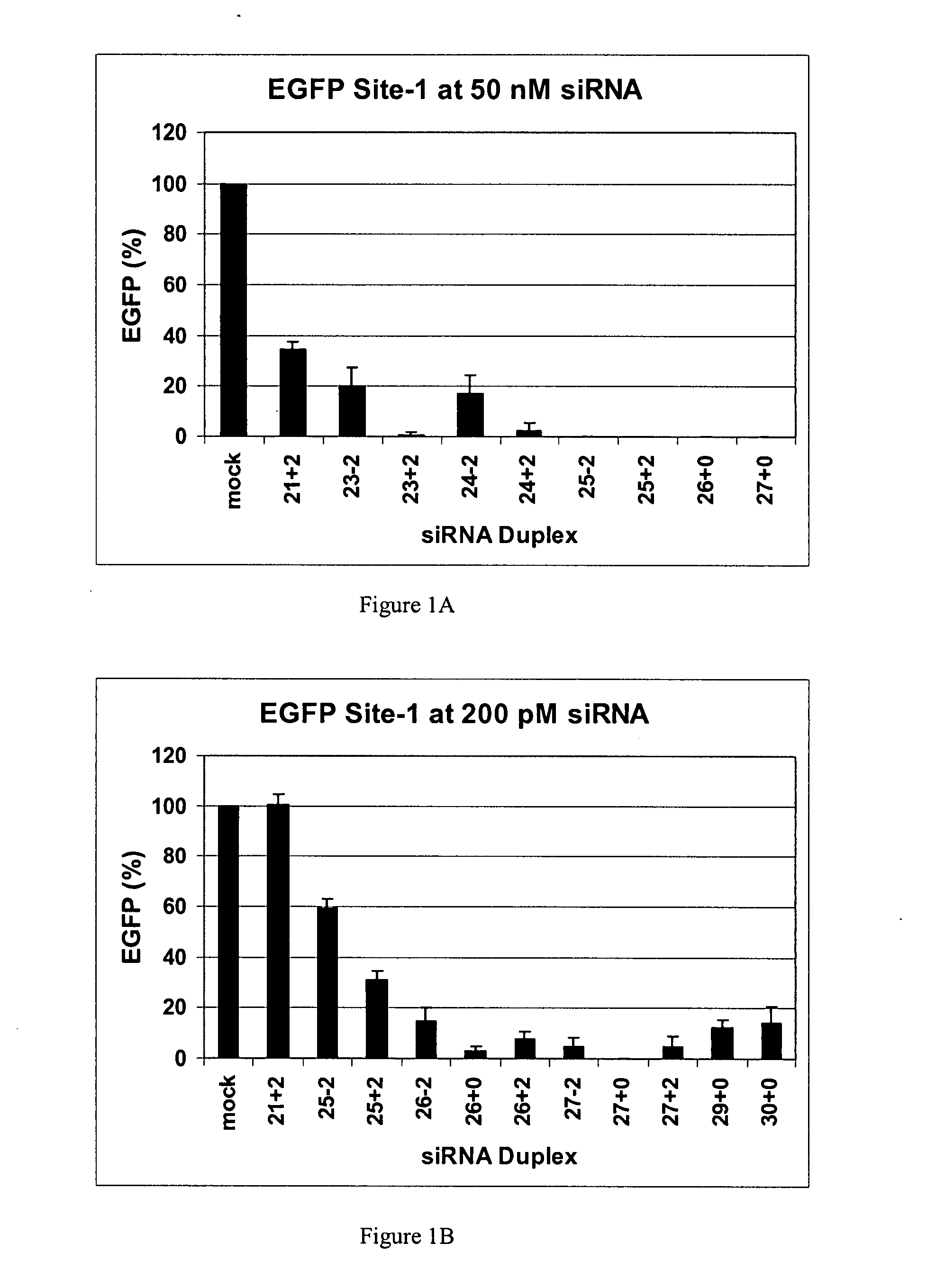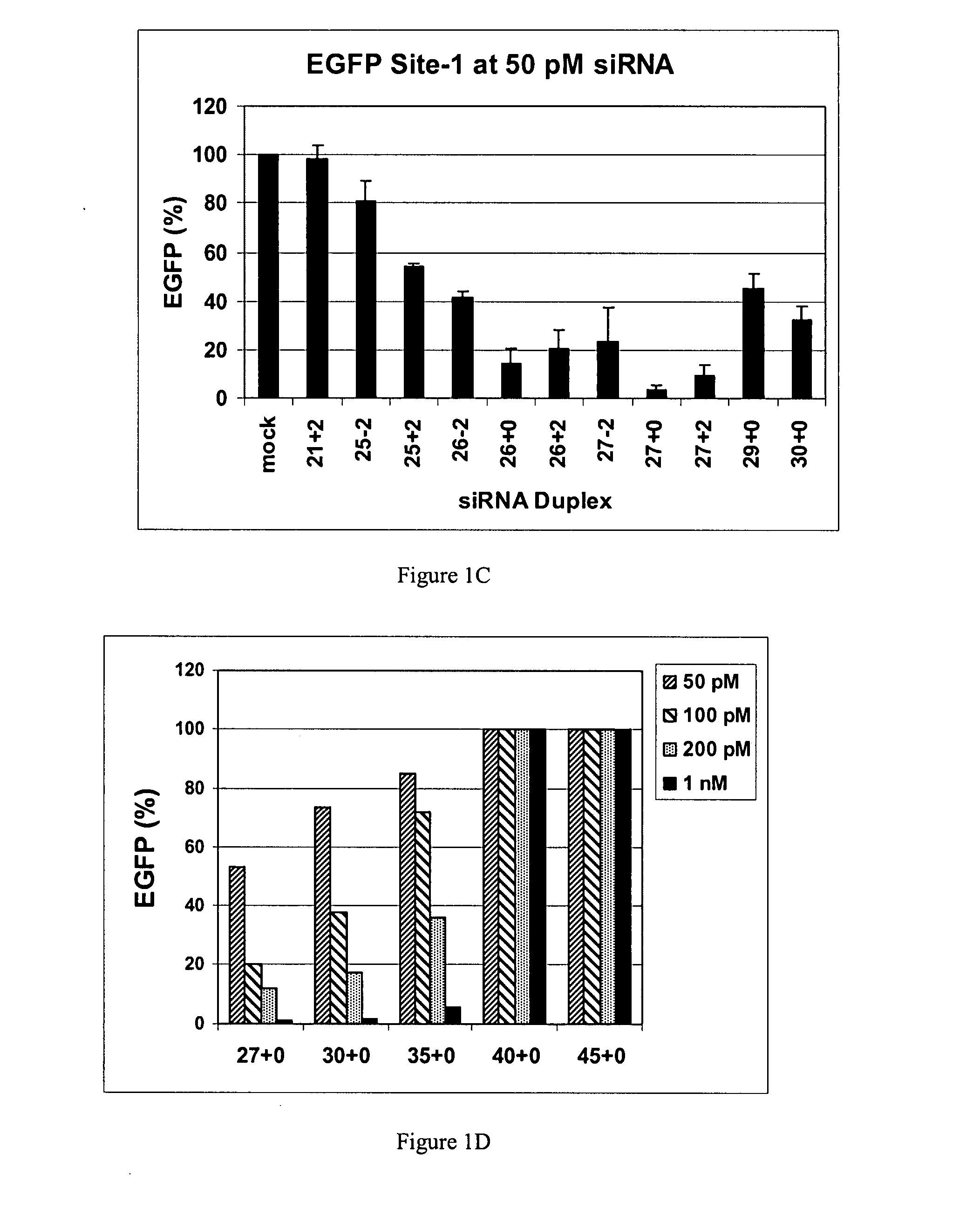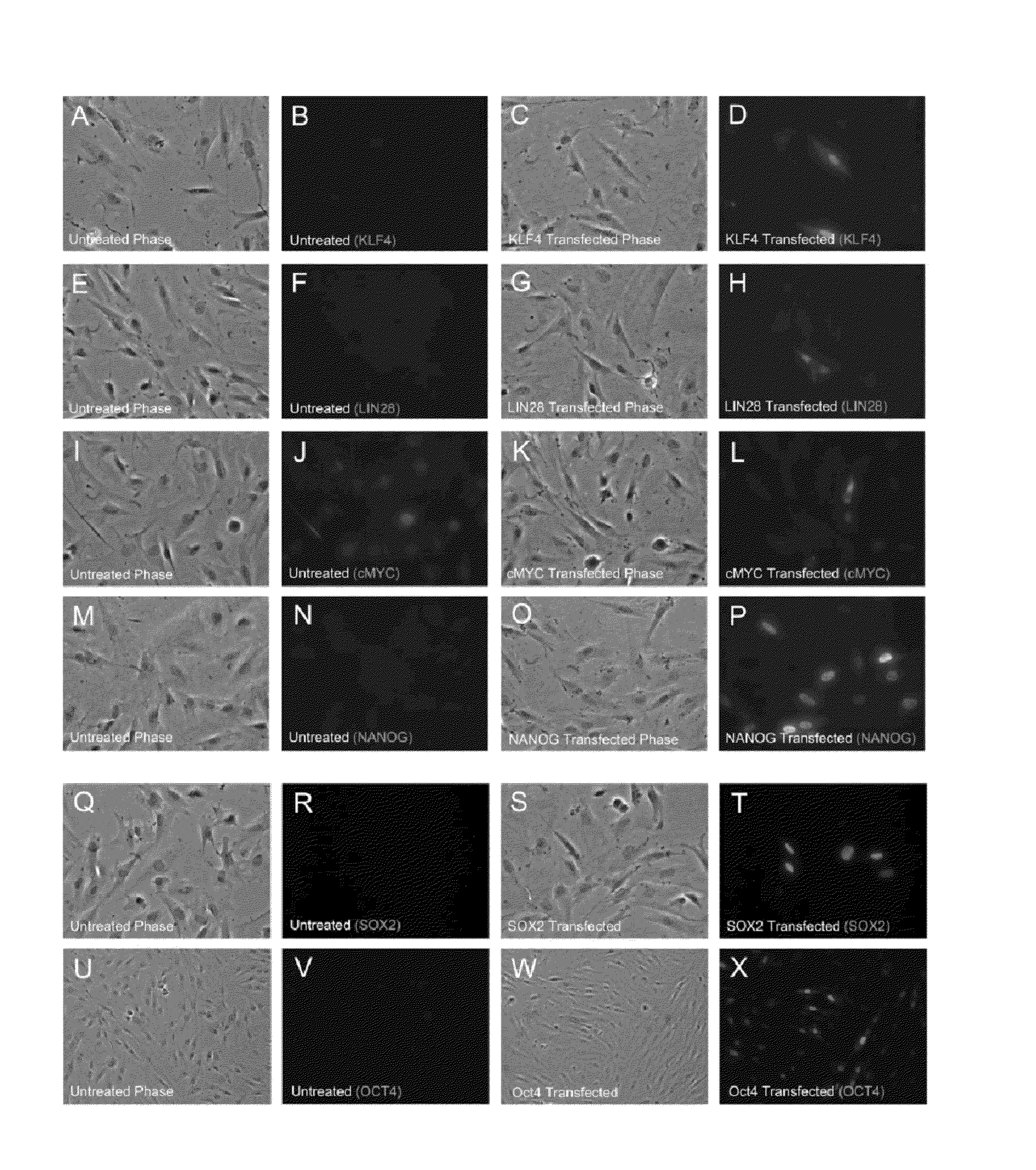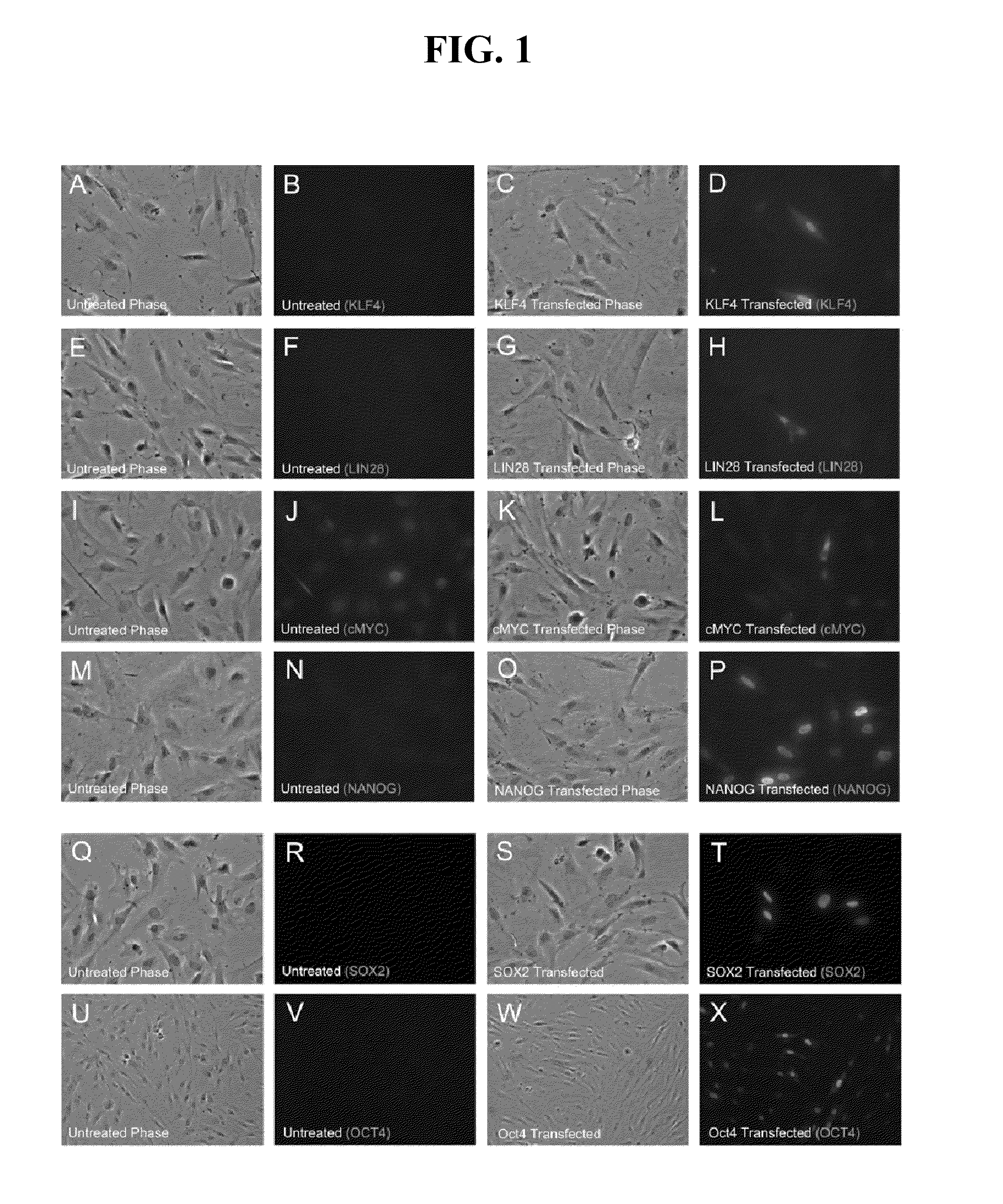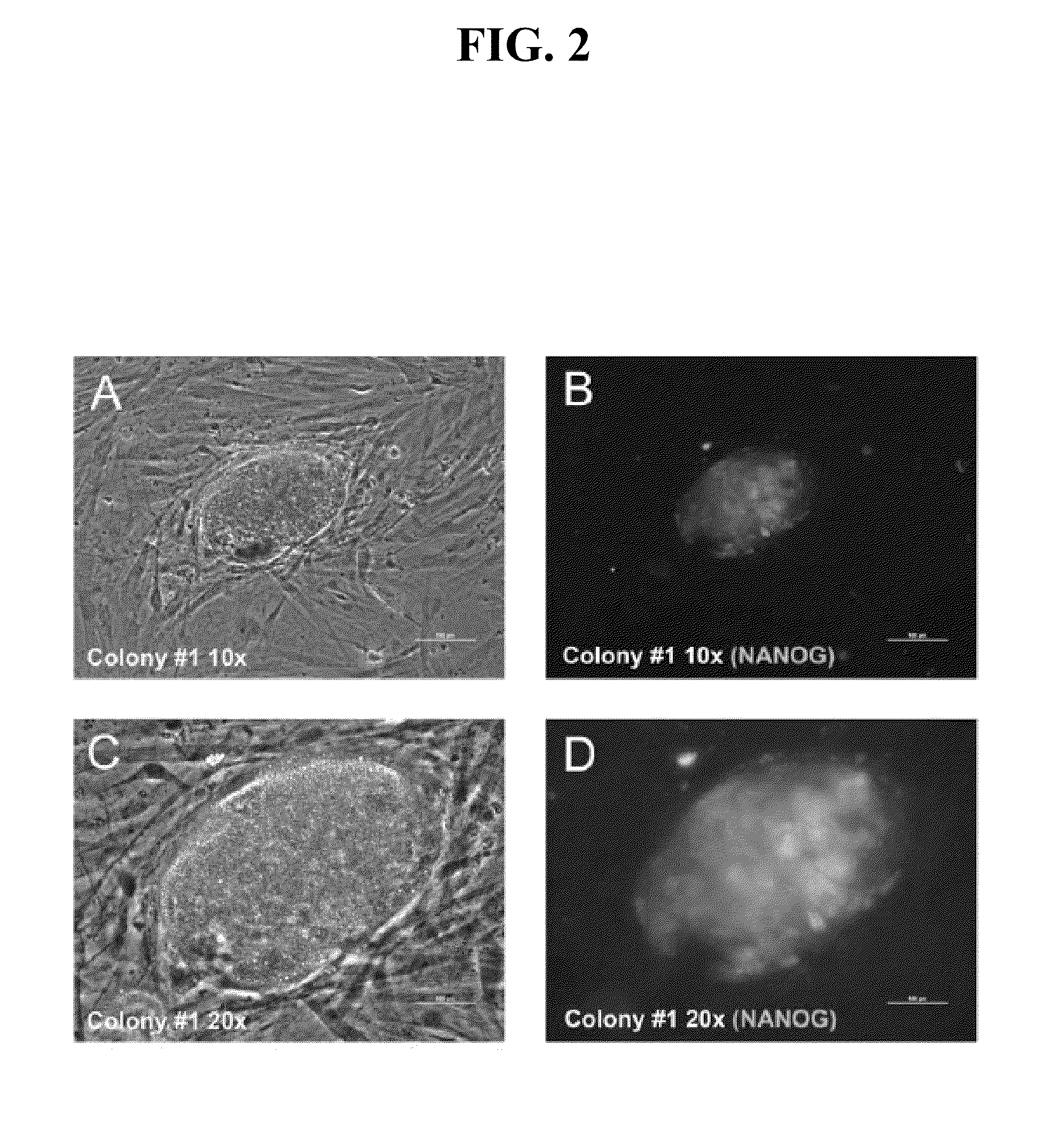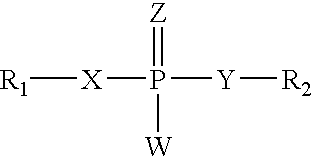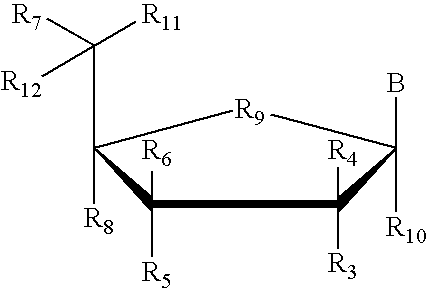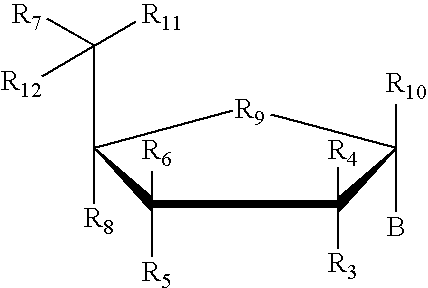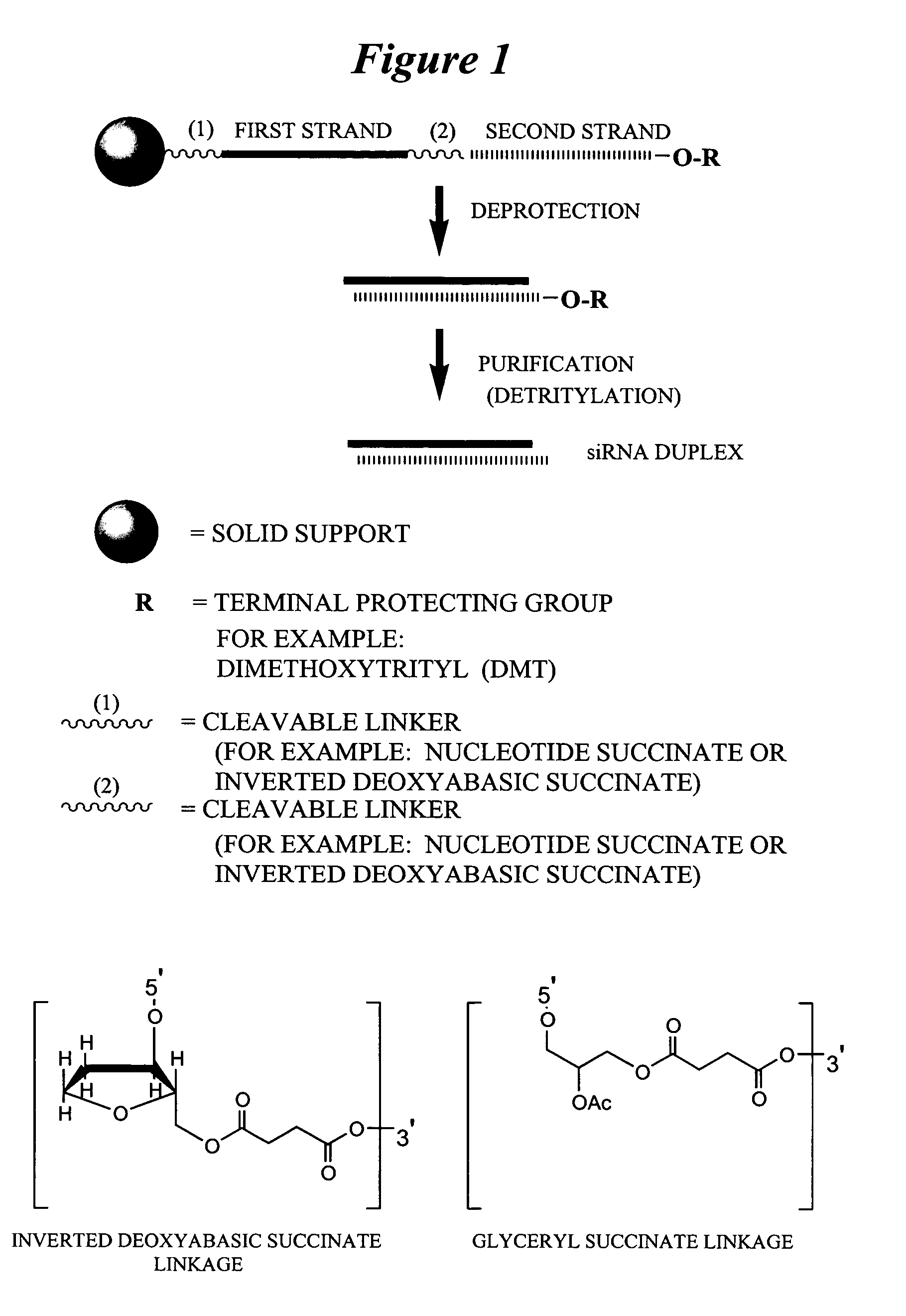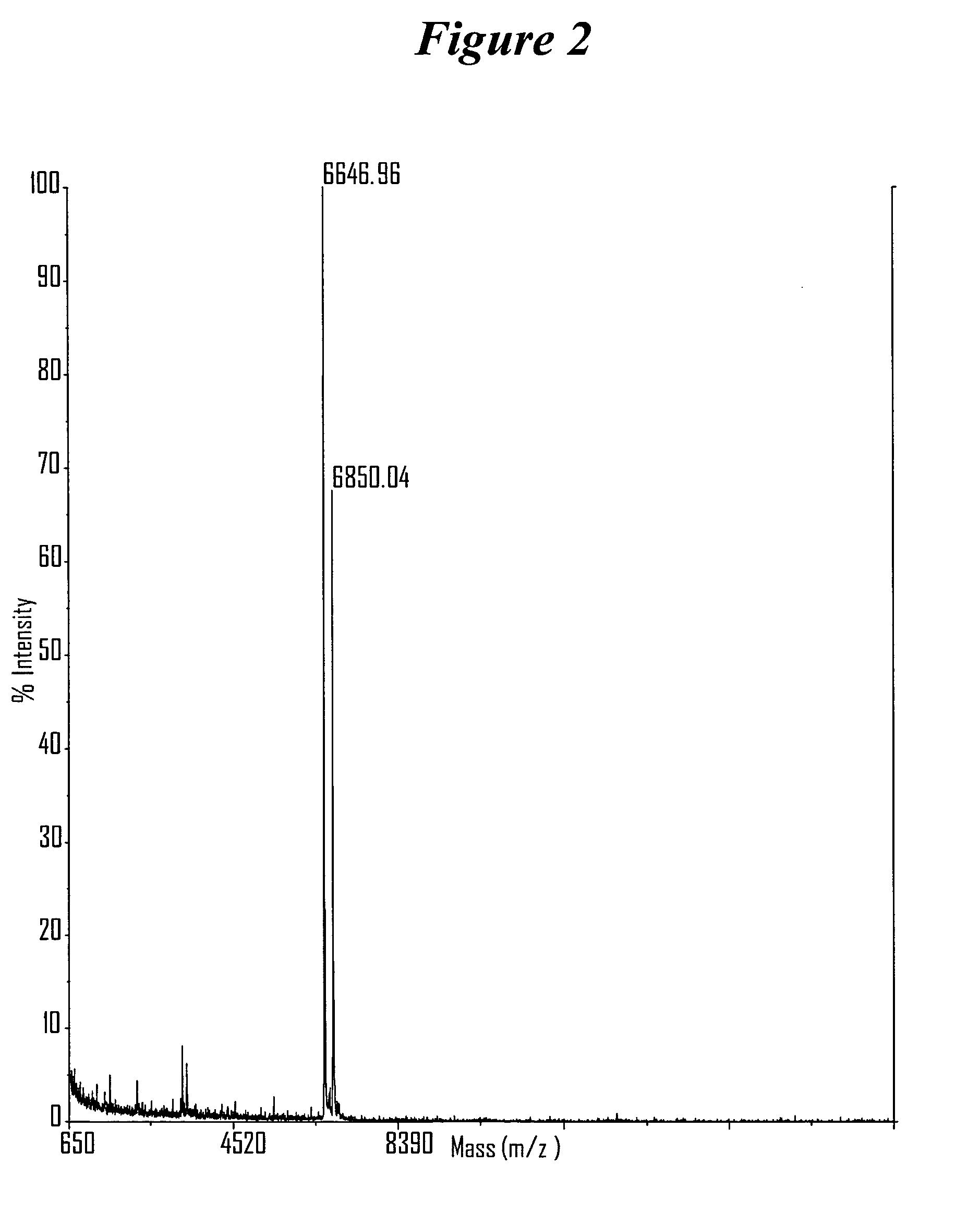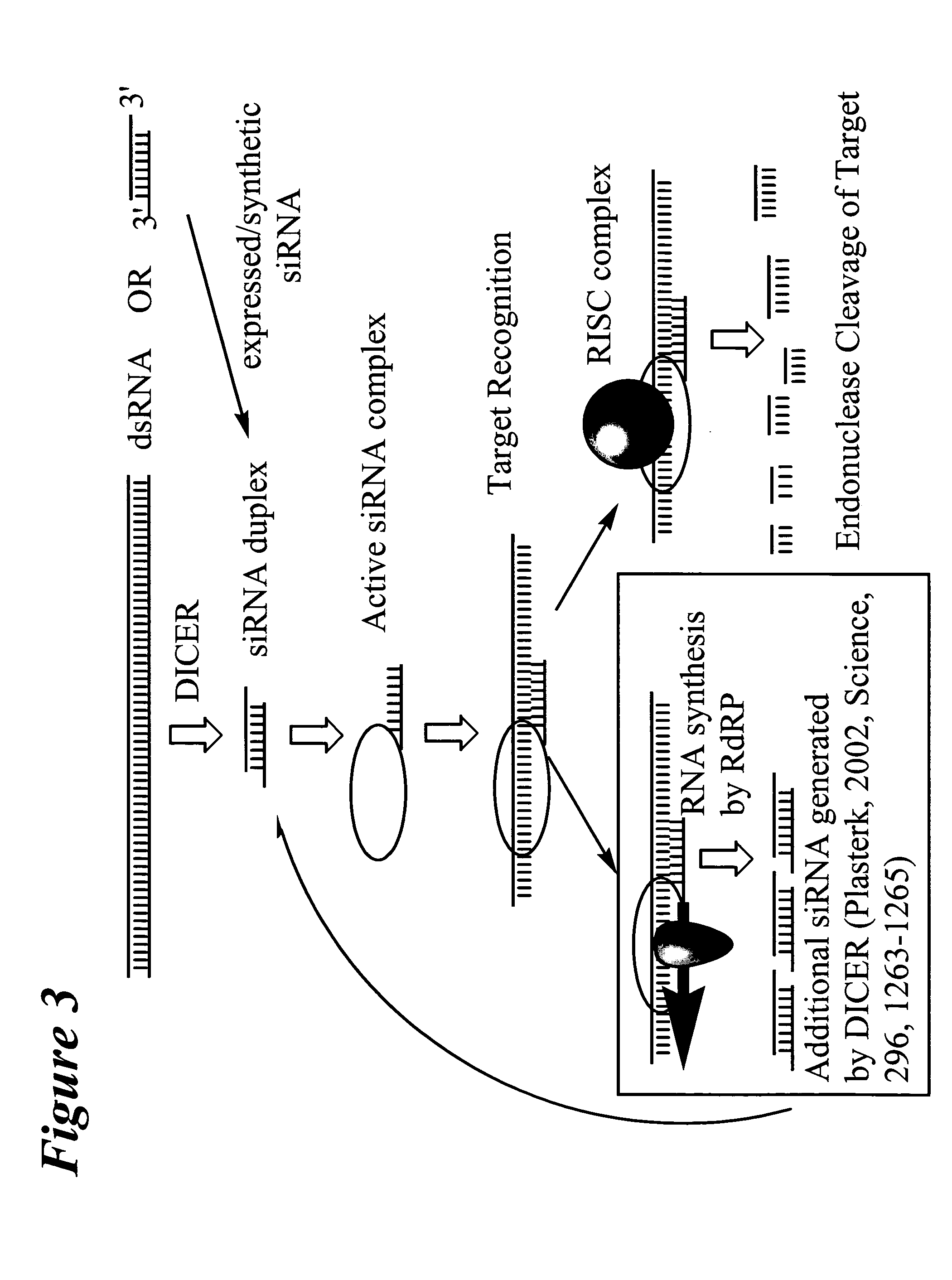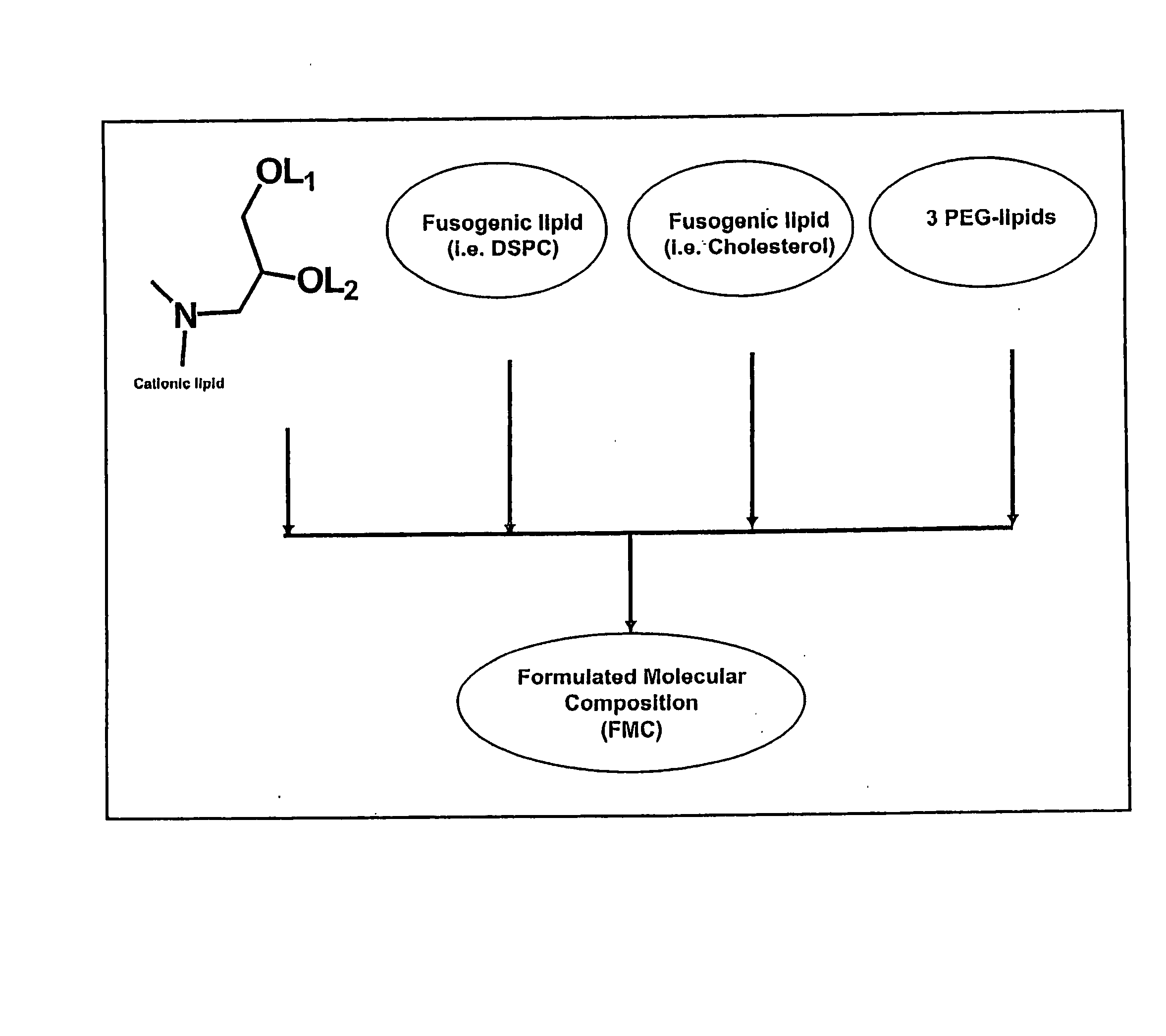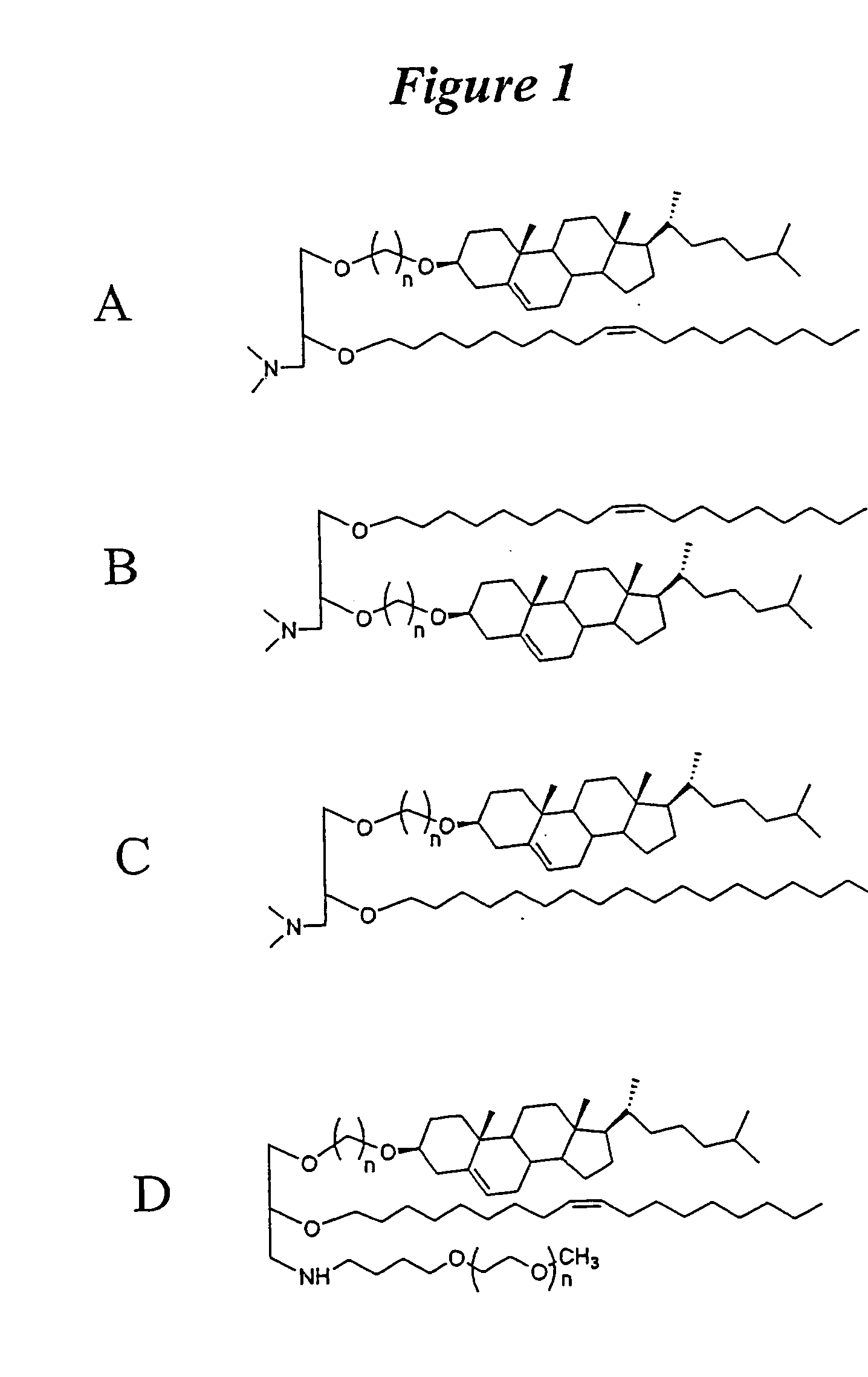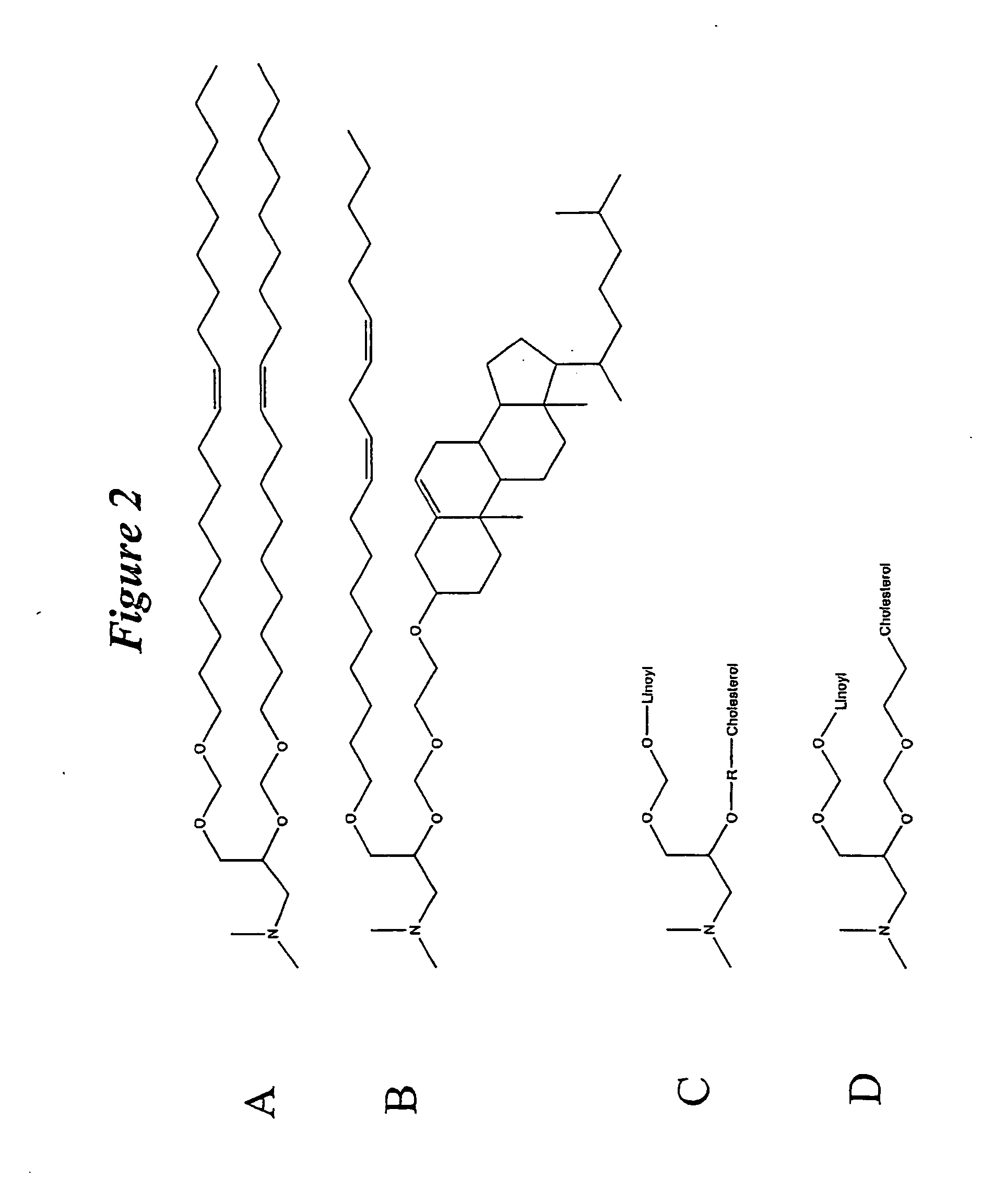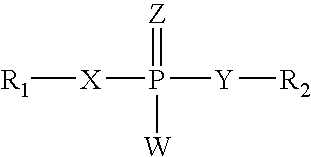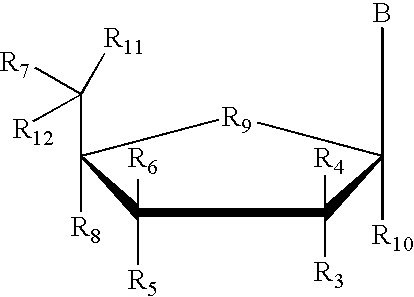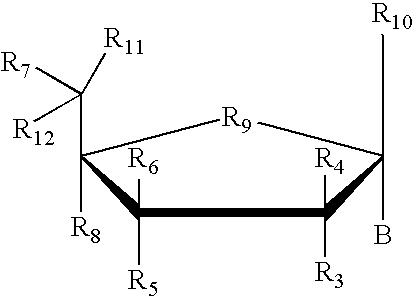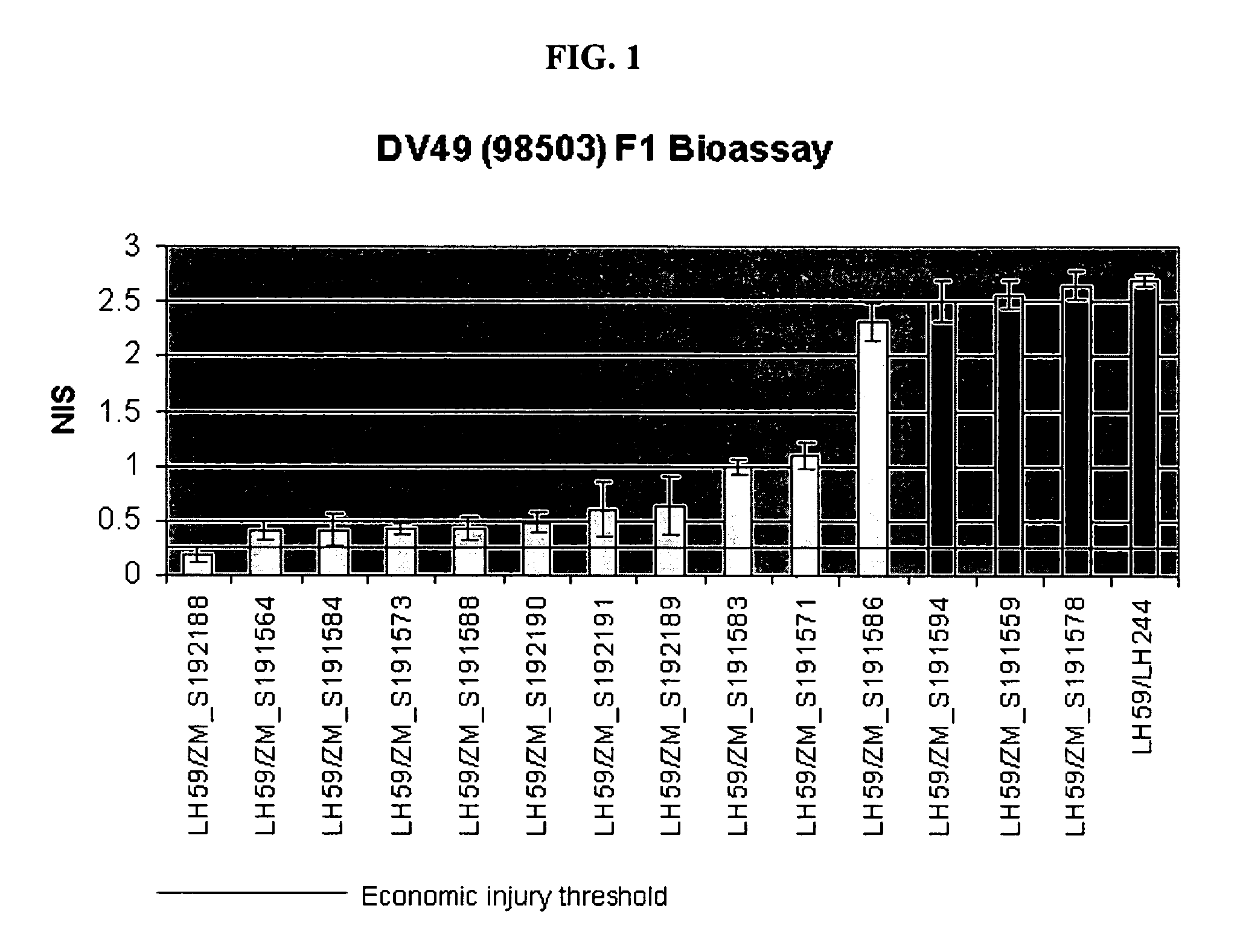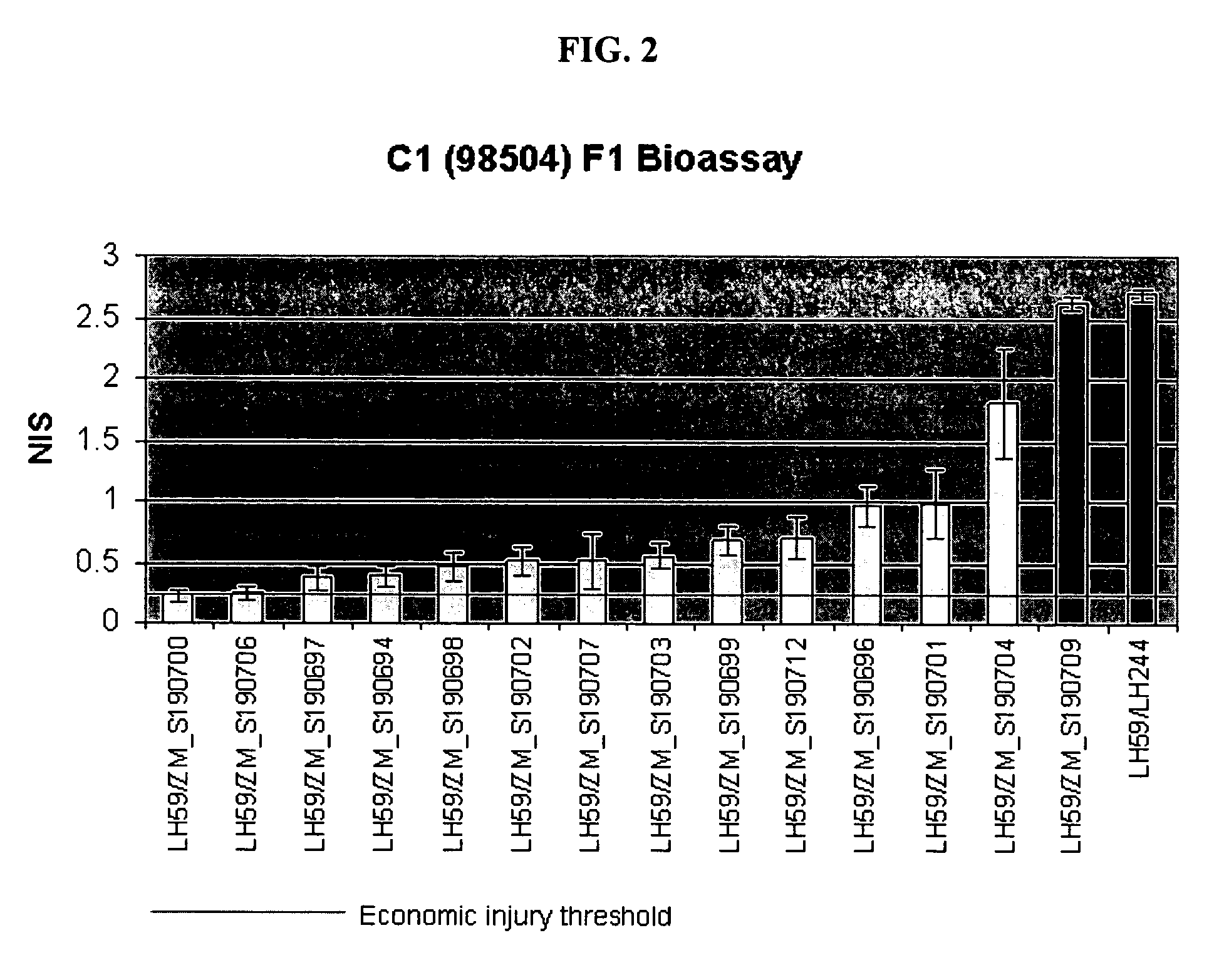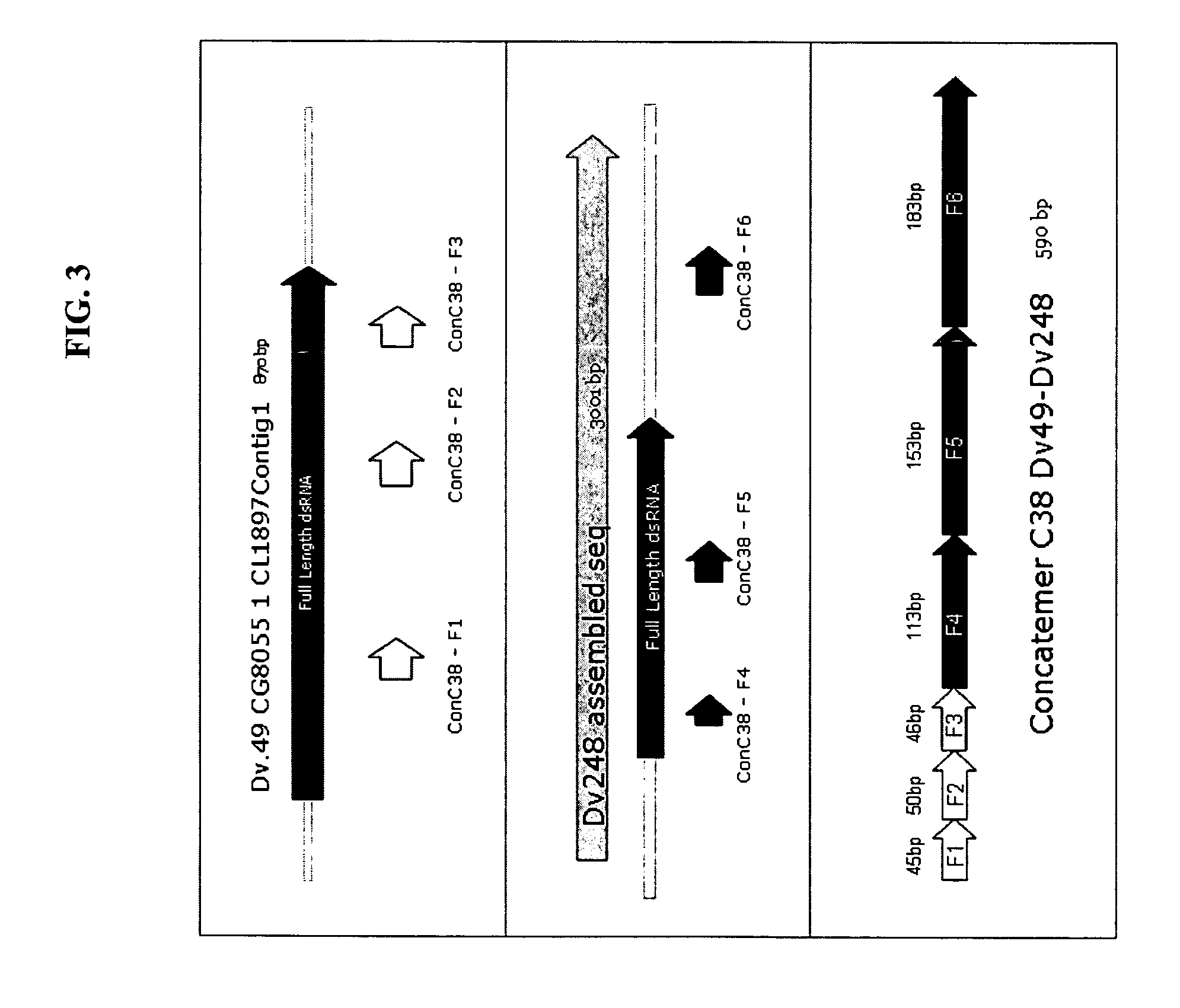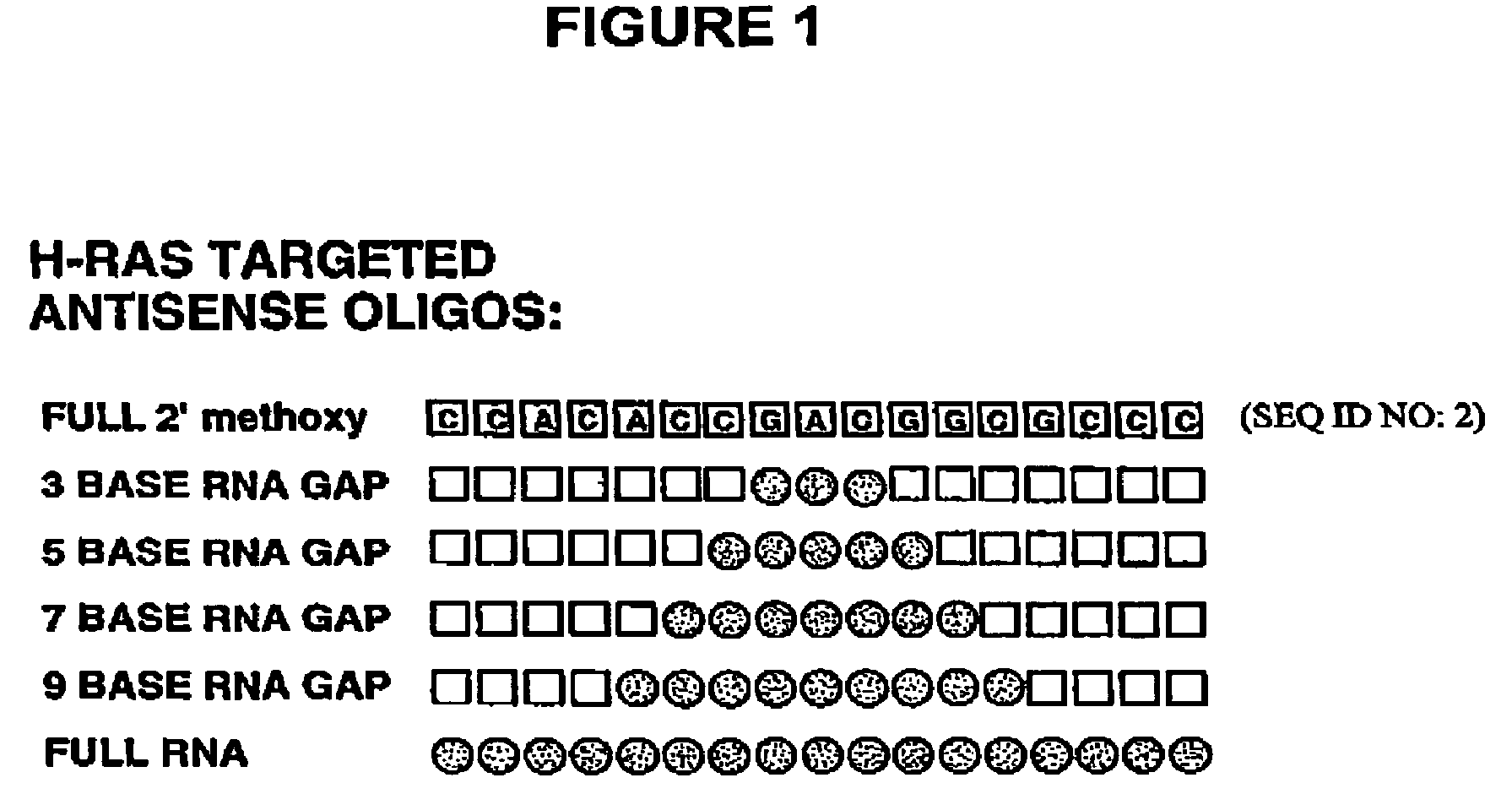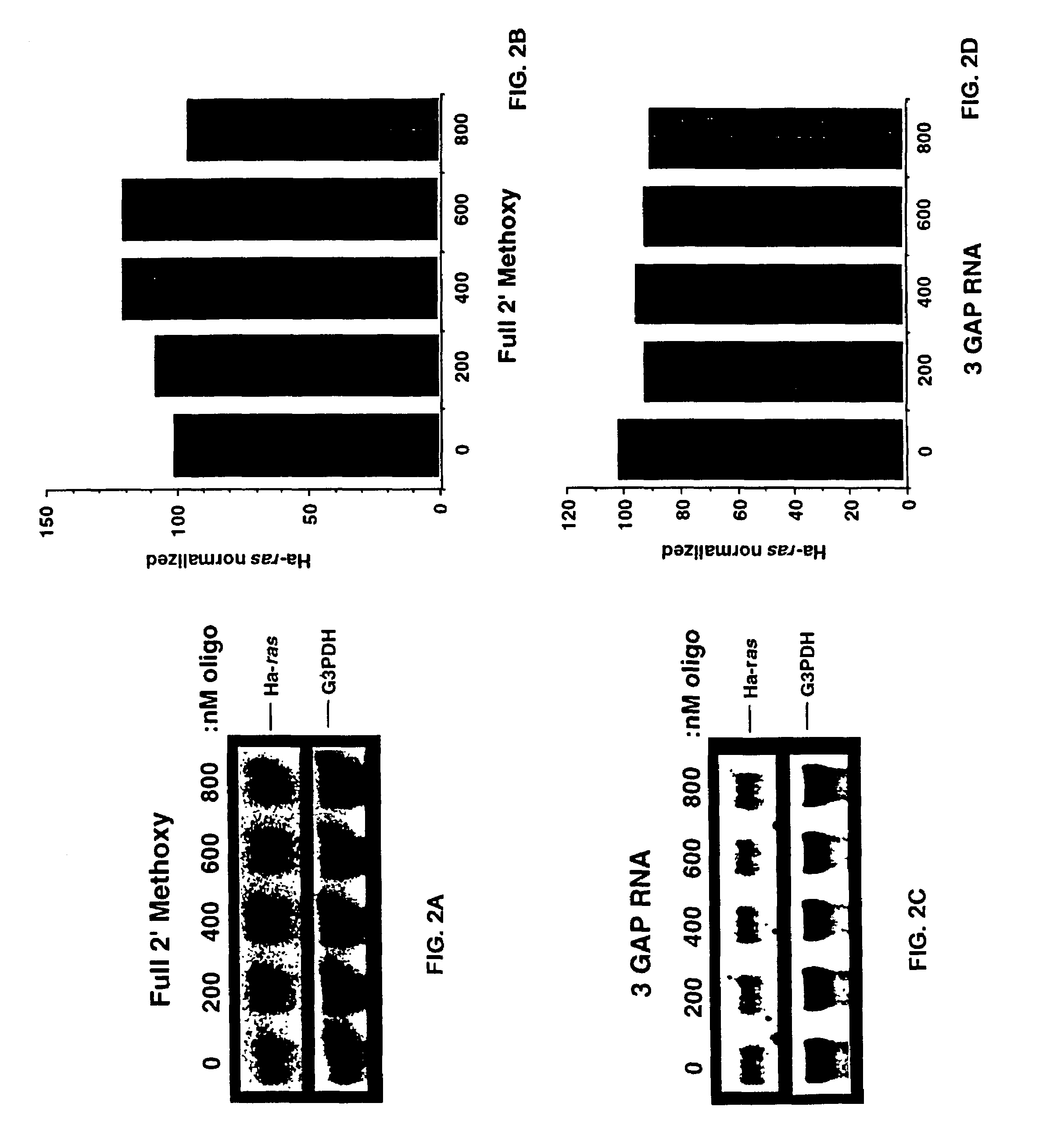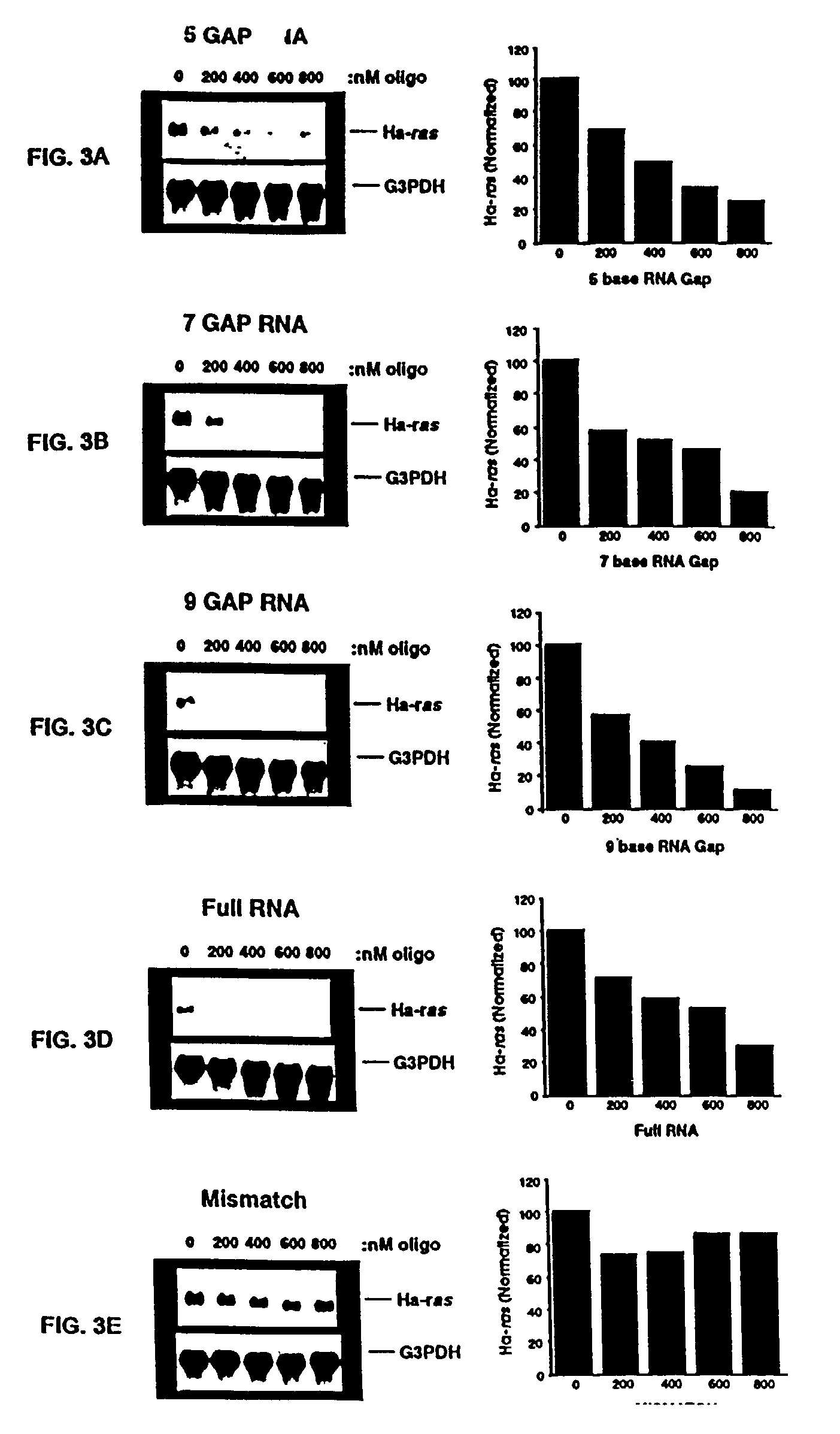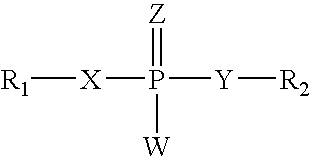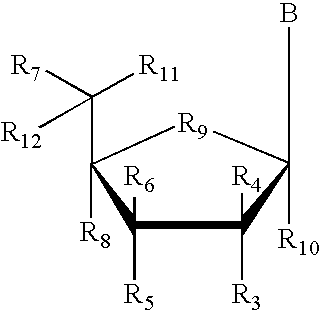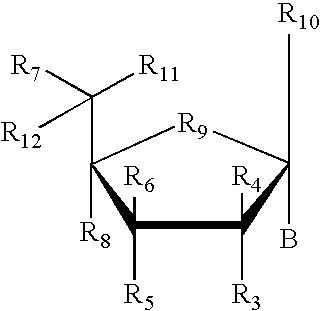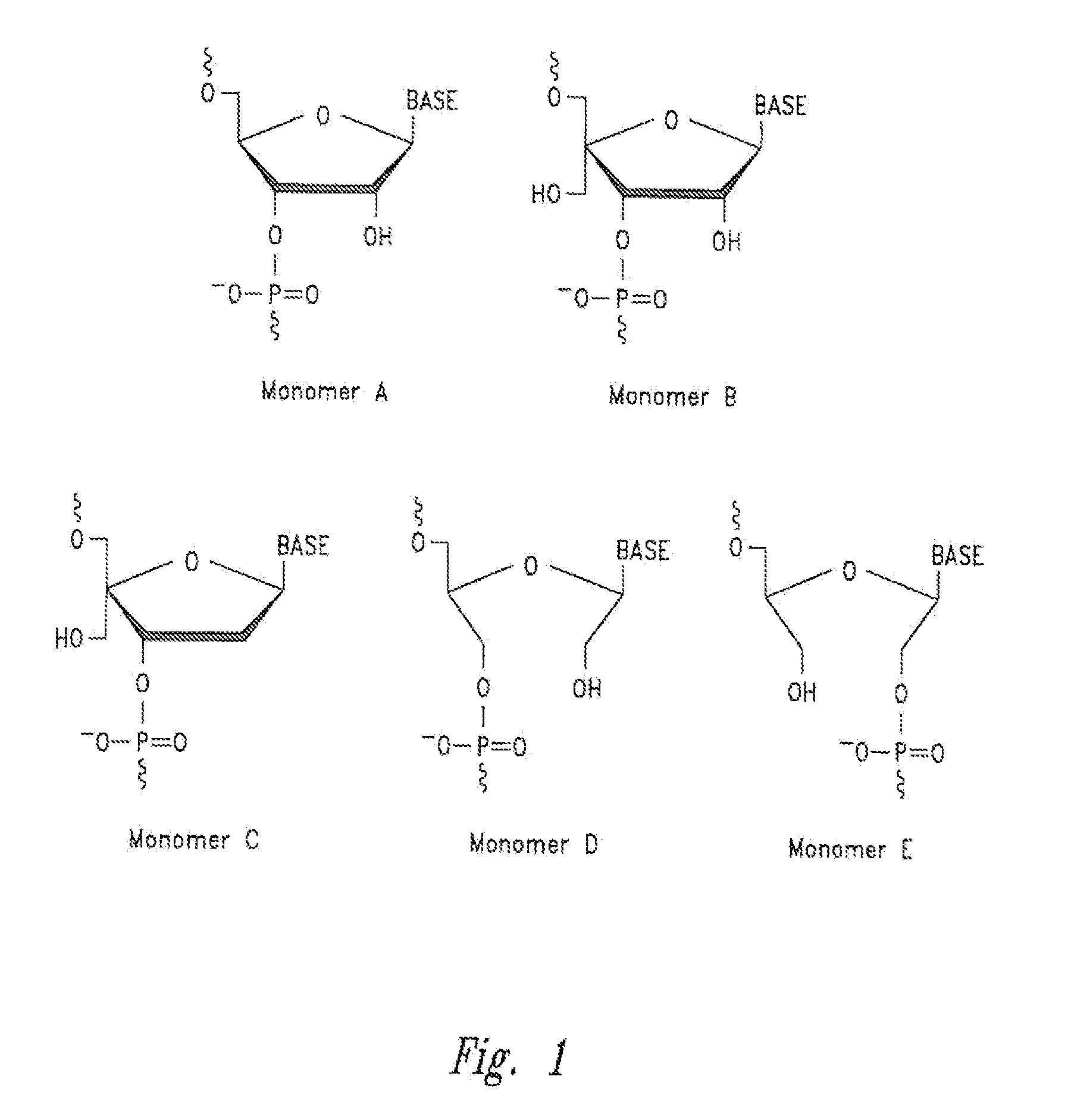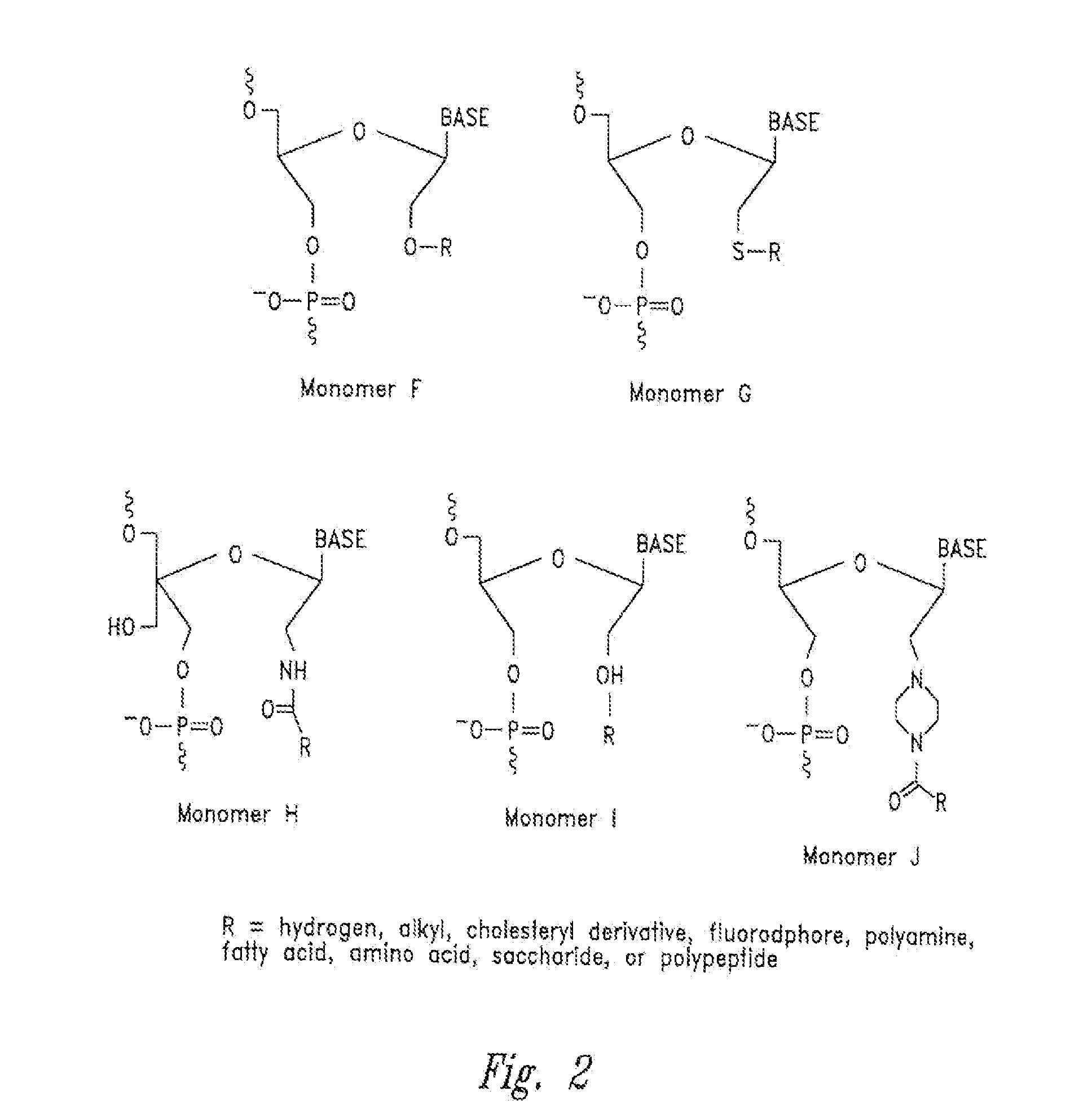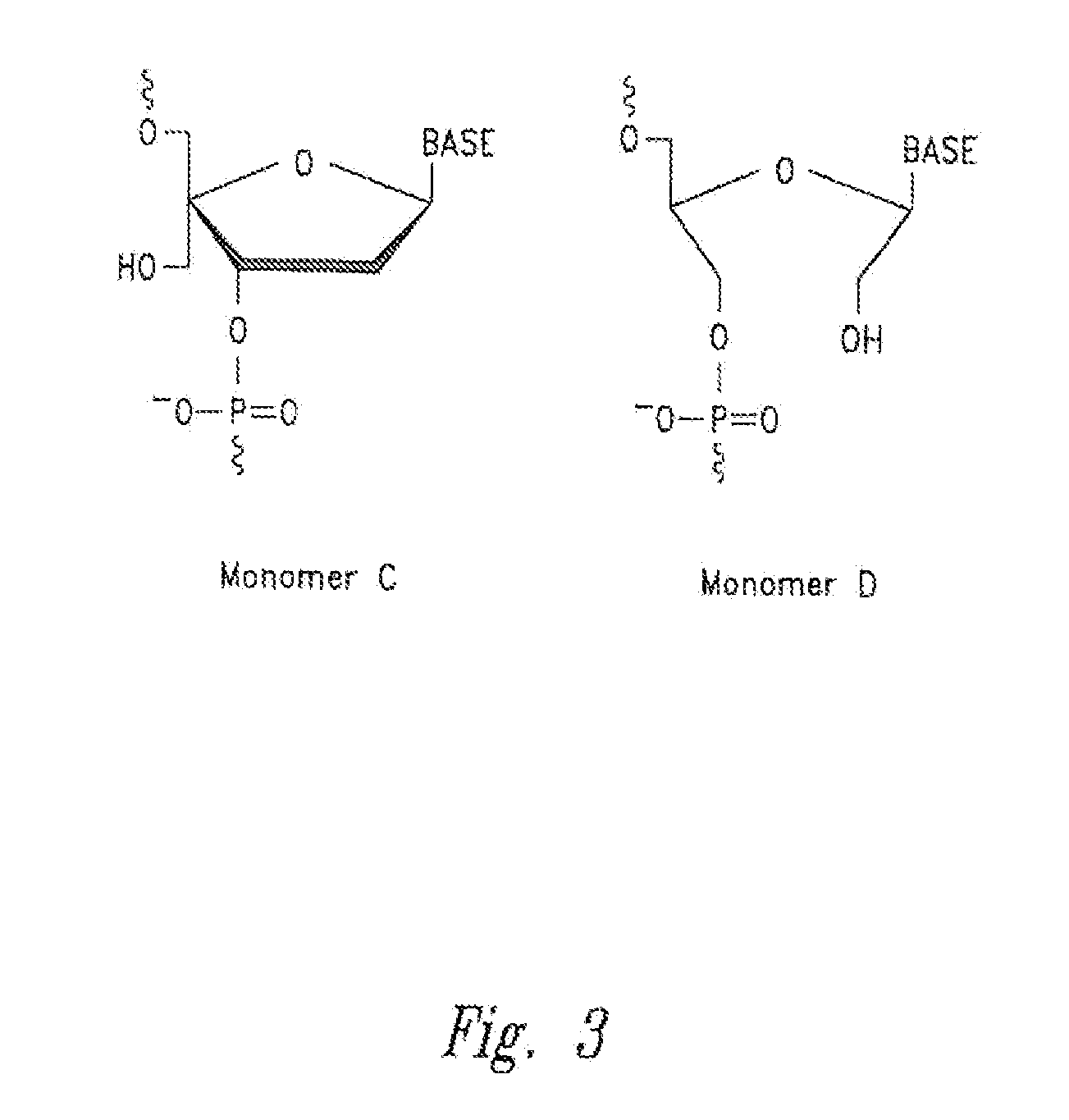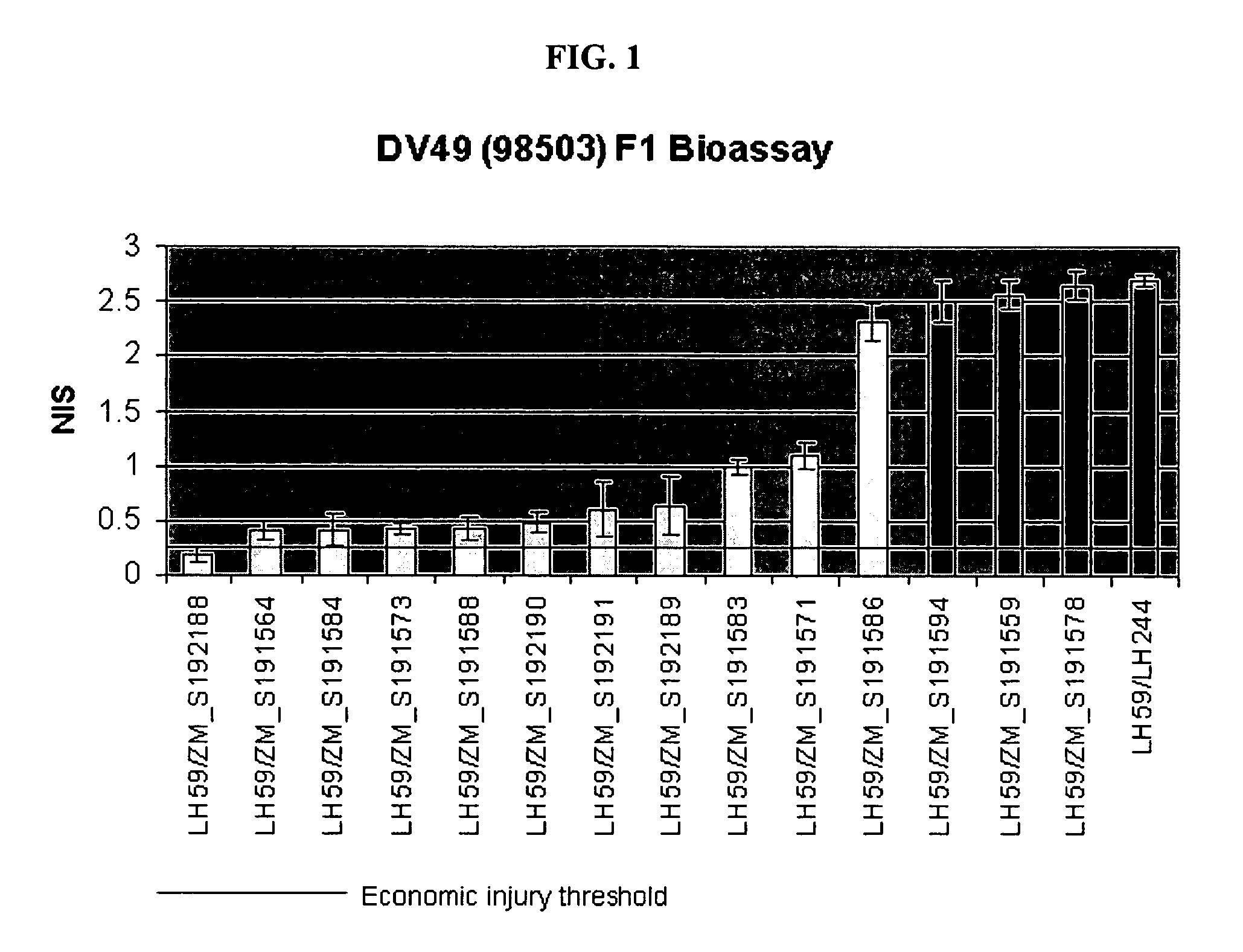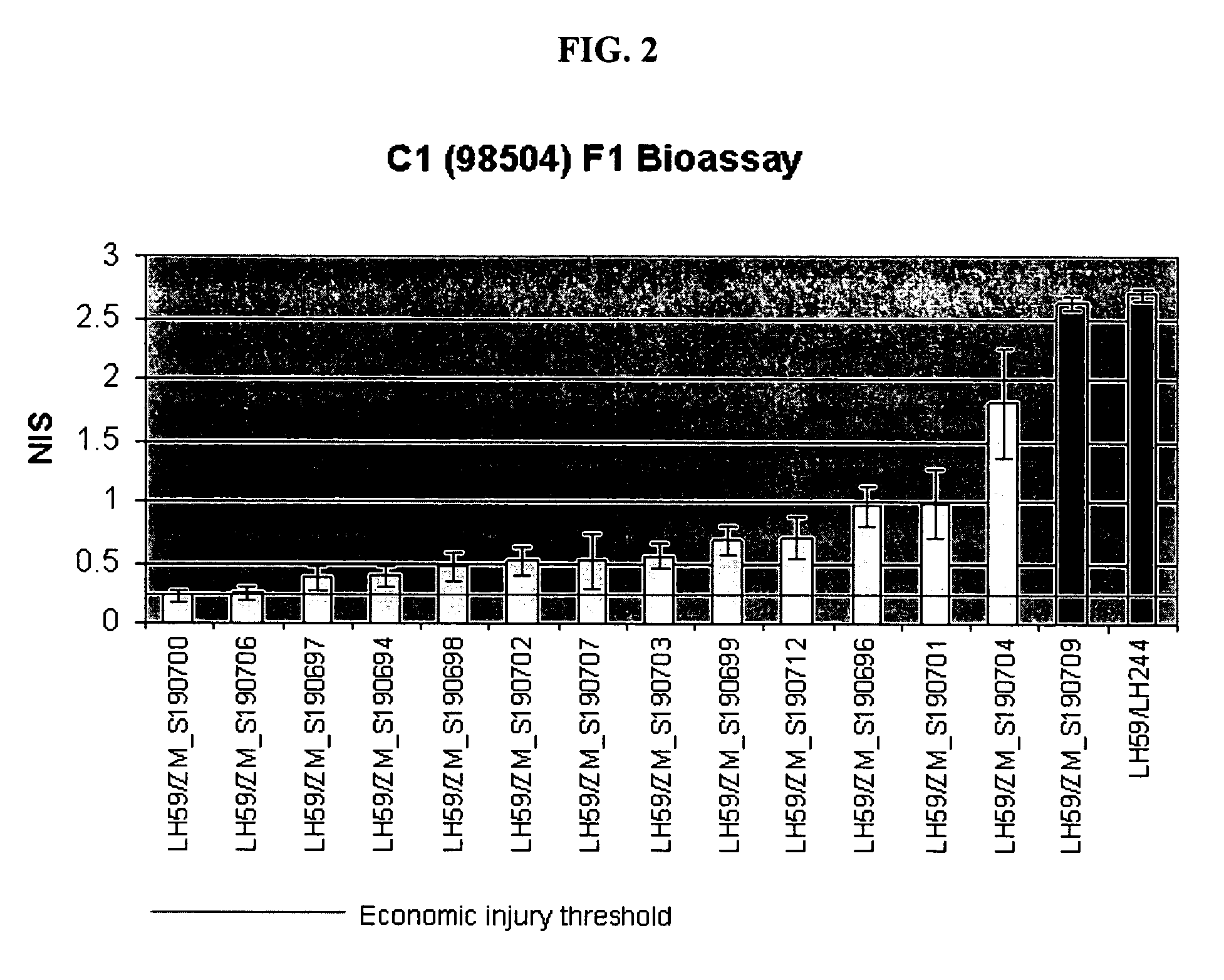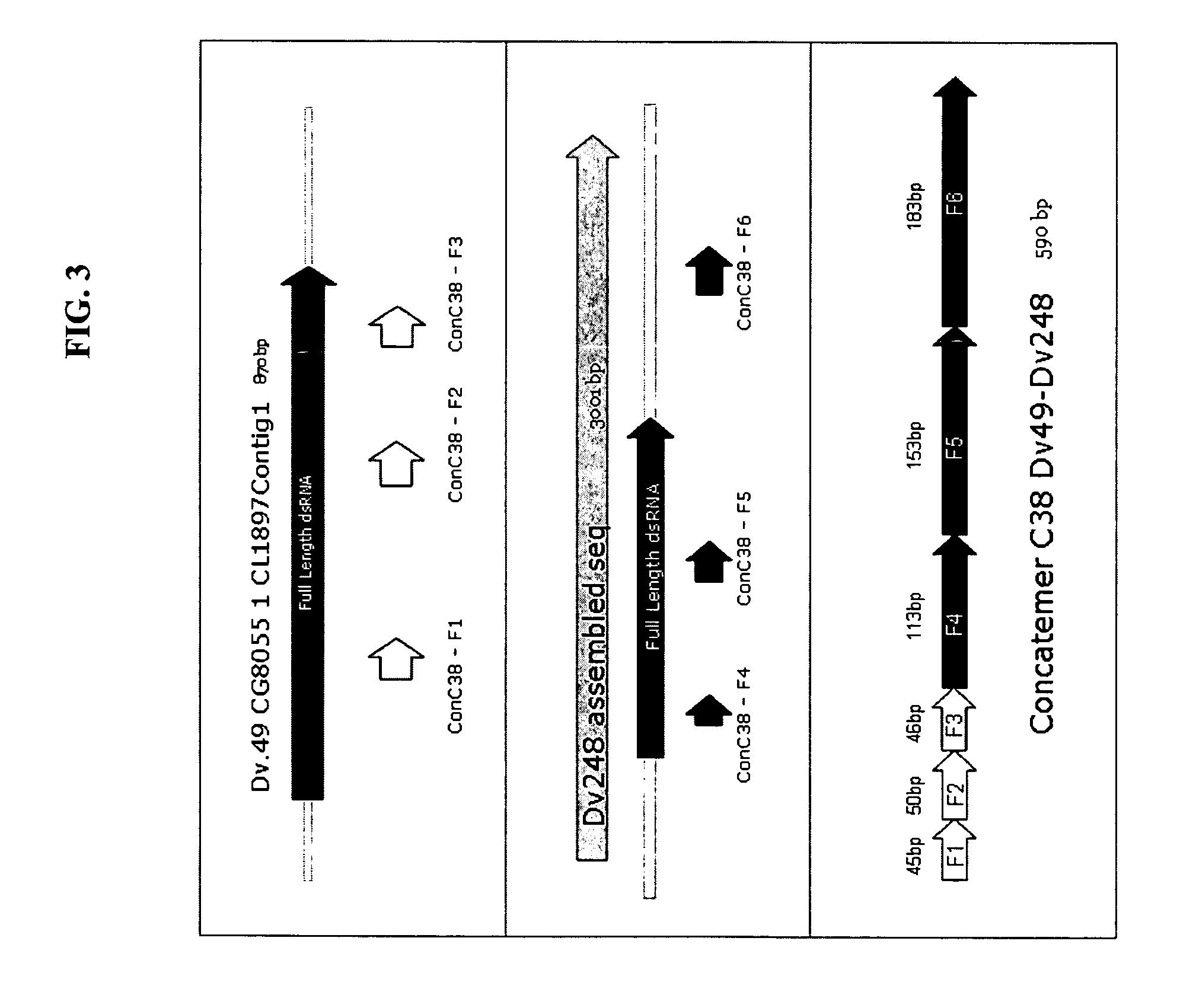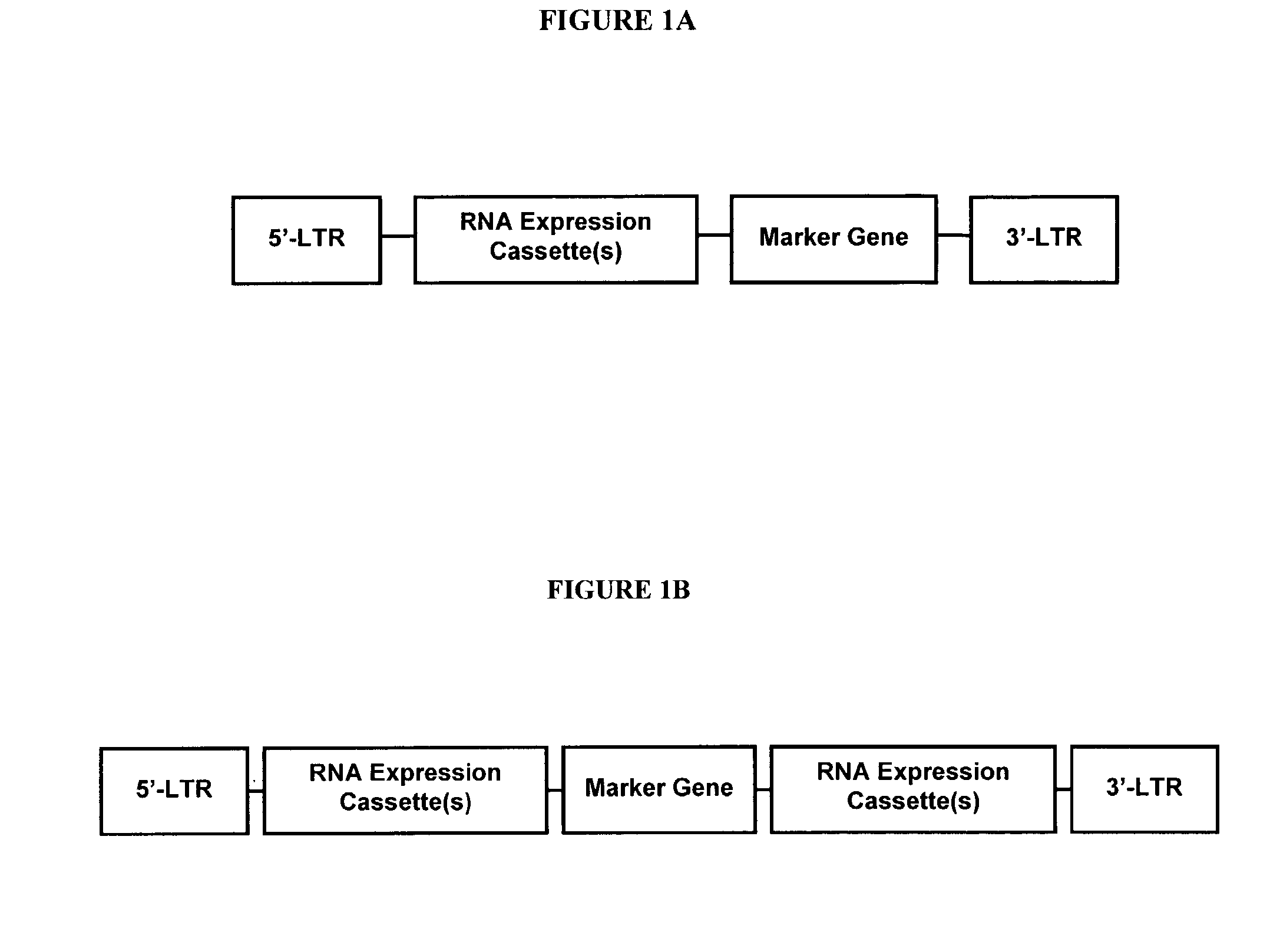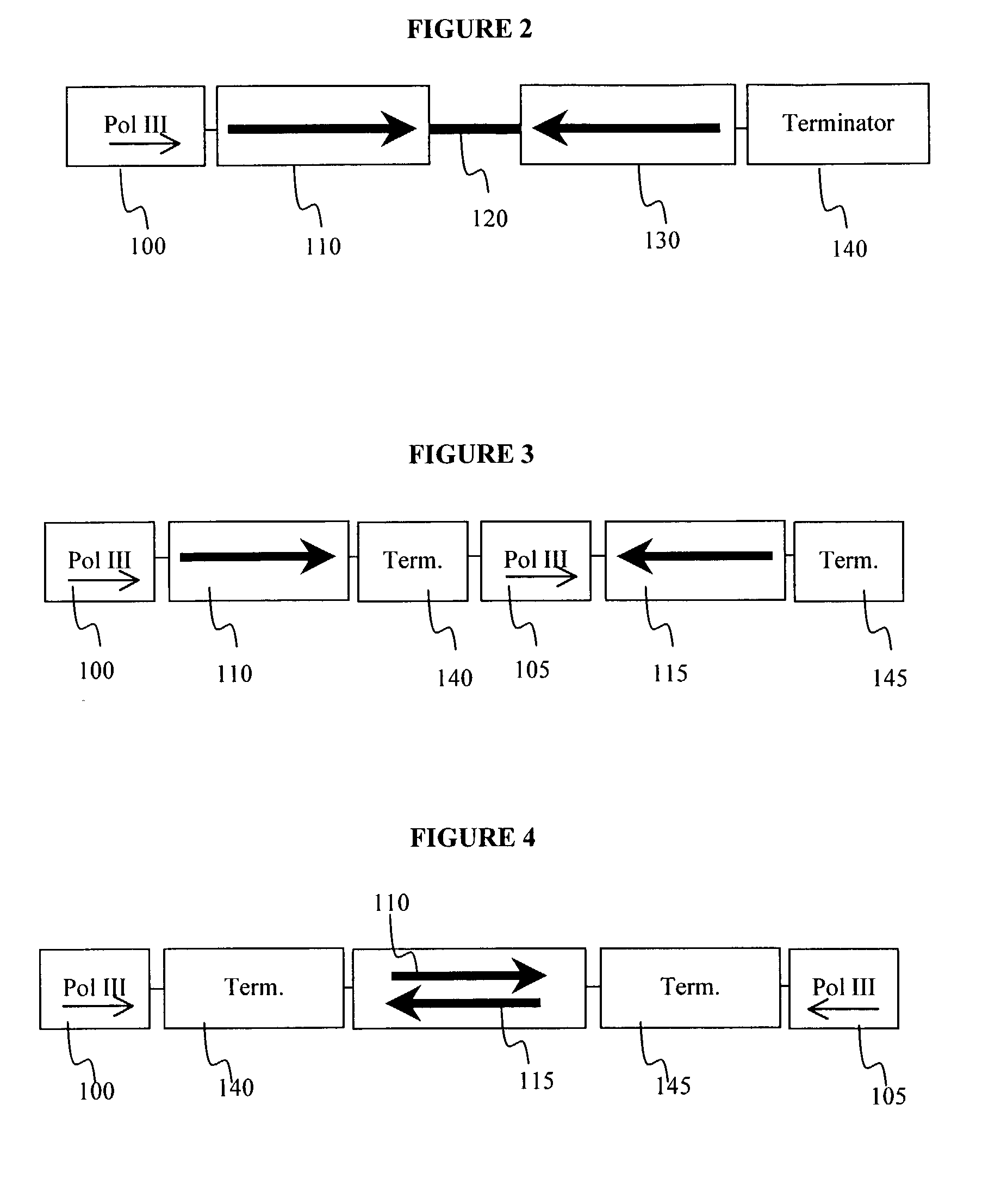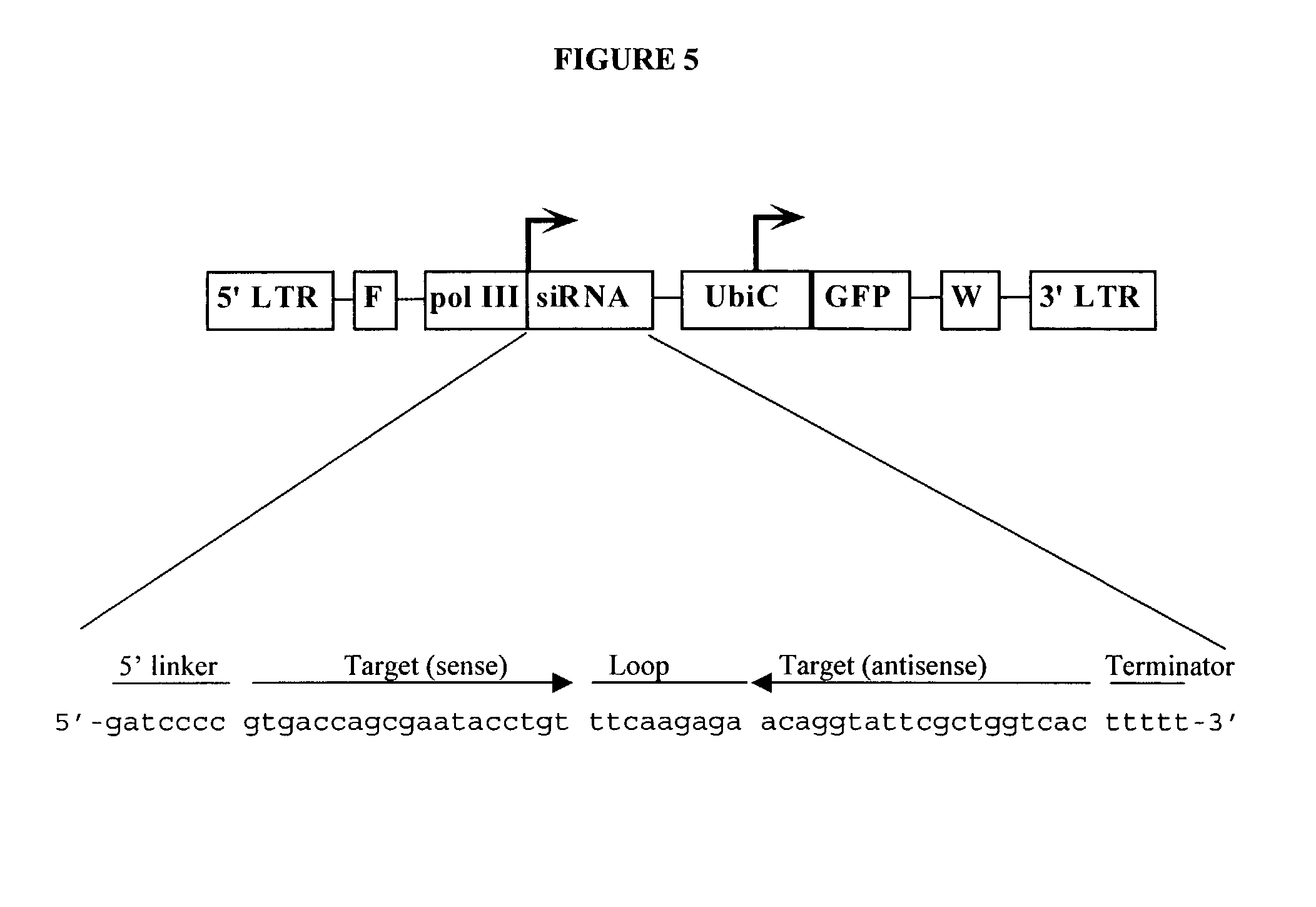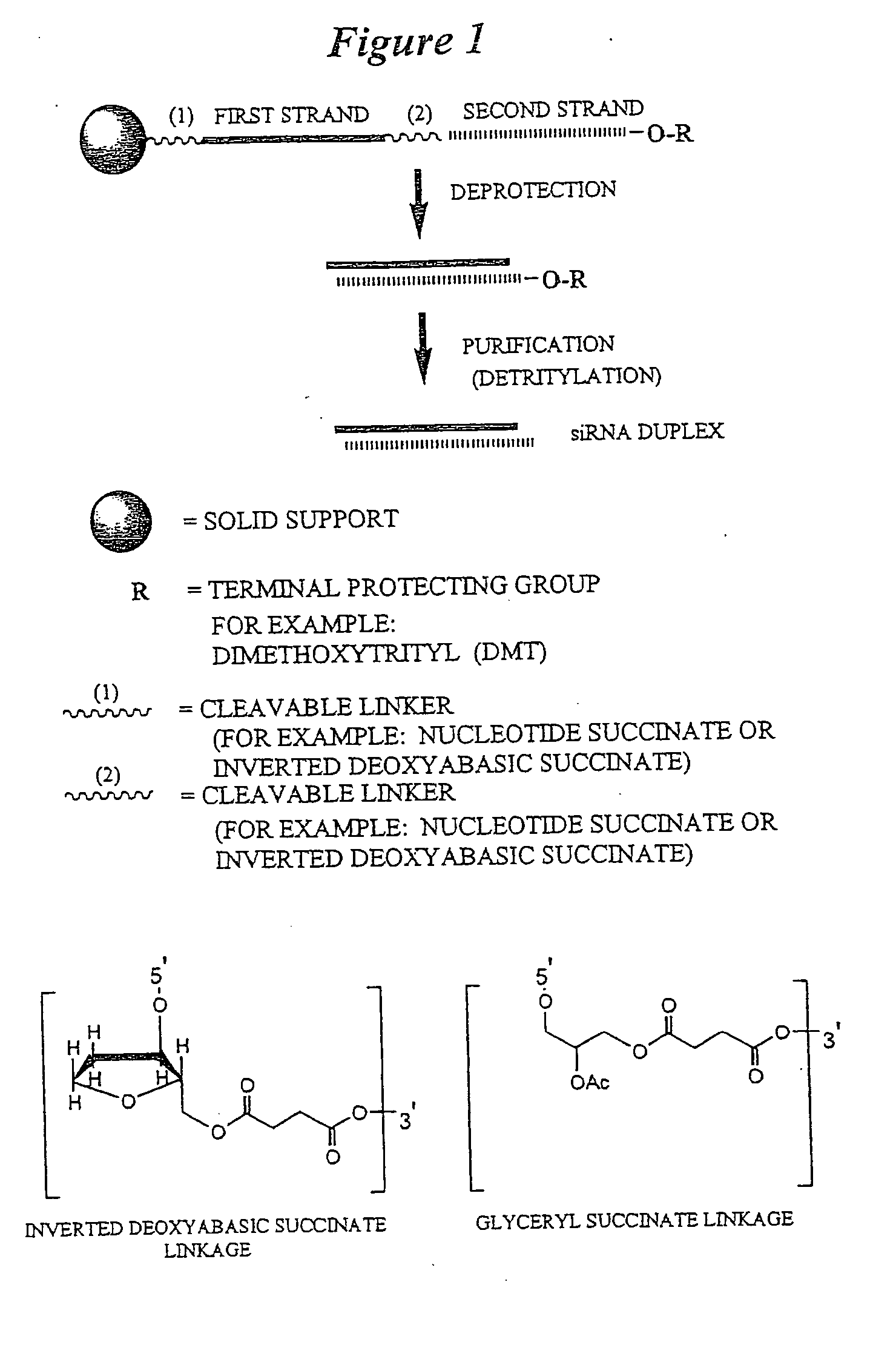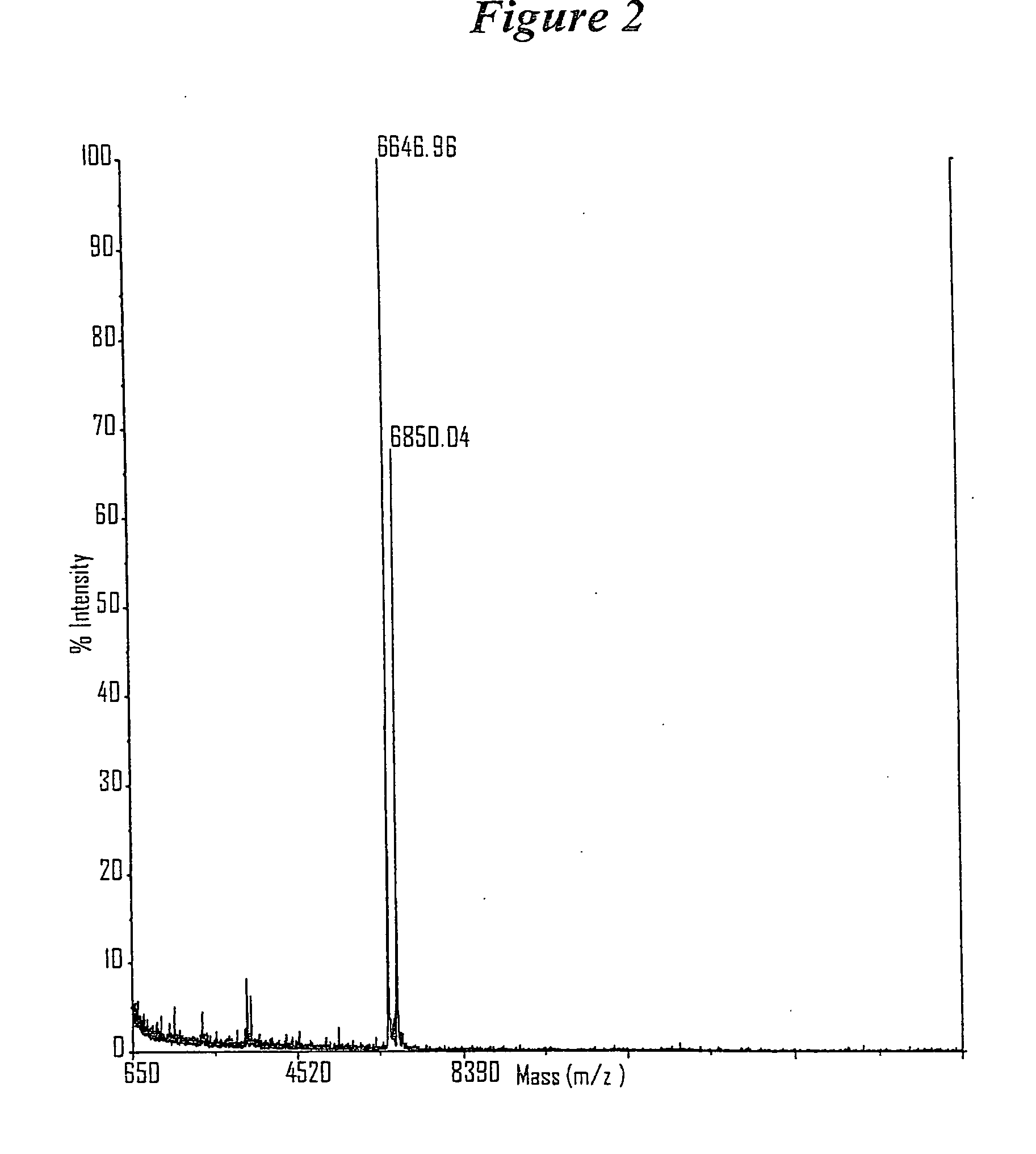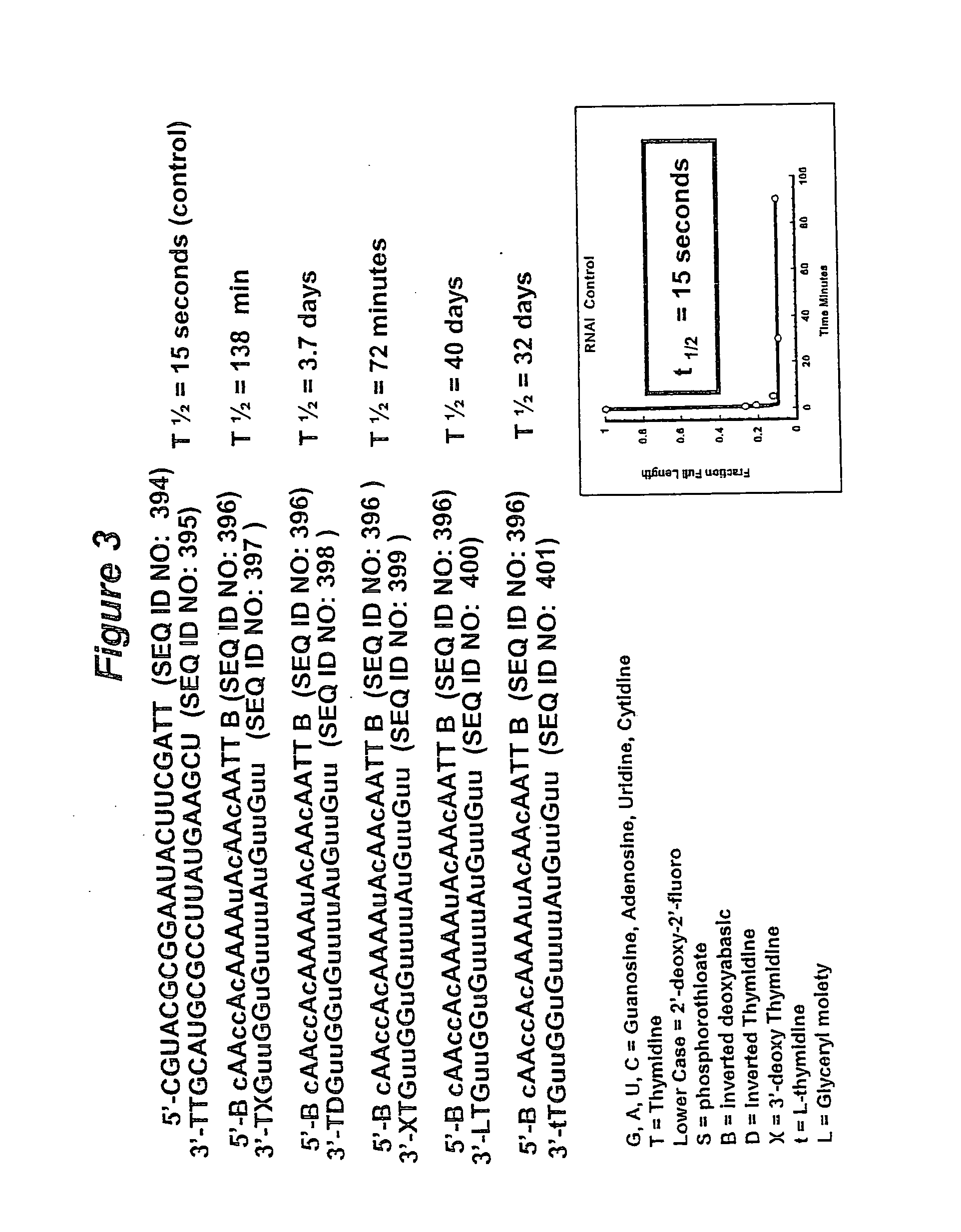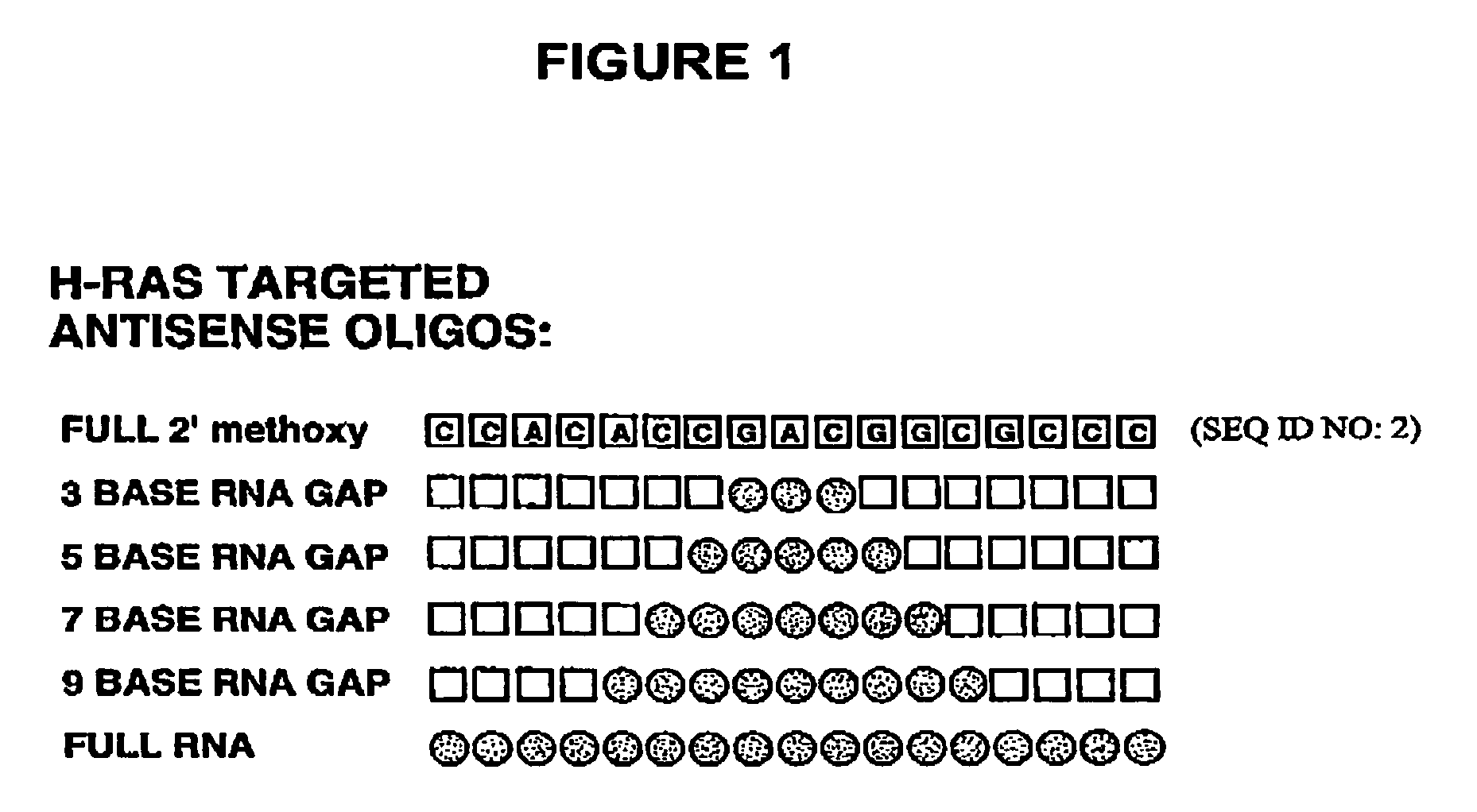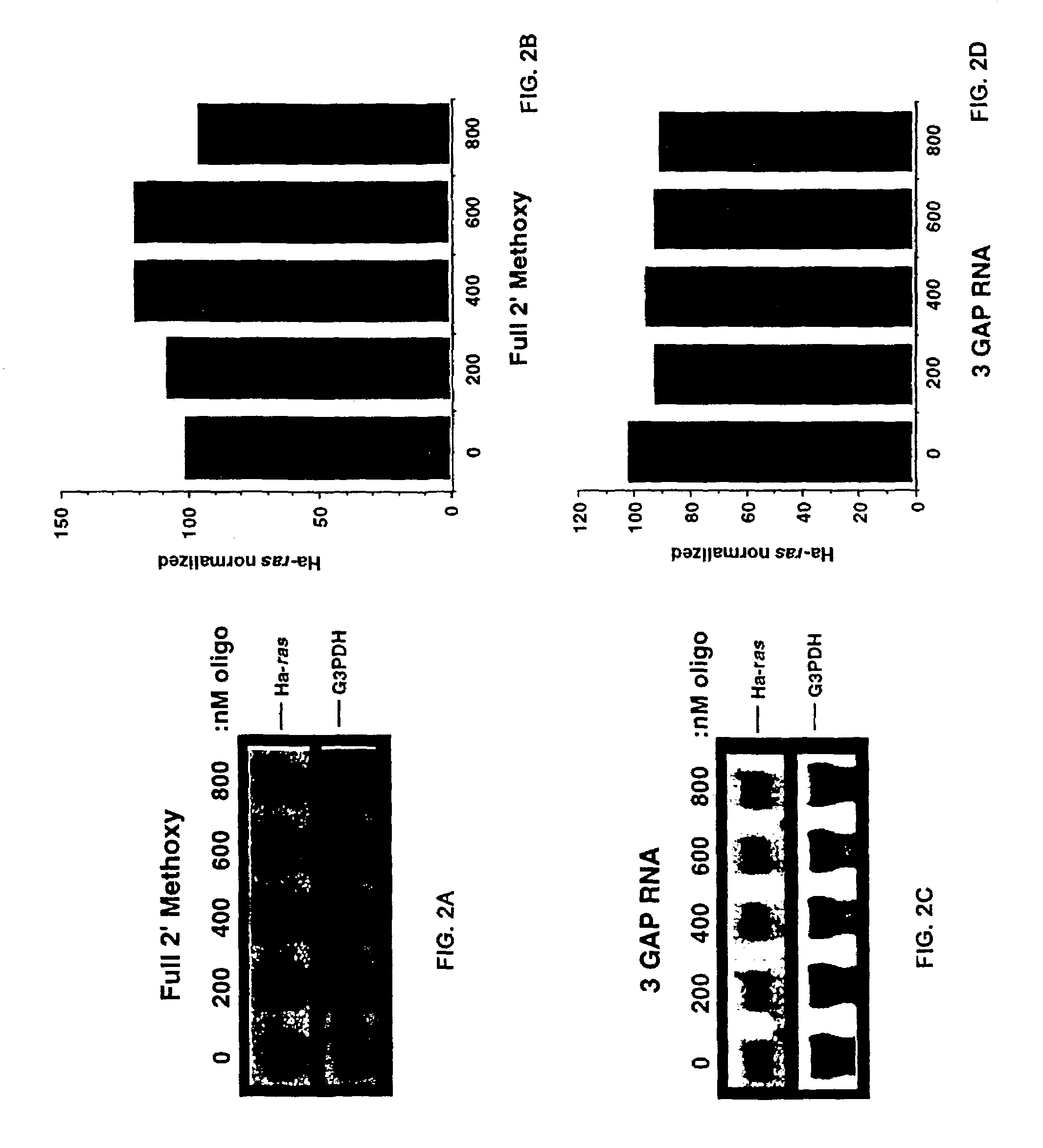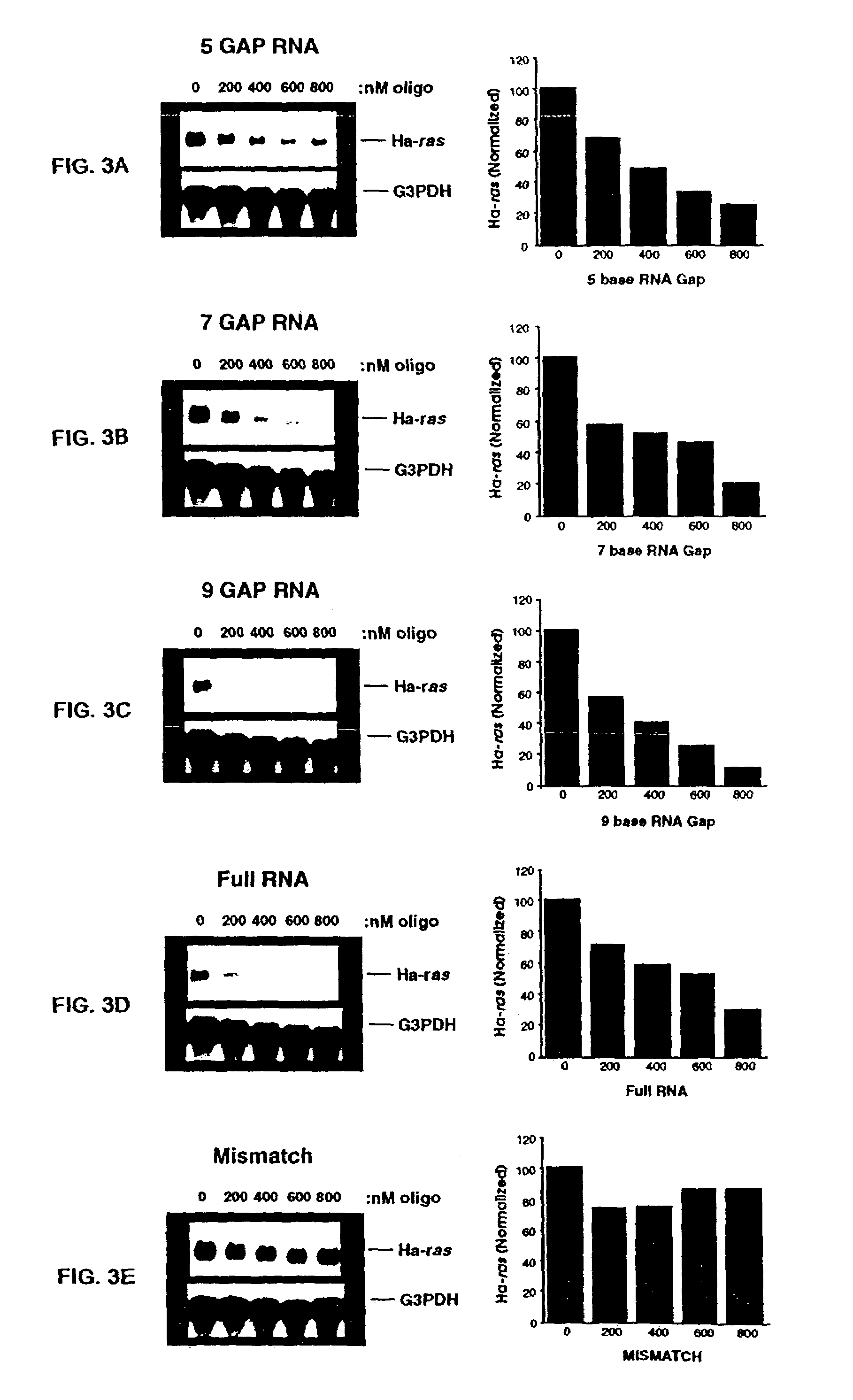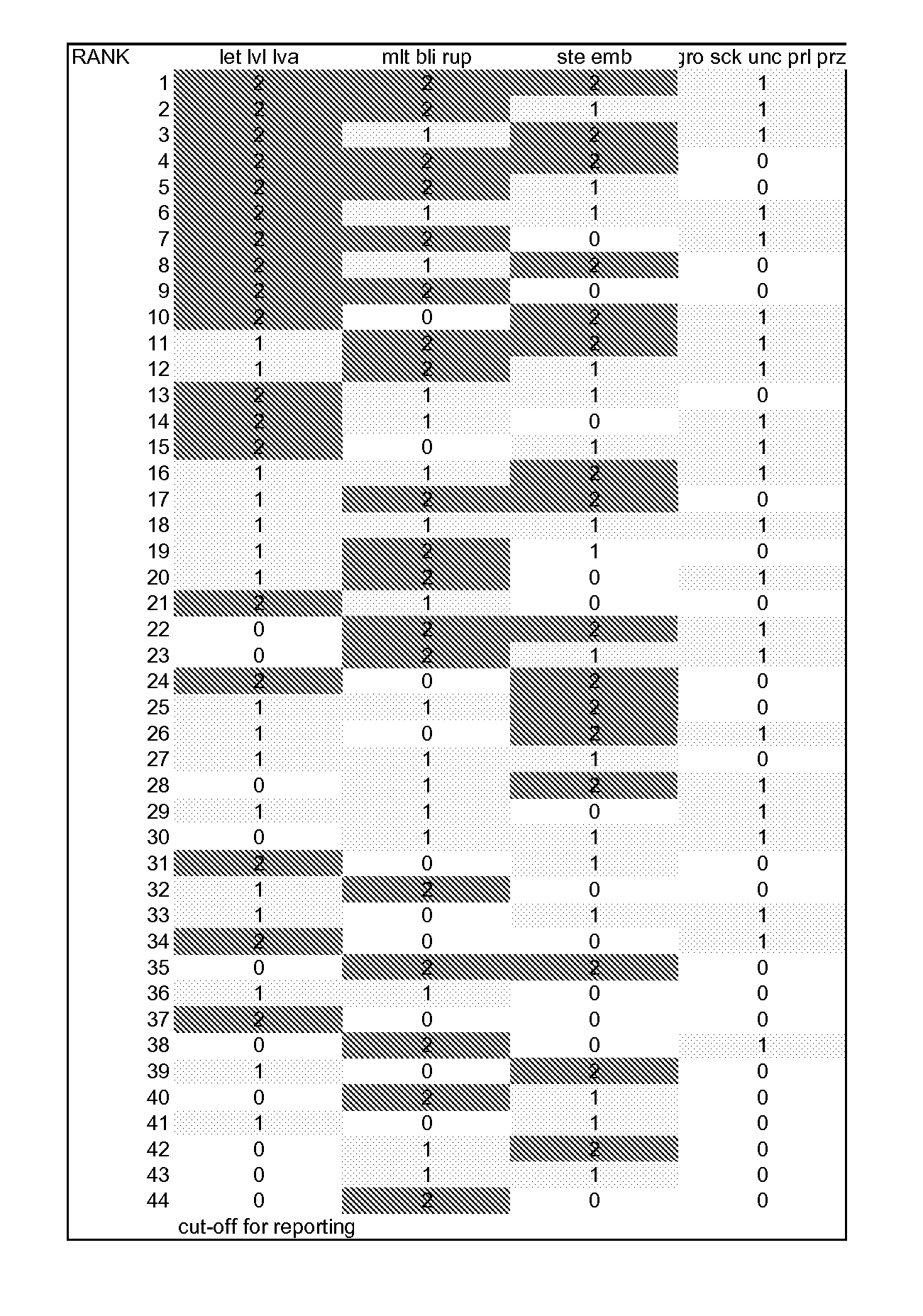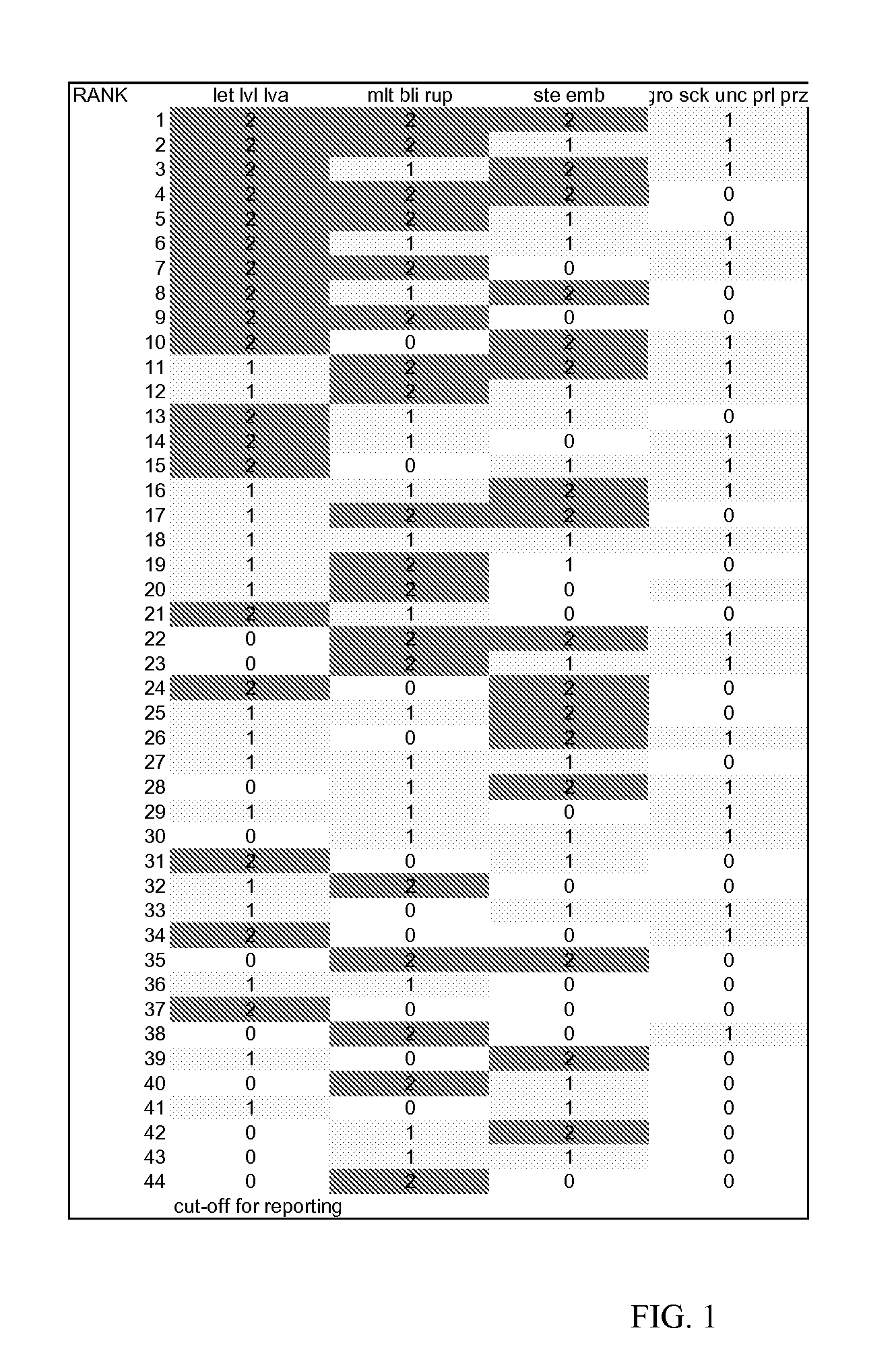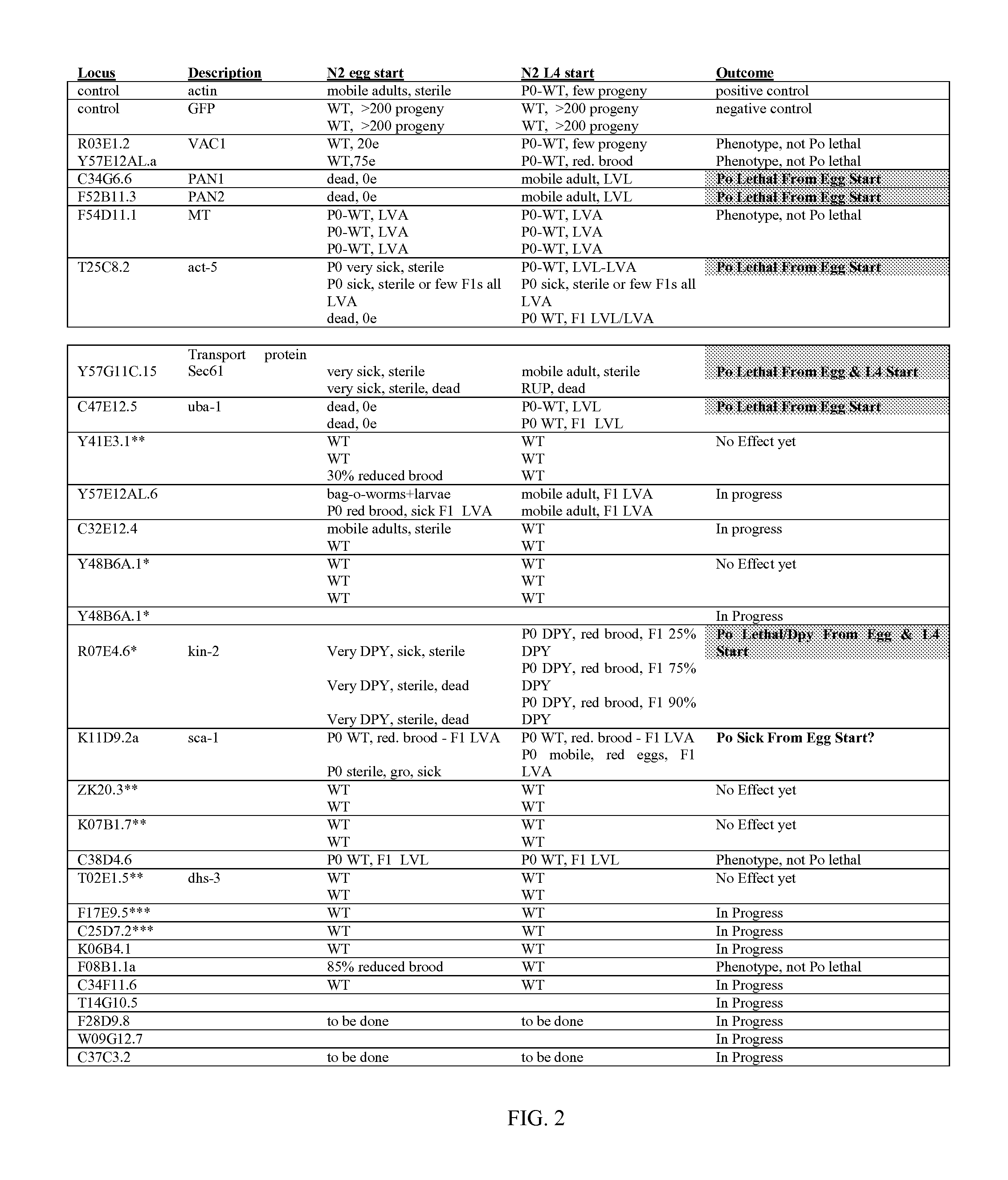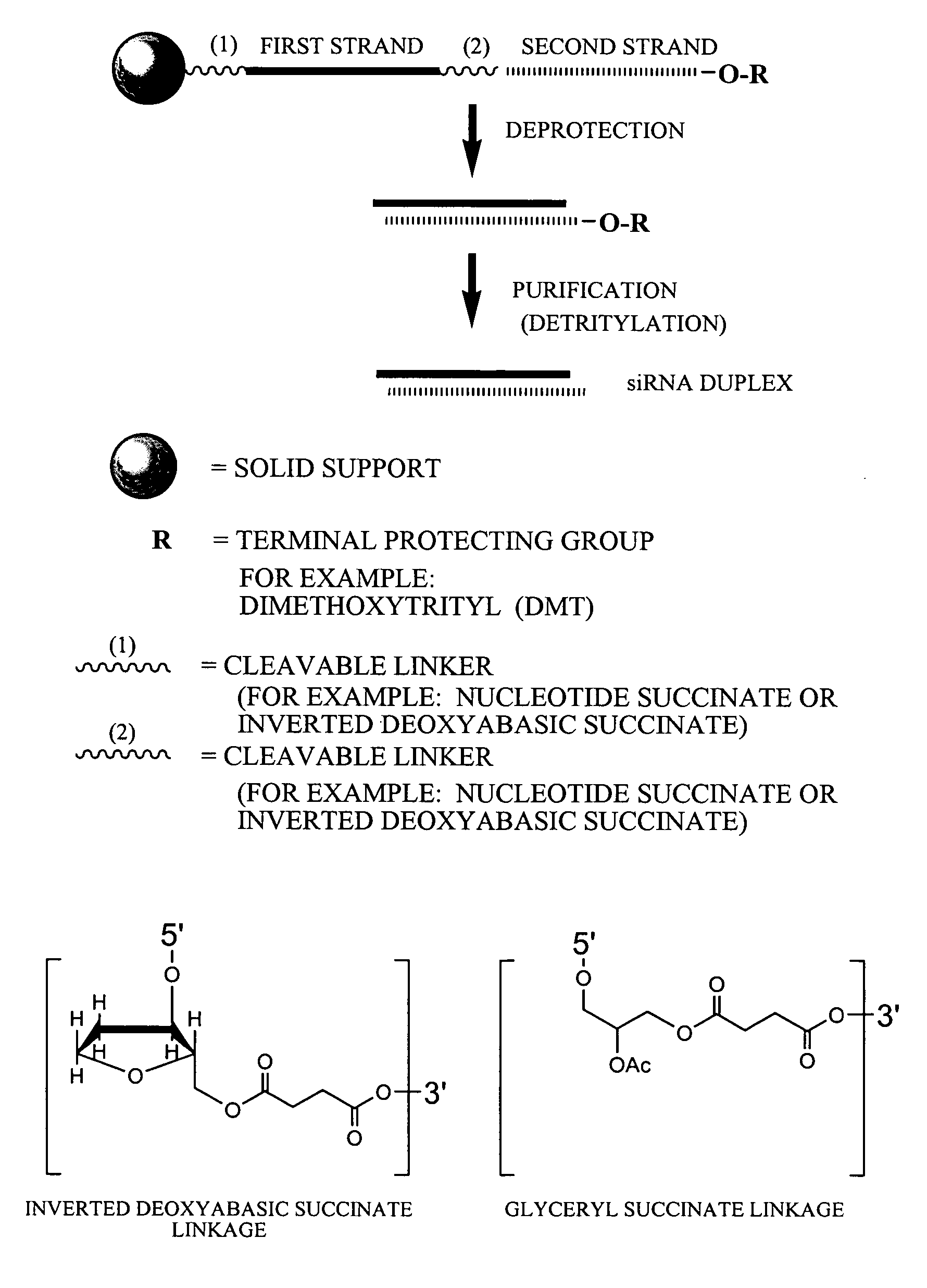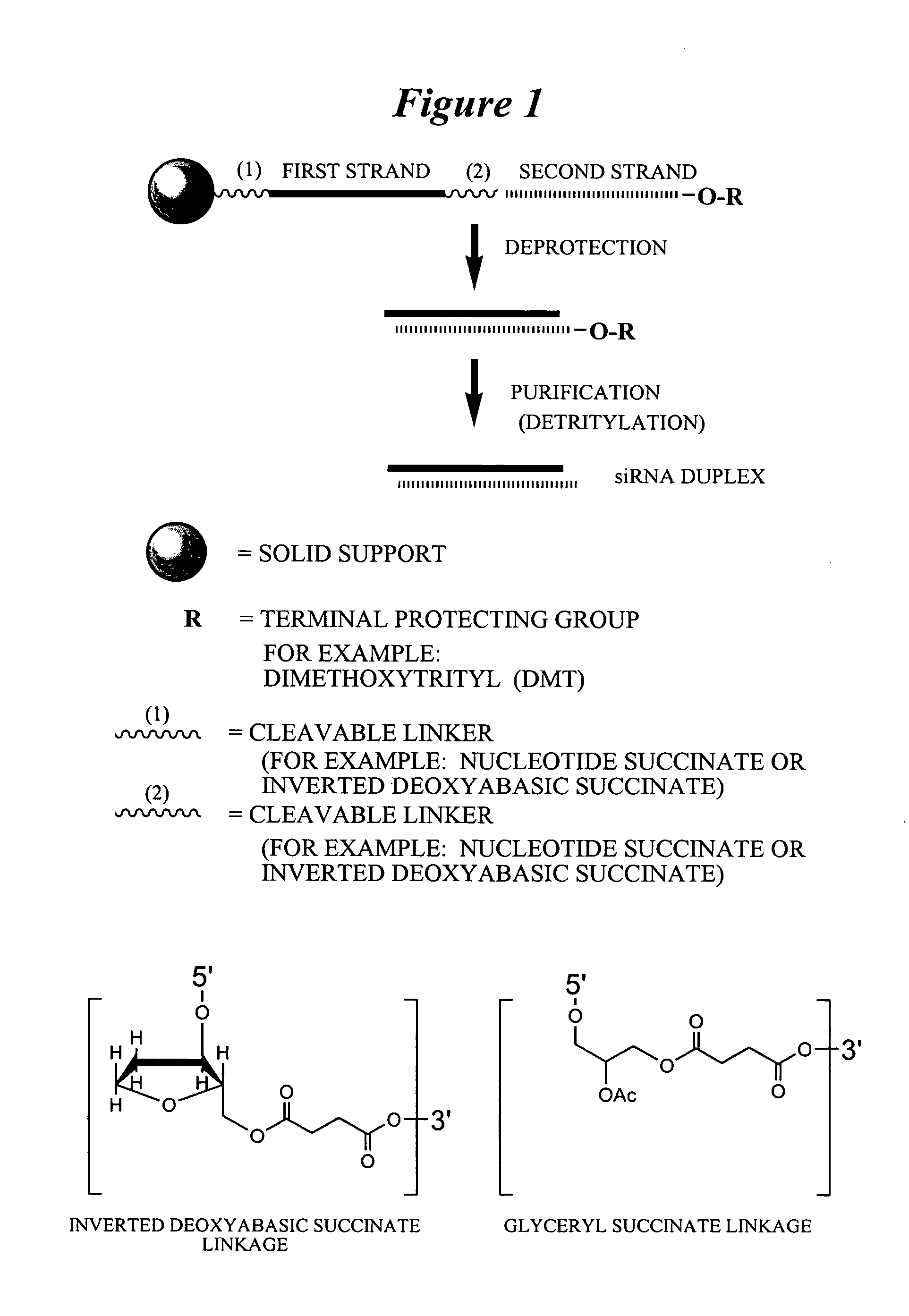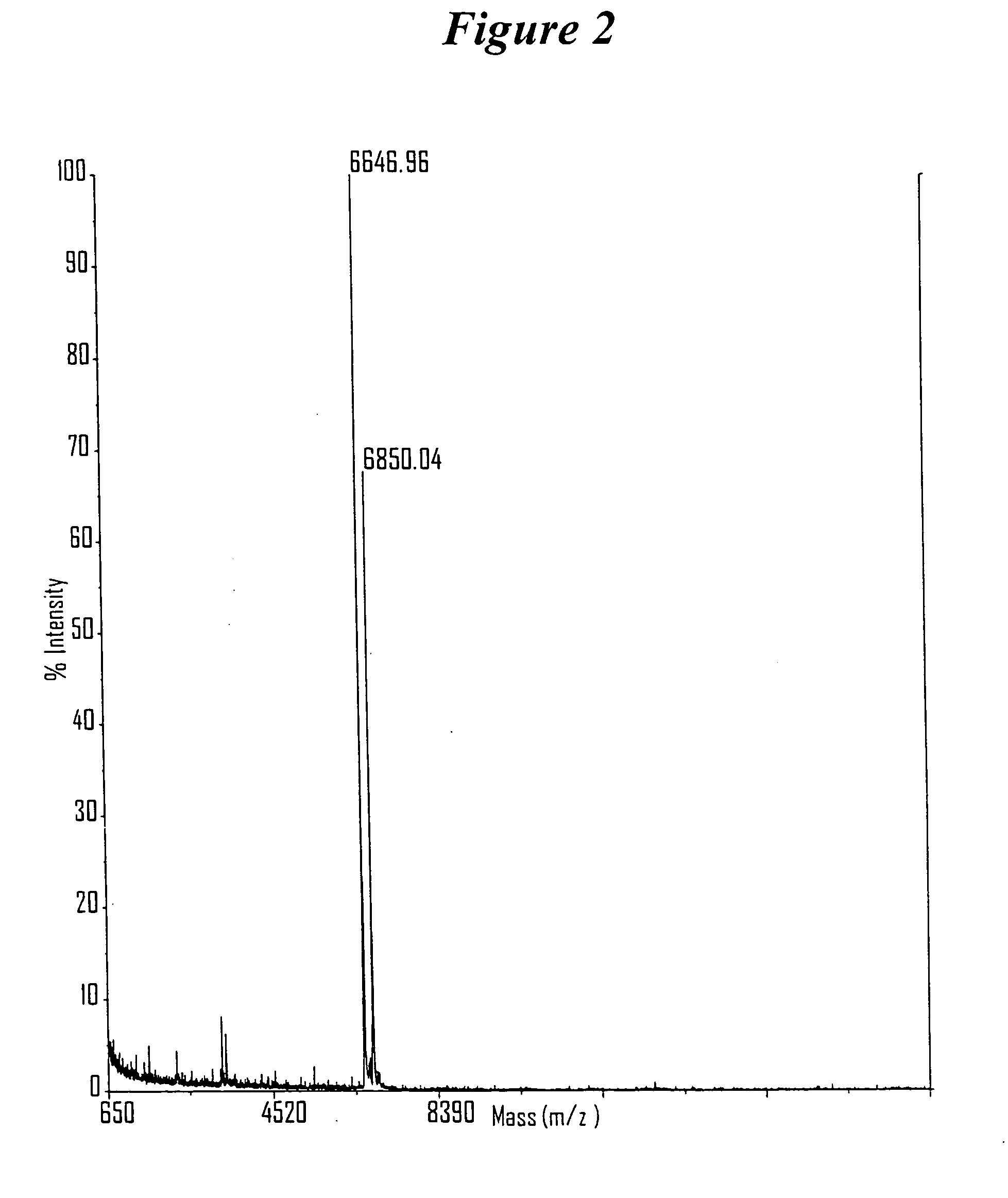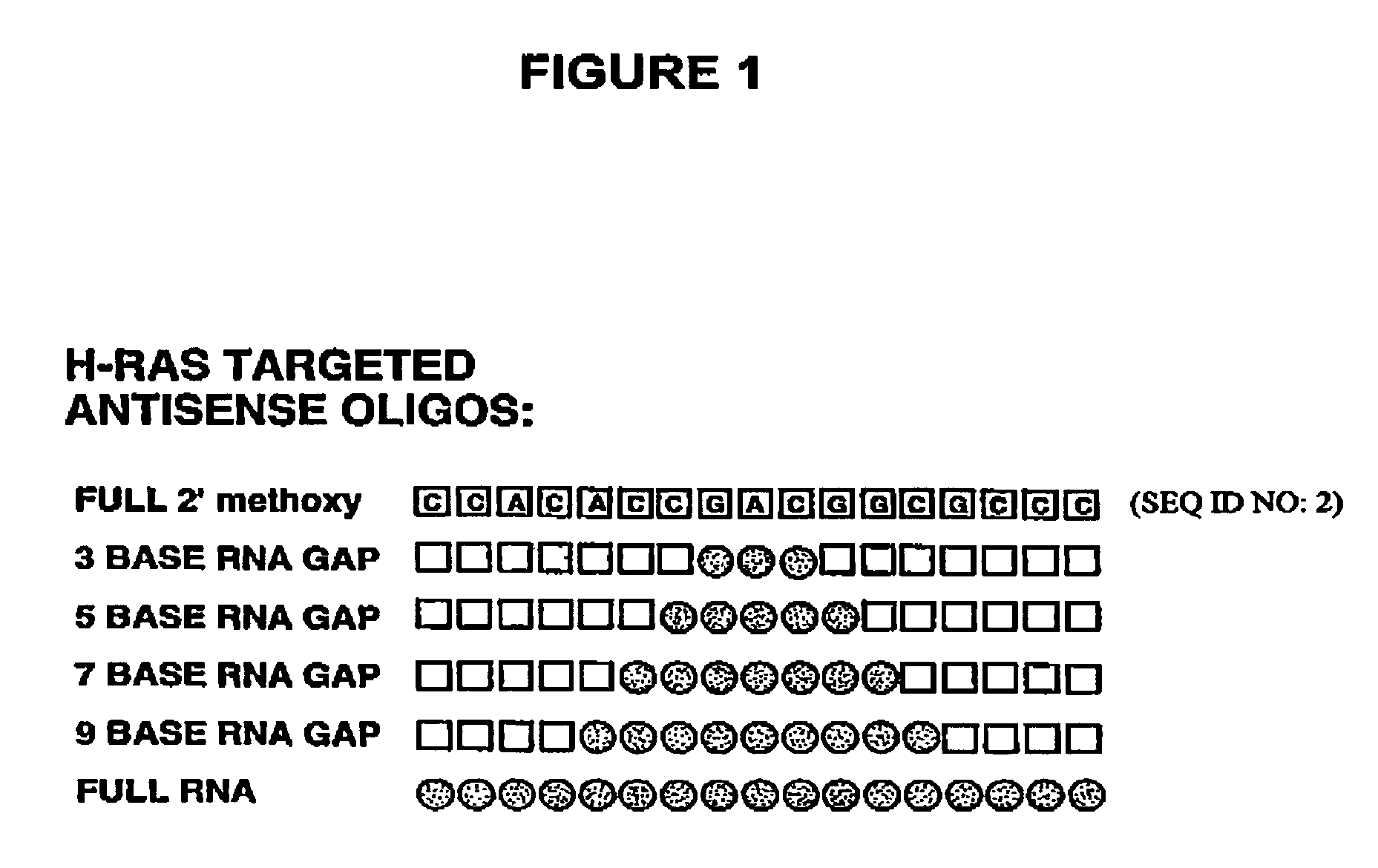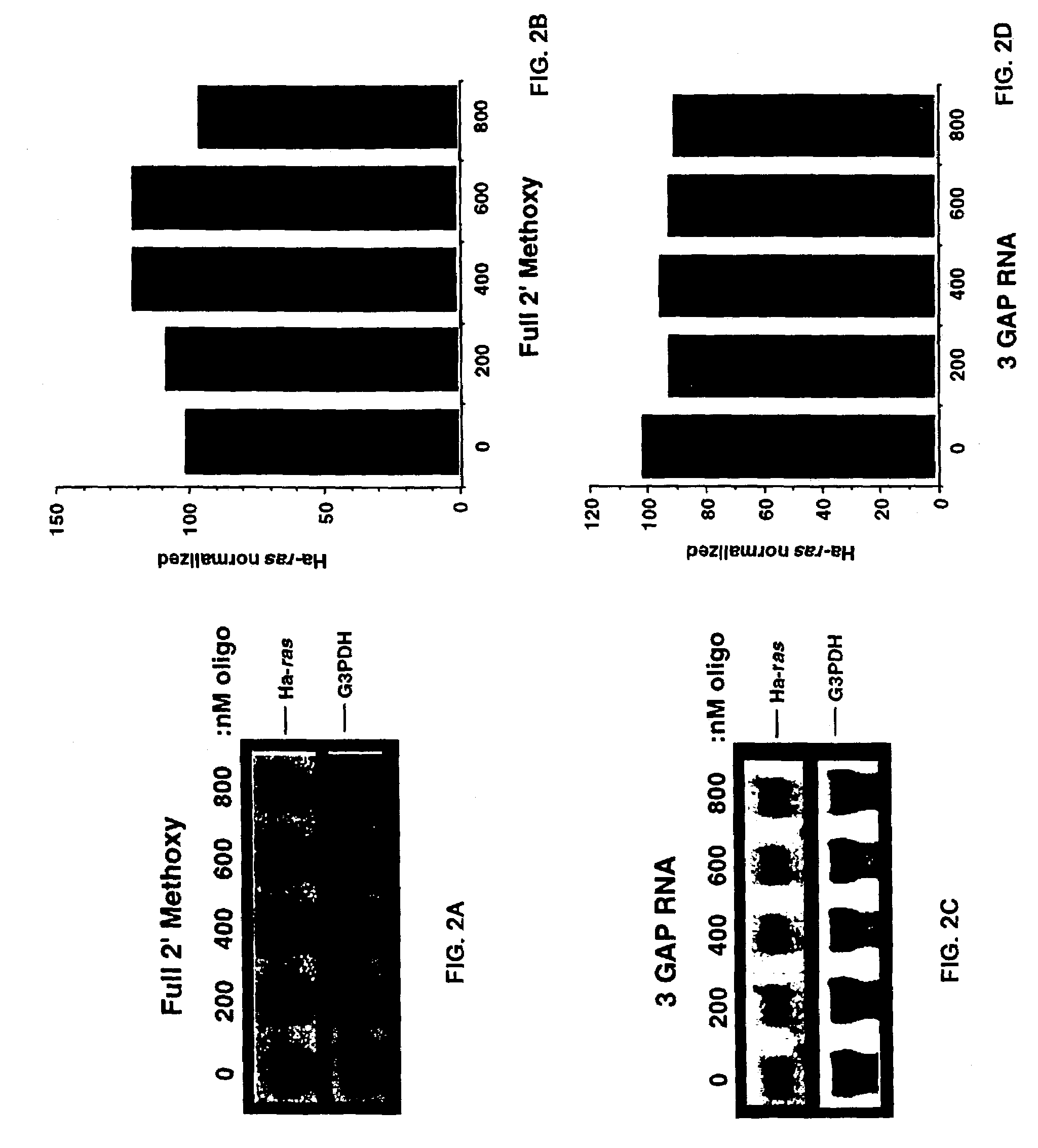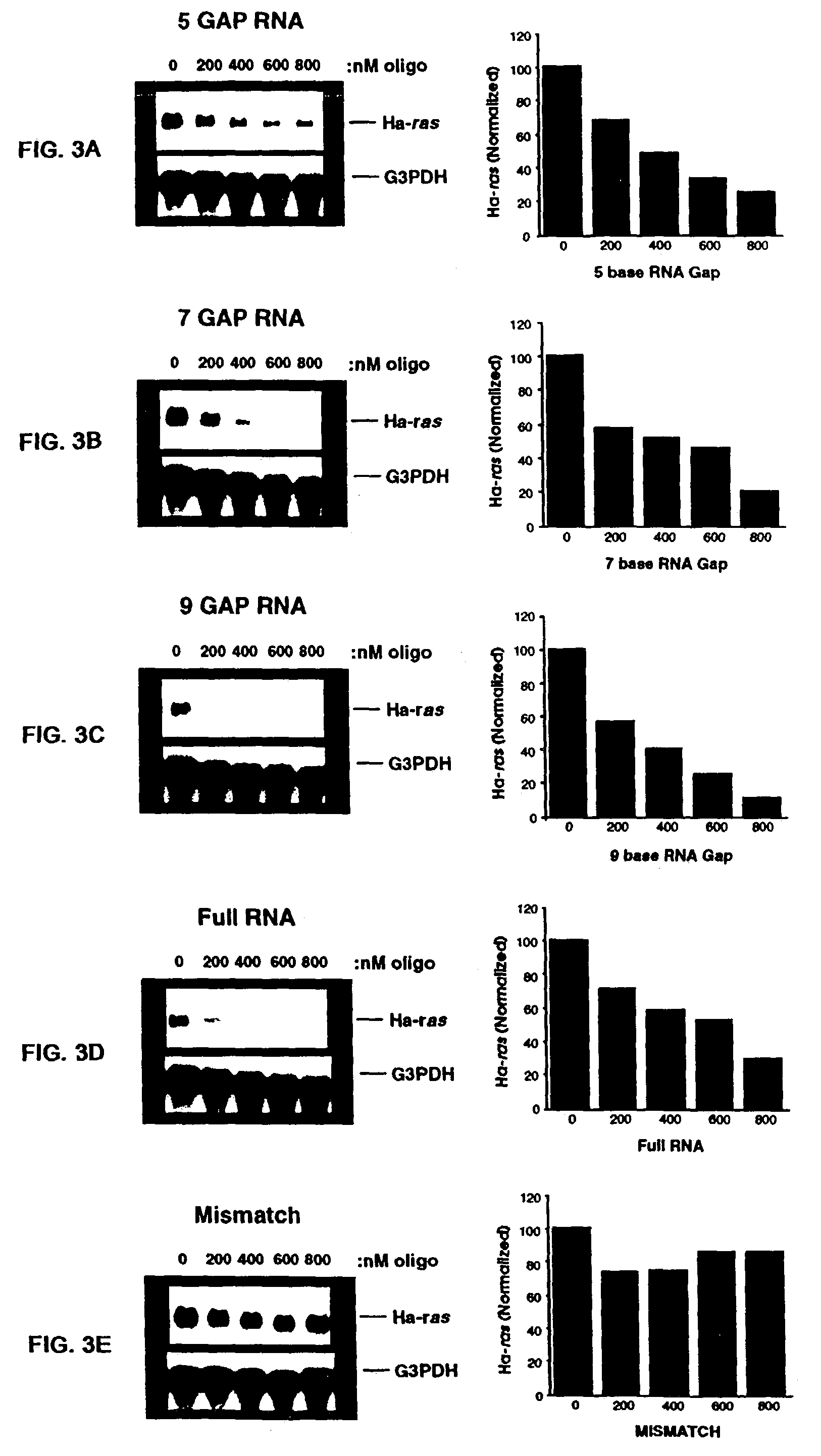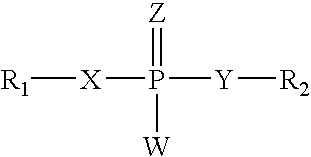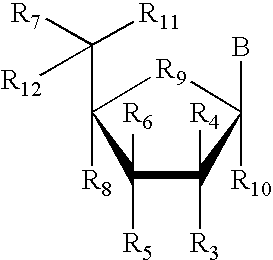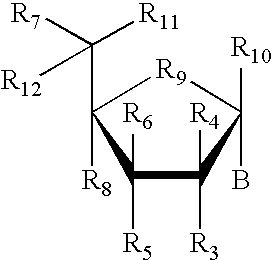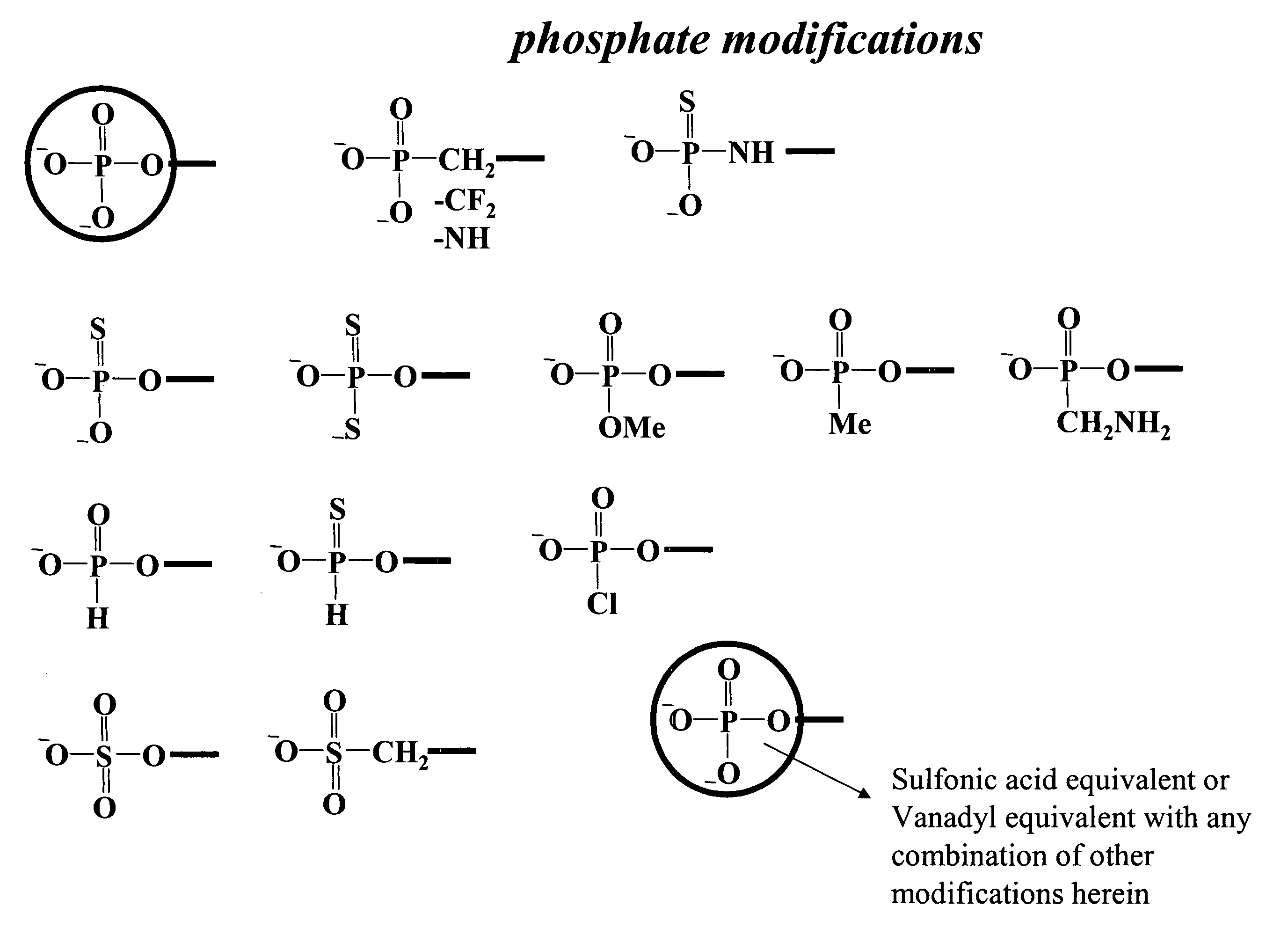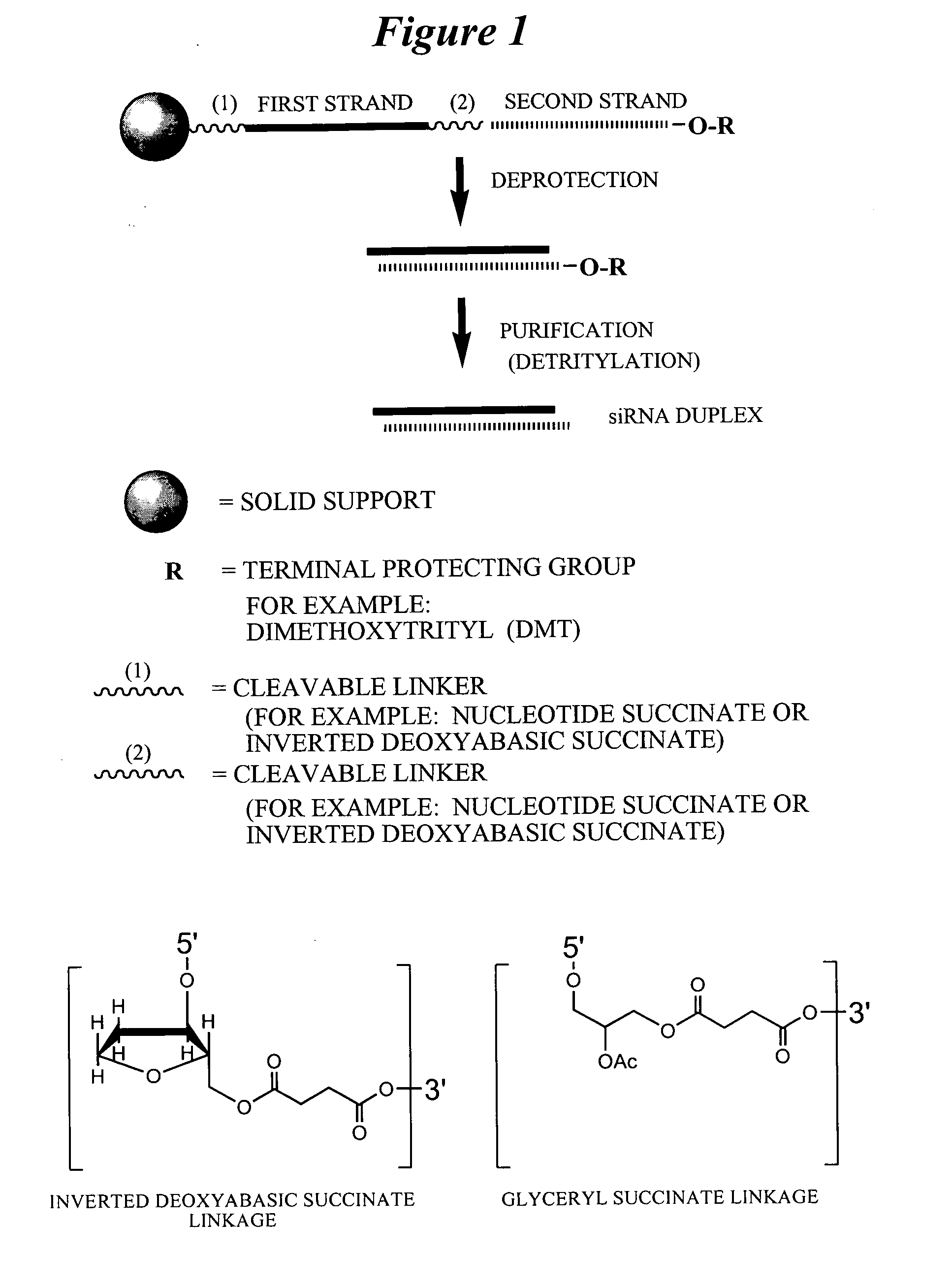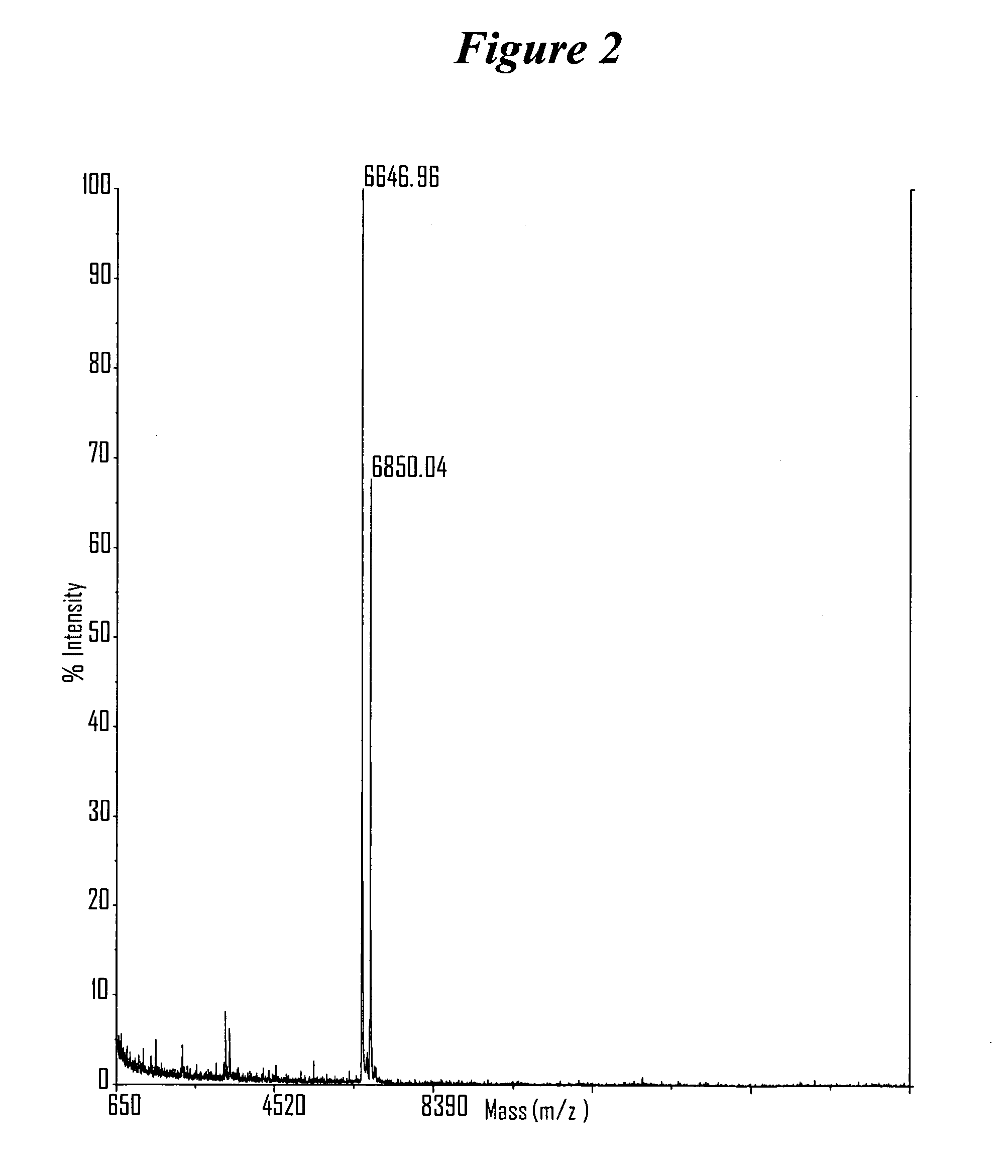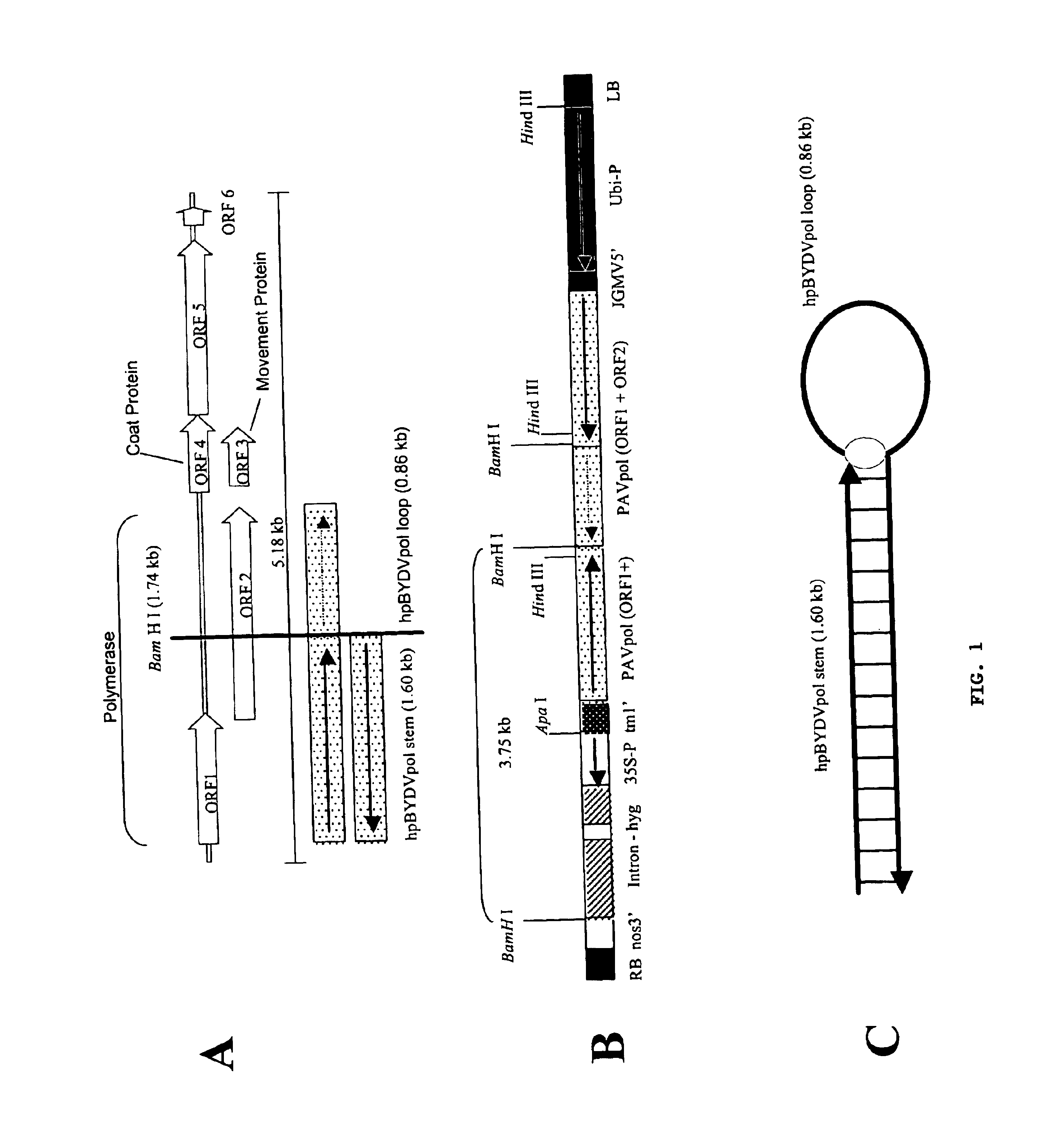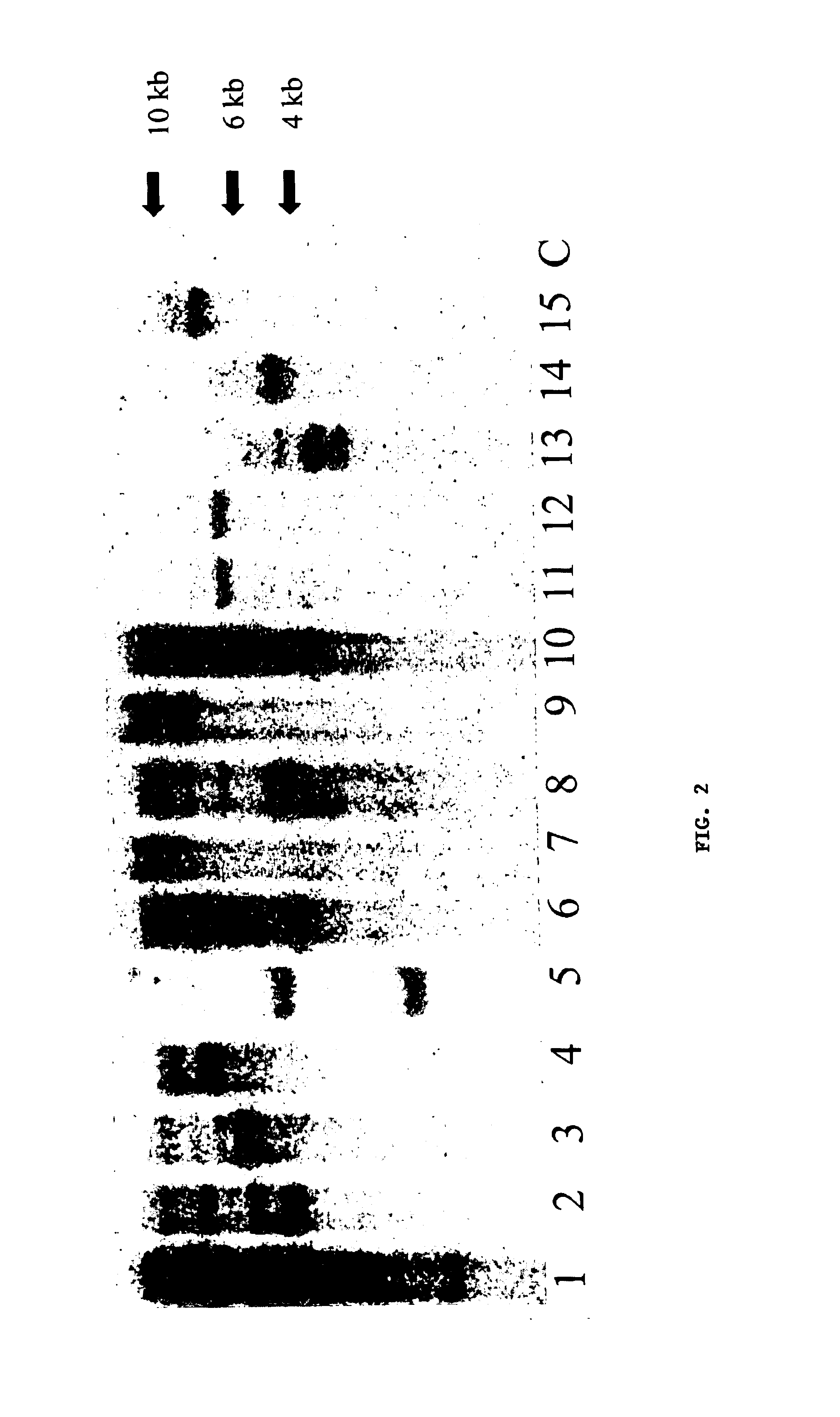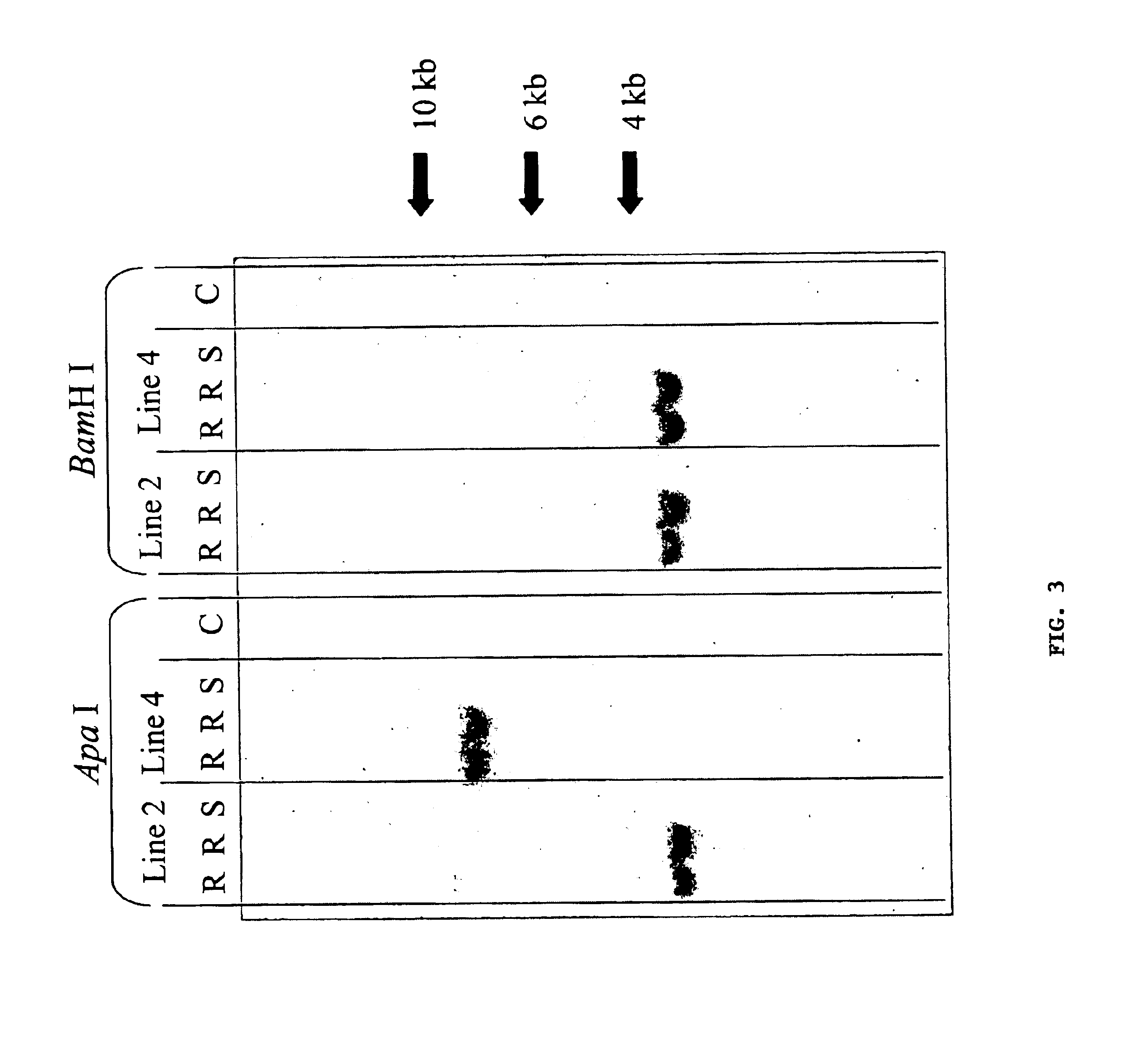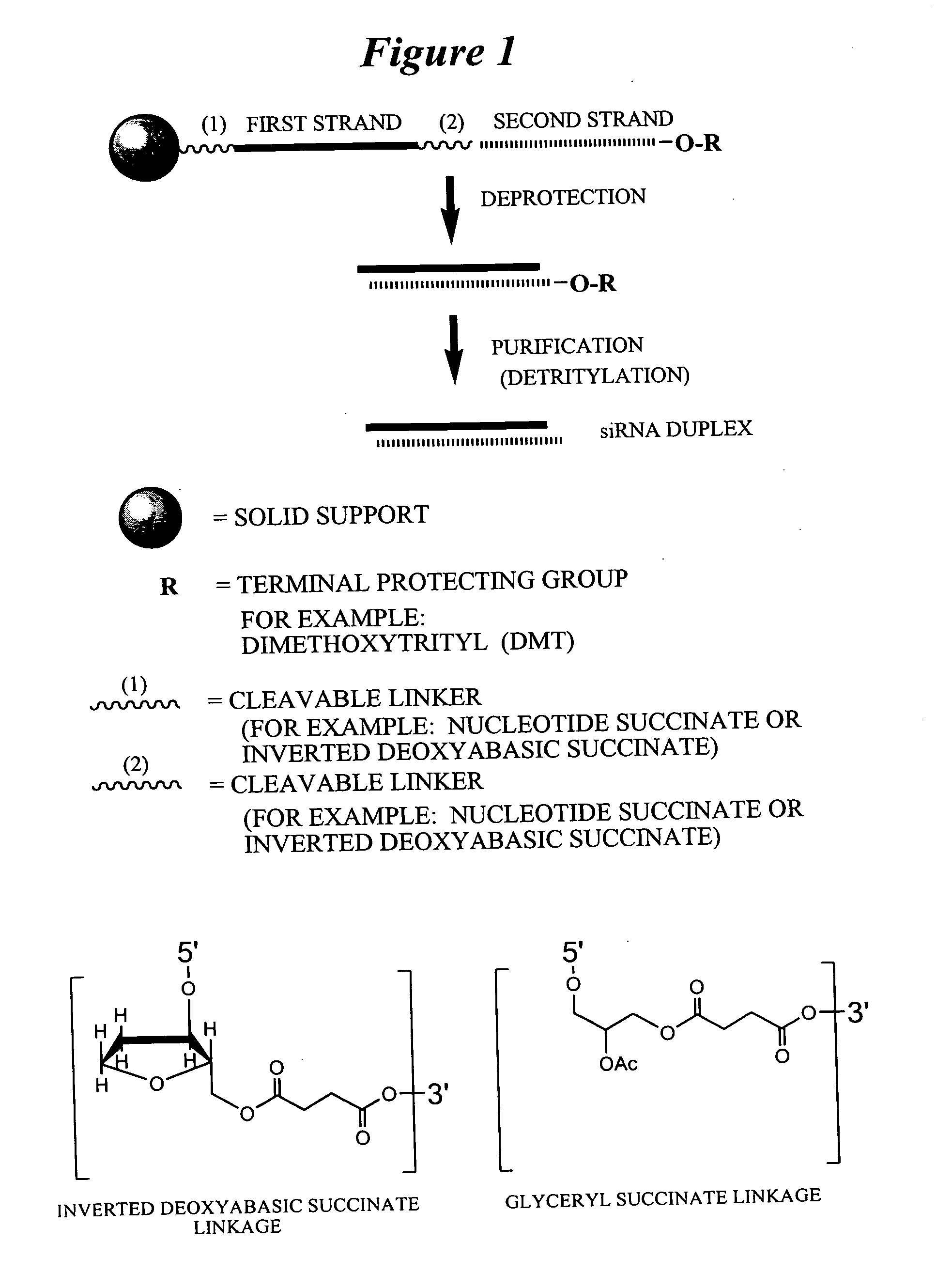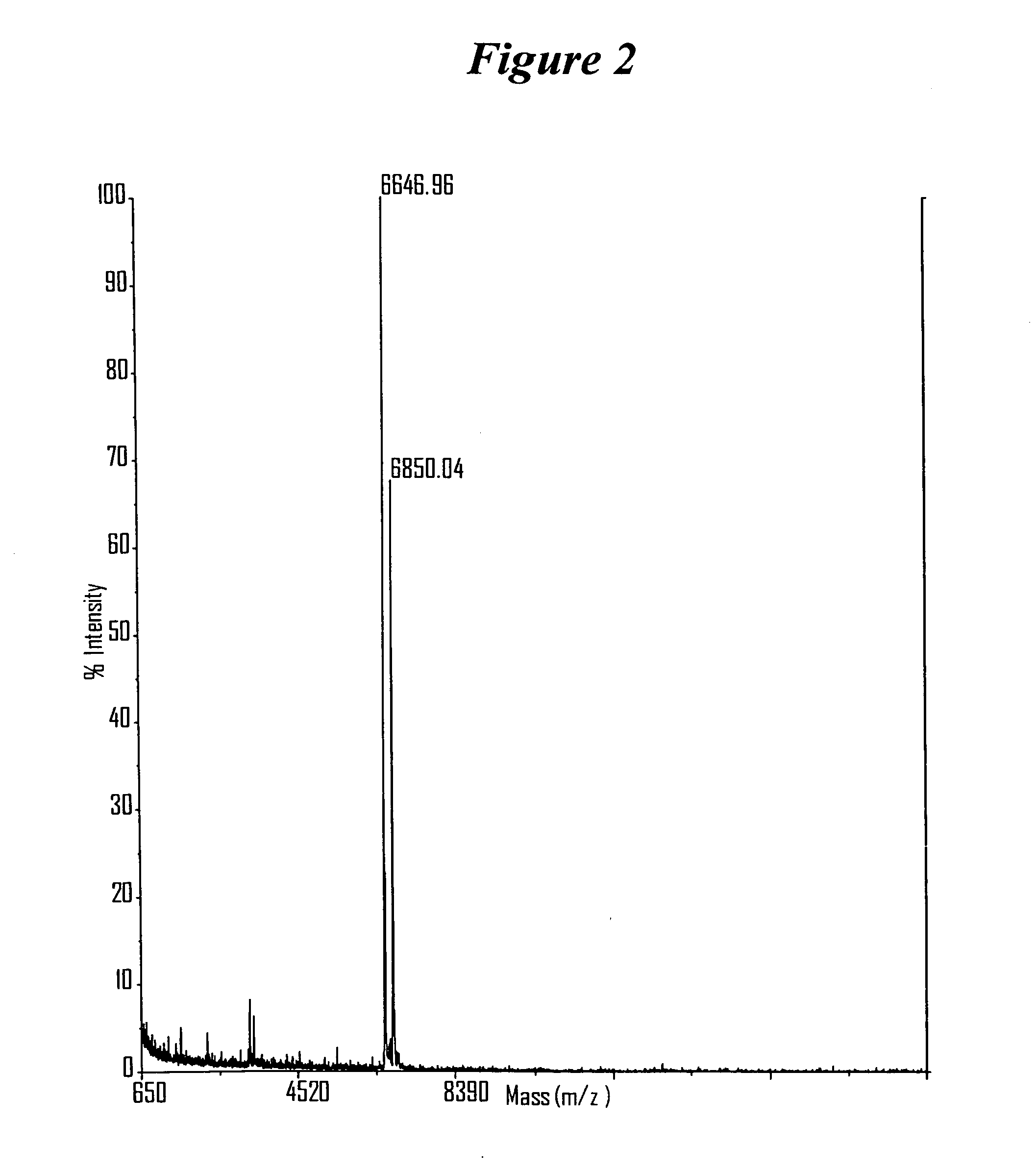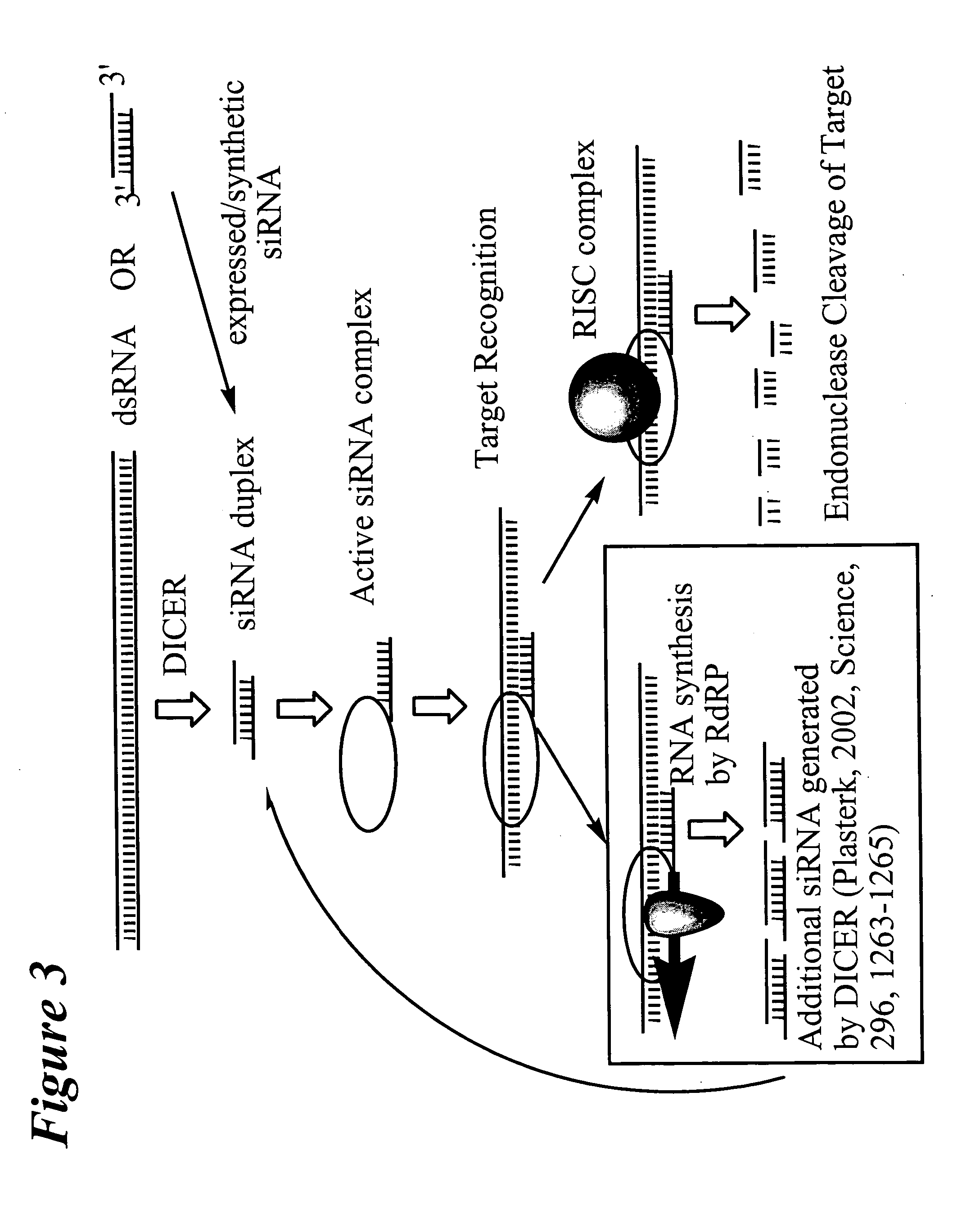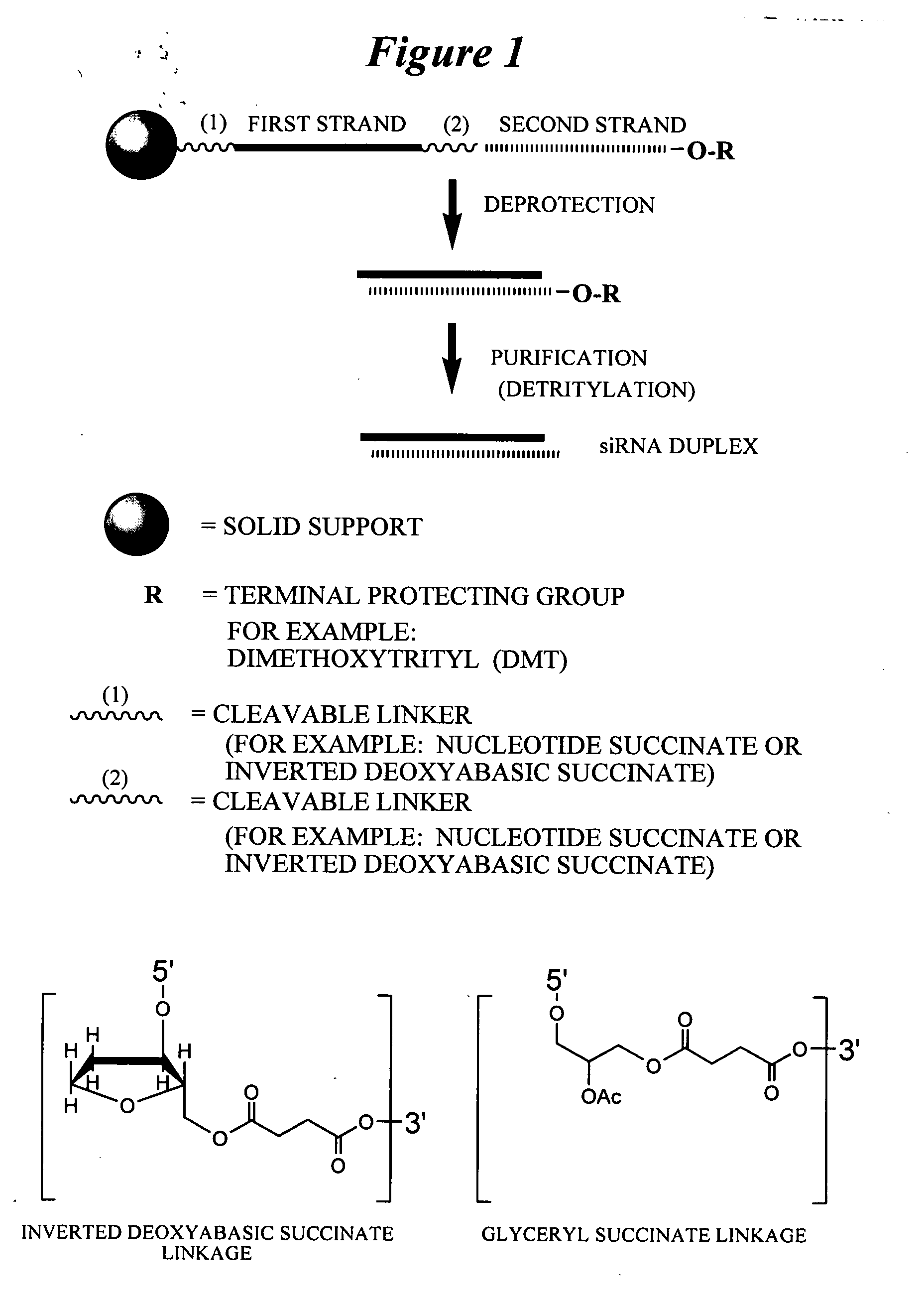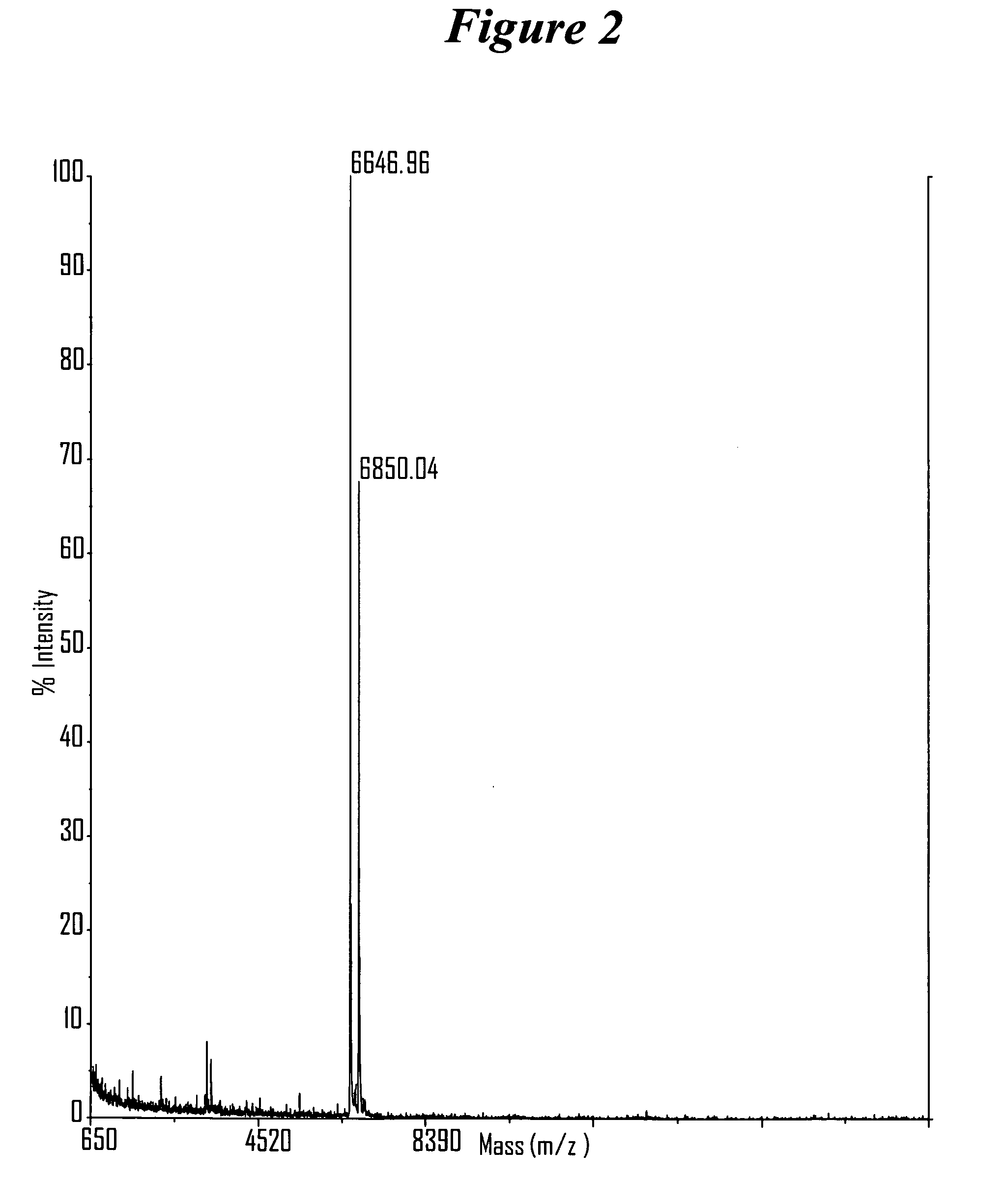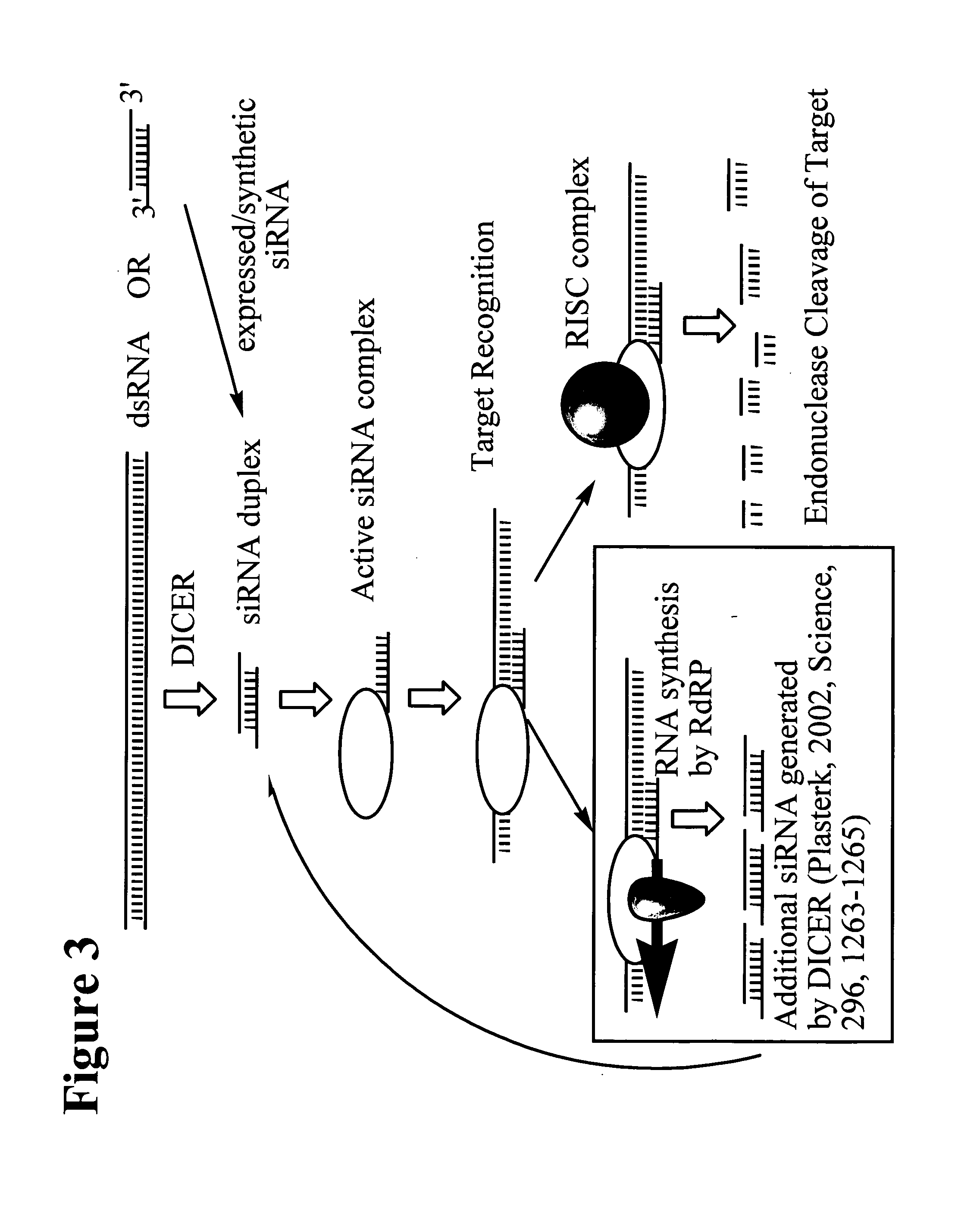Patents
Literature
750 results about "Double stranded rna" patented technology
Efficacy Topic
Property
Owner
Technical Advancement
Application Domain
Technology Topic
Technology Field Word
Patent Country/Region
Patent Type
Patent Status
Application Year
Inventor
RNA interference mediated inhibition of gene expression using chemically modified short interfering nucleic acid (siNA)
InactiveUS20050020525A1Improve various propertyModulate its functionCompounds screening/testingSugar derivativesDouble strandOrganism
The present invention concerns methods and reagents useful in modulating gene expression in a variety of applications, including use in therapeutic, diagnostic, target validation, and genomic discovery applications. Specifically, the invention relates to synthetic chemically modified small nucleic acid molecules, such as short interfering nucleic acid (siNA), short interfering RNA (siRNA), double-stranded RNA (dsRNA), micro-RNA (miRNA), and short hairpin RNA (shRNA) molecules capable of mediating RNA interference (RNAi) against target nucleic acid sequences. The small nucleic acid molecules are useful in the treatment of any disease or condition that responds to modulation of gene expression or activity in a cell, tissue, or organism.
Owner:SIMA THERAPEUTICS ICN
RNA interference mediated inhibition of gene expression using chemically modified short interfering nucleic acid (SiNA)
InactiveUS20050032733A1Improve various propertyModulate its functionCompounds screening/testingSpecial deliveryBiological bodyNucleic acid sequencing
The present invention concerns methods and reagents useful in modulating gene expression in a variety of applications, including use in therapeutic, diagnostic, target validation, and genomic discovery applications. Specifically, the invention relates to synthetic chemically modified small nucleic acid molecules, such as short interfering nucleic acid (siNA), short interfering RNA (siRNA), double-stranded RNA (dsRNA), micro-RNA (miRNA), and short hairpin RNA (shRNA) molecules capable of mediating RNA interference (RNAi) against target nucleic acid sequences. The small nucleic acid molecules are useful in the treatment of any disease or condition that responds to modulation of gene expression or activity in a cell, tissue, or organism.
Owner:SIRNA THERAPEUTICS INC
Methods and compositions for the specific inhibition of gene expression by double-stranded RNA
The invention is directed to compositions and methods for selectively reducing the expression of a gene product from a desired target gene in a cell, as well as for treating diseases caused by the expression of the gene. More particularly, the invention is directed to compositions that contain double stranded RNA (“dsRNA”), and methods for preparing them, that are capable of reducing the expression of target genes in eukaryotic cells. The dsRNA has a first oligonucleotide sequence that is between 25 and about 30 nucleotides in length and a second oligonucleotide sequence that anneals to the first sequence under biological conditions. In addition, a region of one of the sequences of the dsRNA having a sequence length of at least 19 nucleotides is sufficiently complementary to a nucleotide sequence of the RNA produced from the target gene to trigger the destruction of the target RNA by the RNAi machinery.
Owner:CITY OF HOPE +1
RNA interference mediated inhibition of B-cell CLL/Lymphoma-2 (BCL-2) gene expression using short interfering nucleic acid (siNA)
InactiveUS20050176025A1Improves various propertyImprove the immunityCompounds screening/testingSpecial deliveryAutoimmune conditionAutoimmune disease
This invention relates to compounds, compositions, and methods useful for modulating BCL2 gene expression using short interfering nucleic acid (siNA) molecules. This invention also relates to compounds, compositions, and methods useful for modulating the expression and activity of other genes involved in pathways of BCL2 gene expression and / or activity by RNA interference (RNAi) using small nucleic acid molecules. In particular, the instant invention features small nucleic acid molecules, such as short interfering nucleic acid (siNA), short interfering RNA (siRNA), double-stranded RNA (dsRNA), micro-RNA (miRNA), and short hairpin RNA (shRNA) molecules and methods used to modulate the expression of BCL2 genes (e.g., BCL2, BCL-XL, BCL2-L1, MCL-1 CED-9, BAG-1, E1B-194 and / or BCL-A1). The small nucleic acid molecules are useful in the treatment of cancer, malignant blood disease, polycytemia vera, idiopathic myelofibrosis, essential thrombocythemia, myelodysplastic syndromes, autoimmune disease, viral infection, and proliferative diseases and conditions
Owner:SIRNA THERAPEUTICS INC
Methods and compositions for the specific inhibition of gene expression by double-stranded RNA
InactiveUS20070265220A1Improve stabilityConvenience to mergeSenses disorderAntipyreticDouble strandOligonucleotide
The invention is directed to compositions and methods for selectively reducing the expression of a gene product from a desired target gene in a cell, as well as for treating diseases caused by the expression of the gene. More particularly, the invention is directed to compositions that contain double stranded RNA (“dsRNA”), and methods for preparing them, that are capable of reducing the expression of target genes in eukaryotic cells. The dsRNA has a first oligonucleotide sequence that is between 25 and about 30 nucleotides in length and a second oligonucleotide sequence that anneals to the first sequence under biological conditions. In addition, a region of one of the sequences of the dsRNA having a sequence length of at least 19 nucleotides is sufficiently complementary to a nucleotide sequence of the RNA produced from the target gene to trigger the destruction of the target RNA by the RNAi machinery.
Owner:CITY OF HOPE +1
RNA preparations comprising purified modified RNA for reprogramming cells
ActiveUS20110143397A1Promote growthArtificial cell constructsCell culture active agentsSingle strandSomatic cell
The present invention provides compositions and methods for reprogramming somatic cells using purified RNA preparations comprising single-strand mRNA encoding an iPS cell induction factor. The purified RNA preparations are preferably substantially free of RNA contaminant molecules that: i) would activate an immune response in the somatic cells, ii) would decrease expression of the single-stranded mRNA in the somatic cells, and / or iii) active RNA sensors in the somatic cells. In certain embodiments, the purified RNA preparations are substantially free of partial mRNAs, double-stranded RNAs, un-capped RNA molecules, and / or single-stranded run-on mRNAs.
Owner:THE TRUSTEES OF THE UNIV OF PENNSYLVANIA
RNA interference mediated inhibition of MAP kinase gene expression using short interfering nucleic acid (siNA)
InactiveUS20050239731A1Improve bioavailabilityMinimize the possibilityBiocideSugar derivativesMAP Kinase GeneMitogen-activated protein
This invention relates to compounds, compositions, and methods useful for modulating mitogen activated protein kinase (MAP kinase) gene expression using short interfering nucleic acid (siNA) molecules. This invention also relates to compounds, compositions, and methods useful for modulating the expression and activity of other genes involved in pathways of MAP kinase gene expression and / or activity by RNA interference (RNAi) using small nucleic acid molecules. In particular, the instant invention features small nucleic acid molecules, such as short interfering nucleic acid (siNA), short interfering RNA (siRNA), double-stranded RNA (dsRNA), micro-RNA (miRNA), and short hairpin RNA (shRNA) molecules and methods used to modulate the expression of MAP kinase genes, such as Jun amino-terminal kinase (e.g., JNK-1, JNK-2), p38 (MAPK 14), ERK (e.g., ERK-1, ERK-2) and / or c-Jun.
Owner:SIRNA THERAPEUTICS INC
RNA interference mediated inhibition of wingless gene expression using short interfering nucleic acid (siNA)
InactiveUS20050130181A1Improves various propertyImprove the immunityCompounds screening/testingSpecial deliveryWnt genesFhit gene
This invention relates to compounds, compositions, and methods useful for modulating wingless (WNT) gene expression using short interfering nucleic acid (siNA) molecules. This invention also relates to compounds, compositions, and methods useful for modulating the expression and activity of other genes involved in pathways of WNT gene expression and / or activity by RNA interference (RNAi) using small nucleic acid molecules. In particular, the instant invention features small nucleic acid molecules, such as short interfering nucleic acid (siNA), short interfering RNA (siRNA), double-stranded RNA (dsRNA), micro-RNA (miRNA), and short hairpin RNA (shRNA) molecules and methods used to modulate the expression of WNT genes such as WNT3A and WNT7A.
Owner:SIRNA THERAPEUTICS INC
Compositions and methods for control of insect infestations in plants
InactiveUS20060021087A1Limiting and eliminating invertebrateInhibit expressionBiocideSugar derivativesInvertebrateOrganism
The present invention is directed to controlling pest infestation by inhibiting one or more biological functions in an invertebrate pest. The invention discloses methods and compositions for use in controlling pest infestation by feeding one or more different recombinant double stranded RNA molecules to the pest in order to achieve a reduction in pest infestation through suppression of gene expression. The invention is also directed to methods for making transgenic plants that express the double stranded RNA molecules, and to particular combinations of transgenic pesticidal agents for use in protecting plants from pest infestation.
Owner:MONSANTO TECH LLC
Lipid nanoparticle based compositions and methods for the delivery of biologically active molecules
ActiveUS20080020058A1Improves various propertyImprove the immunityAntibacterial agentsPowder deliveryLipid formationCholesterol
The present invention relates to novel cationic lipids, transfection agents, microparticles, nanoparticles, and short interfering nucleic acid (siNA) molecules. The invention also features compositions, and methods of use for the study, diagnosis, and treatment of traits, diseases and conditions that respond to the modulation of gene expression and / or activity in a subject or organism. Specifically, the invention relates to novel cationic lipids, microparticles, nanoparticles and transfection agents that effectively transfect or deliver biologically active molecules, such as antibodies (e.g., monoclonal, chimeric, humanized etc.), cholesterol, hormones, antivirals, peptides, proteins, chemotherapeutics, small molecules, vitamins, co-factors, nucleosides, nucleotides, oligonucleotides, enzymatic nucleic acids, antisense nucleic acids, triplex forming oligonucleotides, 2,5-A chimeras, dsRNA, allozymes, aptamers, decoys and analogs thereof, and small nucleic acid molecules, such as short interfering nucleic acid (siNA), short interfering RNA (siRNA), double-stranded RNA (dsRNA), micro-RNA (miRNA), short hairpin RNA (shRNA), and RNAi inhibitor molecules, to relevant cells and / or tissues, such as in a subject or organism. Such novel cationic lipids, microparticles, nanoparticles and transfection agents are useful, for example, in providing compositions to prevent, inhibit, or treat diseases, conditions, or traits in a cell, subject or organism. The compositions described herein are generally referred to as formulated molecular compositions (FMC) or lipid nanoparticles (LNP).
Owner:SIRNA THERAPEUTICS INC
Lipid nanoparticle based compositions and methods for the delivery of biologically active molecules
The present invention relates to novel cationic lipids, transfection agents, microparticles, nanoparticles, and short interfering nucleic acid (siNA) molecules. The invention also features compositions, and methods of use for the study, diagnosis, and treatment of traits, diseases and conditions that respond to the modulation of gene expression and / or activity in a subject or organism. Specifically, the invention relates to novel cationic lipids, microparticles, nanoparticles and transfection agents that effectively transfect or deliver biologically active molecules, such as antibodies (e.g., monoclonal, chimeric, humanized etc.), cholesterol, hormones, antivirals, peptides, proteins, chemotherapeutics, small molecules, vitamins, co-factors, nucleosides, nucleotides, oligonucleotides, enzymatic nucleic acids, antisense nucleic acids, triplex forming oligonucleotides, 2,5-A chimeras, dsRNA, allozymes, aptamers, decoys and analogs thereof, and small nucleic acid molecules, such as short interfering nucleic acid (siNA), short interfering RNA (siRNA), double-stranded RNA (dsRNA), micro-RNA (miRNA), and short hairpin RNA (shRNA) molecules, to relevant cells and / or tissues, such as in a subject or organism. Such novel cationic lipids, microparticles, nanoparticles and transfection agents are useful, for example, in providing compositions to prevent, inhibit, or treat diseases, conditions, or traits in a cell, subject or organism. The compositions described herein are generally referred to as formulated molecular compositions (FMC) or lipid nanoparticles (LNP).
Owner:SIRNA THERAPEUTICS INC
RNA interference mediated inhibition of TNF and TNF receptor gene expression using short interfering nucleic acid (siNA)
InactiveUS20050227935A1Improves various propertyImprove the immunitySugar derivativesGenetic material ingredientsTumor necrosis factor receptorDouble strand
This invention relates to compounds, compositions, and methods useful for modulating tumor necrosis factor and / or tumor necrosis factor receptor gene expression using short interfering nucleic acid (siNA) molecules. This invention also relates to compounds, compositions, and methods useful for modulating the expression and activity of other genes involved in pathways of tumor necrosis factor and / or tumor necrosis factor receptor gene expression and / or activity by RNA interference (RNAi) using small nucleic acid molecules. In particular, the instant invention features small nucleic acid molecules, such as short interfering nucleic acid (siNA), short interfering RNA (siRNA), double-stranded RNA (dsRNA), micro-RNA (miRNA), and short hairpin RNA (shRNA) molecules and methods used to modulate the expression of tumor necrosis factor and / or tumor necrosis factor receptor genes, (TNF and / or TNF receptor).
Owner:SIRNA THERAPEUTICS INC
Methods for genetic control of insect infestations in plants and compositions thereof
ActiveUS20070124836A1Inhibit expressionReduced expression levelSugar derivativesClimate change adaptationBiotechnologyDouble strand
The present invention relates to control of pest infestation by inhibiting one or more biological functions. The invention provides methods and compositions for such control. By feeding one or more recombinant double stranded RNA molecules provided by the invention to the pest, a reduction in pest infestation is obtained through suppression of gene expression. The invention is also directed to methods for making transgenic plants that express the double stranded RNA molecules, and to particular combinations of transgenic pesticidal agents for use in protecting plants from pest infestation.
Owner:MONSANTO TECH LLC
Oligoribonucleotides and ribonucleases for cleaving RNA
InactiveUS7432250B2High affinityStrong specificityHydrolasesPeptide/protein ingredientsOrganismResearch purpose
Oligomeric compounds including oligoribonucleotides and oligoribonucleosides are provided that have subsequences of 2′-pentoribofuranosyl nucleosides that activate dsRNase. The oligoribonucleotides and oligoribonucleosides can include substituent groups for increasing binding affinity to complementary nucleic acid strand as well as substituent groups for increasing nuclease resistance. The oligomeric compounds are useful for diagnostics and other research purposes, for modulating the expression of a protein in organisms, and for the diagnosis, detection and treatment of other conditions susceptible to oligonucleotide therapeutics. Also included in the invention are mammalian ribonucleases, i.e., enzymes that degrade RNA, and substrates for such ribonucleases. Such a ribonuclease is referred to herein as a dsRNase, wherein “ds” indicates the RNase's specificity for certain double-stranded RNA substrates. The artificial substrates for the dsRNases described herein are useful in preparing affinity matrices for purifying mammalian ribonuclease as well as non-degradative RNA-binding proteins.
Owner:IONIS PHARMA INC
RNA interference mediated inhibition of gene expression using short interfering nucleic acid (siNA)
InactiveUS20050282188A1Improve bioavailabilityMinimize the possibilitySugar derivativesActivity regulationPseudogeneRegulator gene
This invention relates to compounds, compositions, and methods useful for modulating gene expression using short interfering nucleic acid (siNA) molecules. In particular, the instant invention features small nucleic acid molecules, such as short interfering nucleic acid (siNA), short interfering RNA (siRNA), double-stranded RNA (dsRNA), micro-RNA (miRNA), and short hairpin RNA (shRNA) molecules and methods used to modulate the expression of genes, such as expressed pseudogenes associated with the maintenance or development of diseases, disorders, traits, and conditions in a subject or organism. The invention also provides small nucleic acid molecules with reduced or attenuated immunostimulatory properties and methods for designing and synthesizing such small nucleic acid molecules having improved toxicologic properties while retaining RNAi activity.
Owner:SIRNA THERAPEUTICS INC
UsiRNA Complexes
ActiveUS20110313020A1Reduce off-target effectsImprove propertiesOrganic active ingredientsNervous disorderNucleotideSense strand
This disclosure provides double-stranded RNA complexes having one or more hydroxymethyl substituted nucleomonomer(s) in the passenger strand (or sense strand) of an RNA complex. RNA complexes of the disclosure may be useful for therapeutic applications, diagnostic applications or research applications. RNA complexes include short interfering RNA complexes (siRNA) capable of modulating gene expression comprising an antisense strand and a continuous or a discontinuous passenger strand (“sense strand”). Further, one or more hydroxymethyl substituted nucleomonomer(s) of this disclosure may be positioned at the 3′-end, at the 5′-end, at both the 3′-end and 5′end.
Owner:ARCTURUS THERAPEUTICS
Methods for genetic control of insect infestations in plants and compositions thereof
ActiveUS7943819B2Reduced expression levelLow effective doseSugar derivativesClimate change adaptationGMO PlantsDouble stranded rna
Owner:MONSANTO TECH LLC
Method for expression of small antiviral RNA molecules within a cell
ActiveUS20030059944A1Prevents sequenceHigh expressionOrganic active ingredientsPeptide/protein ingredientsGeneticsViral life cycle
In one aspect, the invention provides methods and compositions for the expression of small RNA molecules within a cell using a retroviral vector. The methods can be used to express double stranded RNA complexes. Small interfering RNA (siRNA) can be expressed using the methods of the invention within a cell, that interfere with a viral life cycle by down regulating either the viral genome, a viral genome transcript, or a host cell that. In another aspect the invention provides methods for treating patients having suffering from infection, particularly infection with HIV.
Owner:CALIFORNIA INST OF TECH
RNA interference mediated inhibition of gene expression using chemically modified short interfering nucleic acid (siNA)
InactiveUS20070004664A1Improve various propertyModulating gene expressionBiocideOrganic active ingredientsBiological bodyNucleic acid sequencing
The present invention concerns methods and reagents useful in modulating gene expression in a variety of applications, including use in therapeutic, diagnostic, target validation, and genomic discovery applications. Specifically, the invention relates to synthetic chemically modified small nucleic acid molecules, such as short interfering nucleic acid (siNA), short interfering RNA (siRNA), double-stranded RNA (dsRNA), micro-RNA (miRNA), and short hairpin RNA (shRNA) molecules capable of mediating RNA interference (RNAi) against target nucleic acid sequences. The small nucleic acid molecules are useful in the treatment of any disease or condition that responds to modulation of gene expression or activity in a cell, tissue, or organism.
Owner:SIRNA THERAPEUTICS INC
Oligoribonucleotides and ribonucleases for cleaving RNA
InactiveUS7432249B2High affinityStrong specificityPeptide/protein ingredientsHydrolasesADAMTS ProteinsOrganism
Oligomeric compounds including oligoribonucleotides and oligoribonucleosides are provided that have subsequences of 2′-pentoribofuranosyl nucleosides that activate dsRNase. The oligoribonucleotides and oligoribonucleosides can include substituent groups for increasing binding affinity to complementary nucleic acid strand as well as substituent groups for increasing nuclease resistance. The oligomeric compounds are useful for diagnostics and other research purposes, for modulating the expression of a protein in organisms, and for the diagnosis, detection and treatment of other conditions susceptible to oligonucleotide therapeutics. Also included in the invention are mammalian ribonucleases, i.e., enzymes that degrade RNA, and substrates for such ribonucleases. Such a ribonuclease is referred to herein as a dsRNase, wherein “ds” indicates the RNase's specificity for certain double-stranded RNA substrates. The artificial substrates for the dsRNases described herein are useful in preparing affinity matrices for purifying mammalian ribonuclease as well as non-degradative RNA-binding proteins.
Owner:IONIS PHARMA INC
Identification and use of target genes for control of plant parasitic nematodes
ActiveUS20070250947A1Raise the possibilityLevel confidenceBiocideOrganic active ingredientsNematodePlant cell
The invention relates to identifying and evaluating target coding sequences for control of plant parasitic nematodes by inhibiting one or more biological functions, and their use. The invention provides methods and compositions for identification of such sequences and for the control of a plant-parasitic nematode population. By feeding one or more recombinant double stranded RNA molecules provided by the invention to the nematode, a reduction in disease may be obtained through suppression of nematode gene expression. The invention is also directed to methods for making transgenic plants that express the double stranded RNA molecules, and the plant cells and plants obtained thereby.
Owner:MONSANTO TECH LLC
RNA interference mediated treatment of Parkinson disease using short interfering nucleic acid (siNA)
InactiveUS20050137155A1Improve bioavailabilityMinimize the possibilityCompounds screening/testingSugar derivativesPARK7Double strand
The present invention concerns methods and reagents useful in modulating Parkinson genes, for example, PARK1 (SNCA), PARK2, PARK7, and / or PARK5 gene expression in a variety of applications, including use in therapeutic, diagnostic, target validation, and genomic discovery applications. Specifically, the invention relates to small nucleic acid molecules, such as short interfering nucleic acid (siNA), short interfering RNA (siRNA), double-stranded RNA (dsRNA), micro-RNA (miRNA), and short hairpin RNA (shRNA) molecules capable of mediating RNA interference (RNAi) against SNCA gene expression and / or activity. The small nucleic acid molecules are useful in the diagnosis and treatment of Parkinson Disease (PD), and any other disease or condition that responds to modulation of PARK1 (SNCA), PARK2, PARK7, and / or PARK5 expression or activity.
Owner:SIRNA THERAPEUTICS INC
Oligoribonucleotides and ribonucleases for cleaving RNA
InactiveUS7629321B2High affinityStrong specificityHydrolasesPeptide/protein ingredientsOrganismResearch purpose
Oligomeric compounds including oligoribonucleotides and oligoribonucleosides are provided that have subsequences of 2′-pentoribofuranosyl nucleosides that activate dsRNase. The oligoribonucleotides and oligoribonucleosides can include substituent groups for increasing binding affinity to complementary nucleic acid strand as well as substituent groups for increasing nuclease resistance. The oligomeric compounds are useful for diagnostics and other research purposes, for modulating the expression of a protein in organisms, and for the diagnosis, detection and treatment of other conditions susceptible to oligonucleotide therapeutics. Also included in the invention are mammalian ribonucleases, i.e., enzymes that degrade RNA, and substrates for such ribonucleases. Such a ribonuclease is referred to herein as a dsRNase, wherein “ds” indicates the RNase's specificity for certain double-stranded RNA substrates. The artificial substrates for the dsRNases described herein are useful in preparing affinity matrices for purifying mammalian ribonuclease as well as non-degradative RNA-binding proteins.
Owner:IONIS PHARMA INC
RNA interference mediated inhibition of alpha-1 antitrypsin (AAT) gene expression using short interfering nucleic acid (siNA)
InactiveUS20050137153A1Improves various propertyImprove the immunityCompounds screening/testingSugar derivativesDouble strandCellular process
The present invention concerns compounds, compositions, and methods for the study, diagnosis, and treatment of diseases and conditions associated with alpha-1 antitrypsin (AAT) allelic variants that respond to the modulation of gene expression and / or activity. The present invention also concerns compounds, compositions, and methods relating to diseases and conditions associated with alpha-1 antitrypsin (AAT) allelic variants that respond to the modulation of expression and / or activity of genes involved in alpha-1 antitrypsin (AAT) gene expression pathways or other cellular processes that mediate the maintenance or development of alpha-1 antitrypsin (AAT) diseases and conditions such as liver disease, lung disease, and any other diseases or conditions that are related to or will respond to the levels of an alpha-1 antitrypsin (AAT) variant protein in a cell or tissue, alone or in combination with other therapies. Specifically, the invention relates to small nucleic acid molecules, such as short interfering nucleic acid (siNA), short interfering RNA (siRNA), double-stranded RNA (dsRNA), micro-RNA (mRNA), and short hairpin RNA (shRNA) molecules capable of mediating RNA interference (RNAi) against the expression disease related genes or alleles having alpha-1 antitrypsin (AAT) sequences.
Owner:SIRNA THERAPEUTICS INC
Methods for genetic control of plant pest infestation and compositions thereof
ActiveUS20070271630A1Limiting and eliminating infestationInhibit expressionBiocideGenetic material ingredientsBiotechnologyPlant nematode
The present invention is directed to controlling plant pest infestation, and particularly plant nematode infestation, by inhibiting one or more biological functions in the plant pest. The invention discloses methods and compositions for use in controlling plant pest infestation by providing one or more different recombinant double stranded RNA molecules in the diet of the pest in order to achieve a reduction in pest infestation through suppression of pest gene expression. The invention is also directed to methods for making transgenic plants that express the double stranded RNA molecules, to methods for detecting cells comprising the disclosed sequences, and to methods for detecting the disclosed sequences in biological samples.
Owner:MONSANTO TECH LLC
RNA interference mediated inhibition of interleukin and interleukin receptor gene expression using short interfering nucleic acid (SINA)
InactiveUS20050143333A1Improves various propertyImprove the immunityCompounds screening/testingSpecial deliveryWhite blood cellFhit gene
This invention relates to compounds, compositions, and methods useful for modulating interleukin and / or interleukin receptor gene expression using short interfering nucleic acid (siNA) molecules. This invention also relates to compounds, compositions, and methods useful for modulating the expression and activity of other genes involved in pathways of interleukin and / or interleukin receptor gene expression and / or activity by RNA interference (RNAi) using small nucleic acid molecules. In particular, the instant invention features small nucleic acid molecules, such as short interfering nucleic acid (siNA), short interfering RNA (siRNA), double-stranded RNA (dsRNA), micro-RNA (mRNA), and short hairpin RNA (shRNA) molecules and methods used to modulate the expression of interleukin and / or interleukin receptor genes such as IL-1, IL-2, IL-3, IL-4, IL-5, IL-6, IL-7, IL-8, IL-9, IL-10, IL-11, IL-12, IL-13, IL-14, IL-15, IL-16, IL-17, IL-18, IL-19, IL-20, IL-21, IL-22, IL-23, IL-24, IL-25, IL-26, and IL-27 genes and IL-IR, IL-2R, IL-3R, IL-4R, IL-5R, IL-6R, IL-7R, IL-8R, IL-9R, IL-10R, IL-11R, IL-12R, IL-13R, IL-14R, IL-15R, IL-16R, IL-17R, IL-18R, IL-19R, IL-20R, IL-21R, IL-22R, IL-23R, IL-24R, IL-25R, IL-26R, and IL-27R genes.
Owner:SIRNA THERAPEUTICS INC
Methods and means for producing barley yellow dwarf virus resistant cereal plants
The invention relates to methods for producing transgenic cereal plants resistant to Barley Yellow Dwarf Virus, particularly in the presence of co-infecting Cereal Yellow Dwarf Virus, by stably integrating into the cells of the transgenic plant a chimeric gene comprising a DNA region operably linked to plant expressible promoter in such a way that the RNA molecule may be transcribed from the DNA region, the RNA molecule comprising both sense and antisense RNA capable of pairing and forming a double stranded RNA molecule or hairpin RNA.
Owner:COMMONWEALTH SCI & IND RES ORG
RNA interference mediated inhibition of vascular endothelial growth factor and vascular endothelial growth factor receptor gene expression using short interfering nucleic acid (siNA)
InactiveUS20050171039A1Improves various propertyImprove the immunityBiocideSugar derivativesDiseaseFactor ii
The present invention concerns methods and reagents useful in modulating vascular endothelial growth factor (VEGF, VEGF-A, VEGF-B, VEGF-C, VEGF-D) and / or vascular endothelial growth factor receptor (e.g., VEGFR1, VEGFR2 and / or VEGFr3) gene expression in a variety of applications, including use in therapeutic, diagnostic, target validation, and genomic discovery applications. Specifically, the invention relates to small nucleic acid molecules, such as short interfering nucleic acid (siNA), short interfering RNA (siRNA), double-stranded RNA (dsRNA), micro-RNA (miRNA), and short hairpin RNA (shRNA) molecules capable of mediating RNA interference (RNAi) against VEGF and / or VEGFr gene expression and / or activity. The small nucleic acid molecules are useful in the diagnosis and treatment of cancer, proliferative diseases, and any other disease or condition that responds to modulation of VEGF and / or VEGFr expression or activity.
Owner:SIRNA THERAPEUTICS INC
RNA interference mediated inhibition of proprotein convertase subtilisin Kexin 9 (PCSK9) gene expression using short interfering nucleic acid (siNA)
InactiveUS20070173473A1Improve stabilityModulating RNAi activitySugar derivativesMicrobiological testing/measurementLipid formationProprotein Convertase Subtilisin/Kexin 9
The present invention relates to compounds, compositions, and methods for the study, diagnosis, and treatment of traits, diseases and conditions that respond to the modulation of Proprotein Convertase Subtilisin Kexin 9 (PCSK9) gene expression and / or activity. The present invention is also directed to compounds, compositions, and methods relating to traits, diseases and conditions that respond to the modulation of expression and / or activity of genes involved in Proprotein Convertase Subtilisin Kexin 9 (PCSK9) gene expression pathways or other cellular processes that mediate the maintenance or development of such traits, diseases and conditions. Specifically, the invention relates to double stranded nucleic acid molecules including small nucleic acid molecules, such as short interfering nucleic acid (siNA), short interfering RNA (siRNA), double-stranded RNA (dsRNA), micro-RNA (miRNA), and short hairpin RNA (shRNA) molecules capable of mediating RNA interference (RNAi) against Proprotein Convertase Subtilisin Kexin 9 (PCSK9) gene expression, including cocktails of such small nucleic acid molecules and lipid nanoparticle (LNP) formulations of such small nucleic acid molecules. The present invention also relates to small nucleic acid molecules, such as siNA, siRNA, and others that can inhibit the function of endogenous RNA molecules, such as endogenous micro-RNA (miRNA) (e.g, miRNA inhibitors) or endogenous short interfering RNA (siRNA), (e.g., siRNA inhibitors) or that can inhibit the function of RISC (e.g., RISC inhibitors), to modulate PCSK9 gene expression by interfering with the regulatory function of such endogenous RNAs or proteins associated with such endogenous RNAs (e.g., RISC), including cocktails of such small nucleic acid molecules and lipid nanoparticle (LNP) formulations of such small nucleic acid molecules. Such small nucleic acid molecules and are useful, for example, in providing compositions to prevent, inhibit, or reduce metabolic diseases traits and conditions, including but not limited to hyperlipidemia, hypercholesterolemia, cardiovascular disease, atherosclerosis, hypertension, diabetis (e.g., type I and / or type II diabetis), insulin resistance, obesity and / or other disease states, conditions, or traits associated with PCSK9 gene expression or activity in a subject or organism.
Owner:SIRNA THERAPEUTICS INC
CATIONIC PEPTIDES FOR siRNA INTRACELLULAR DELIVERY
What is described is a composition for delivery of a RNA molecule to a cell, comprising: a double stranded RNA (dsRNA) molecule of about 15 to about 40 base pairs; and a polynucleotide delivery-enhancing peptide, comprising a region of alternating lysine and histidine residues, or of alternating D and L forms of arginine.
Owner:NASTECH PHARMA
Features
- R&D
- Intellectual Property
- Life Sciences
- Materials
- Tech Scout
Why Patsnap Eureka
- Unparalleled Data Quality
- Higher Quality Content
- 60% Fewer Hallucinations
Social media
Patsnap Eureka Blog
Learn More Browse by: Latest US Patents, China's latest patents, Technical Efficacy Thesaurus, Application Domain, Technology Topic, Popular Technical Reports.
© 2025 PatSnap. All rights reserved.Legal|Privacy policy|Modern Slavery Act Transparency Statement|Sitemap|About US| Contact US: help@patsnap.com
